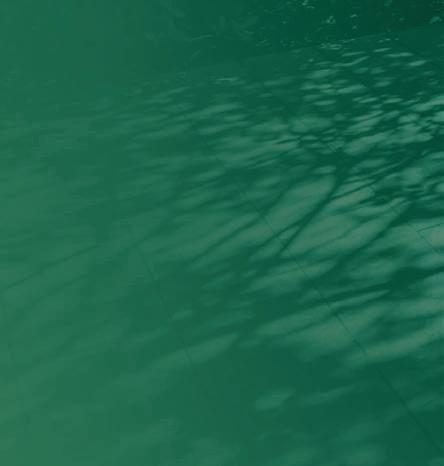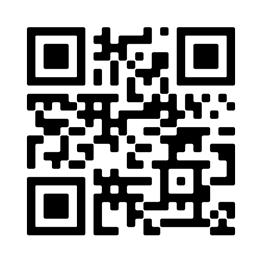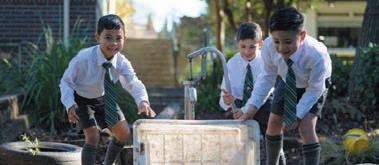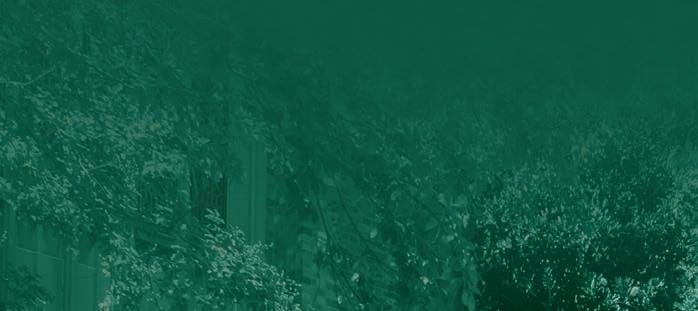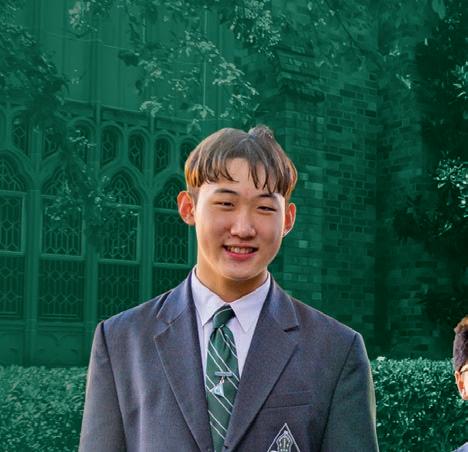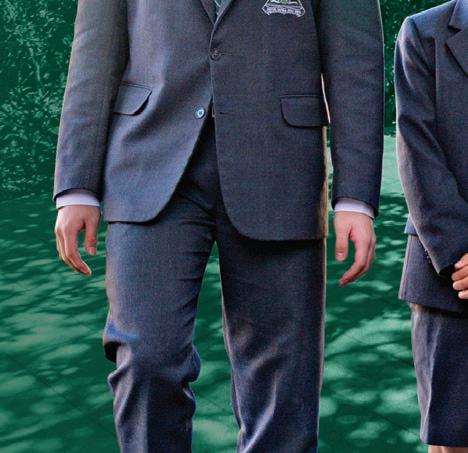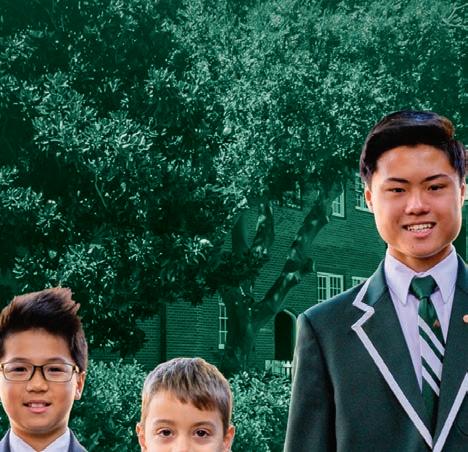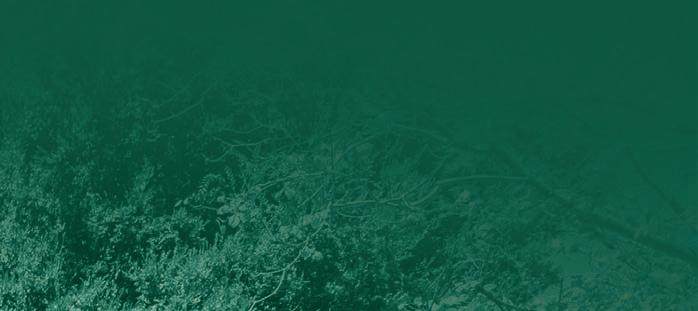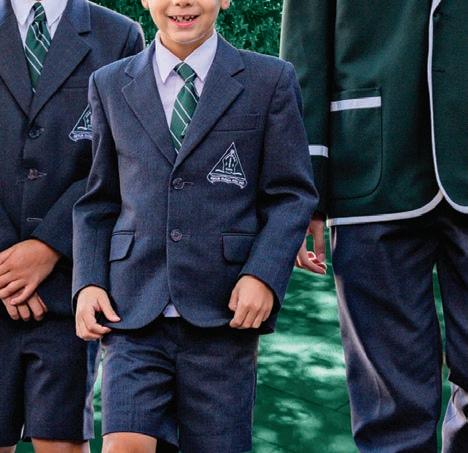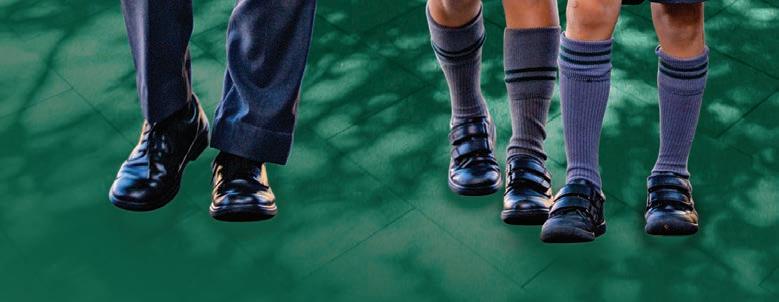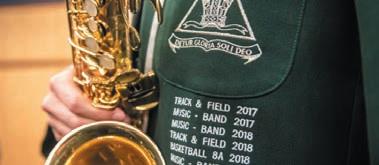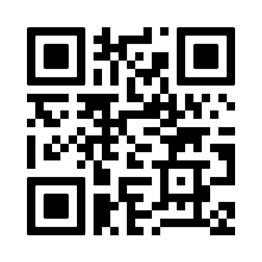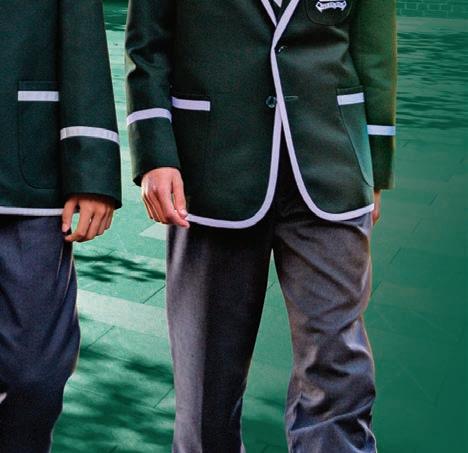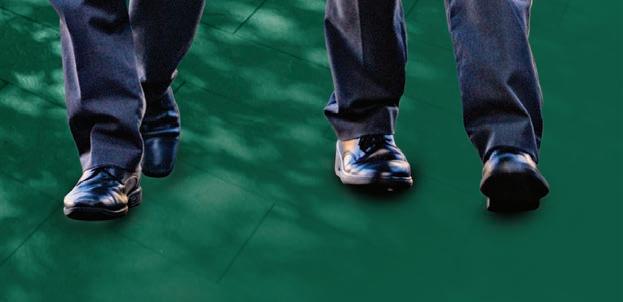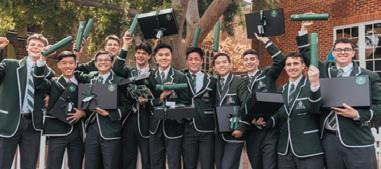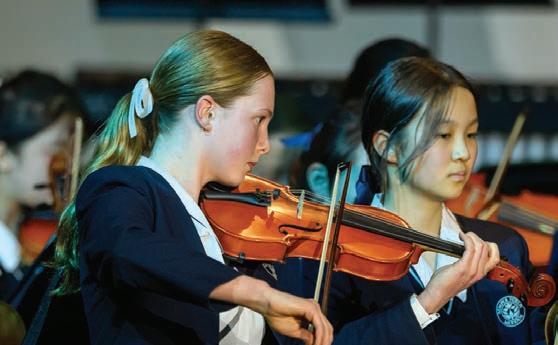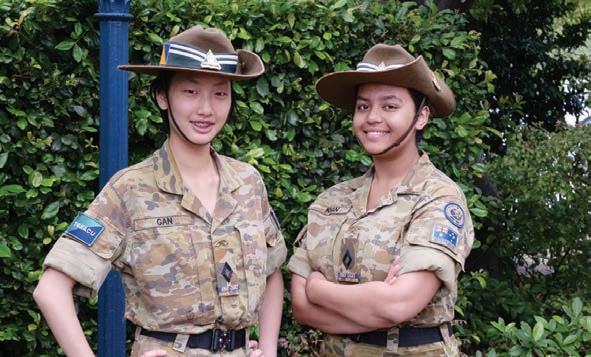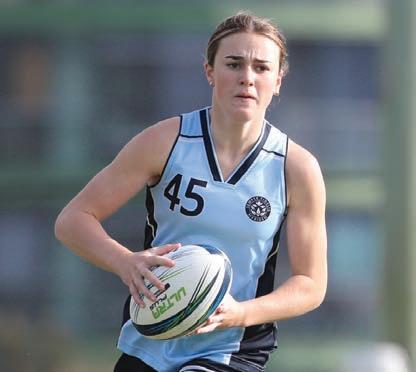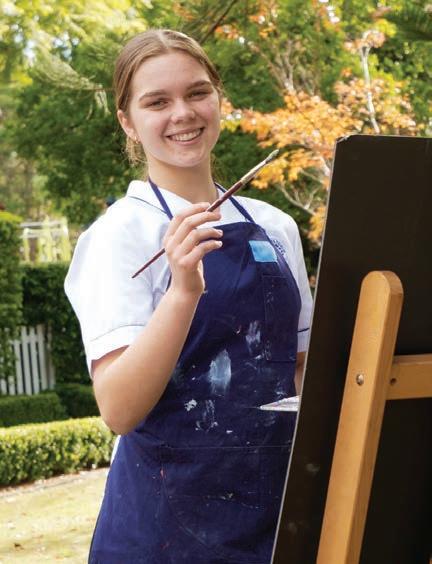
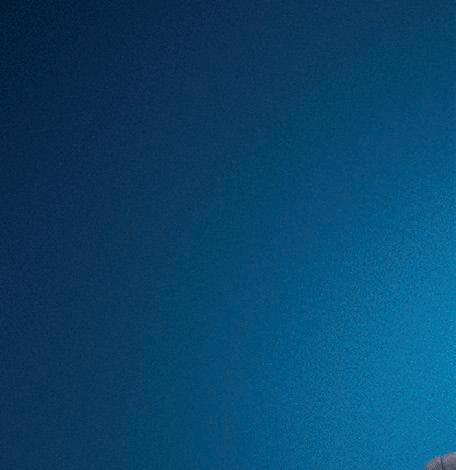
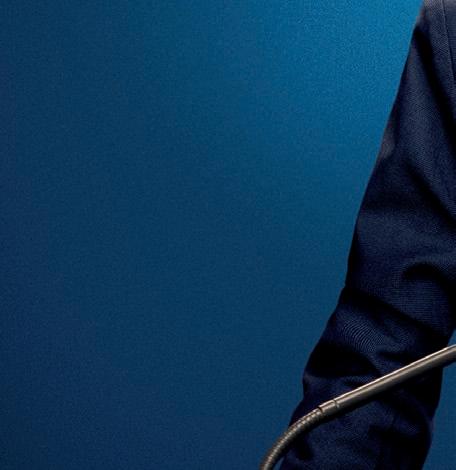
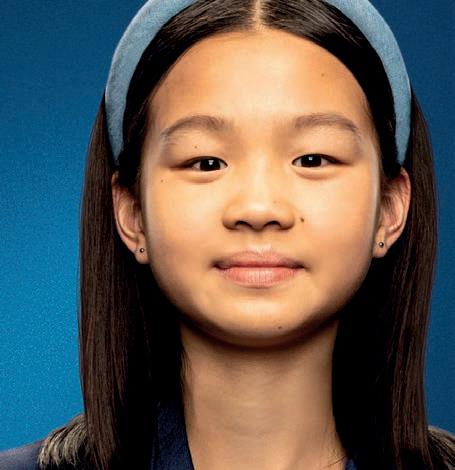
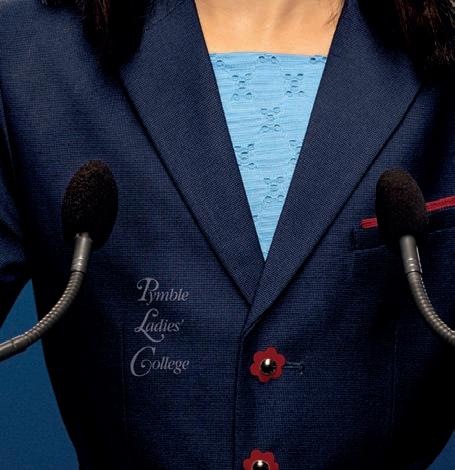
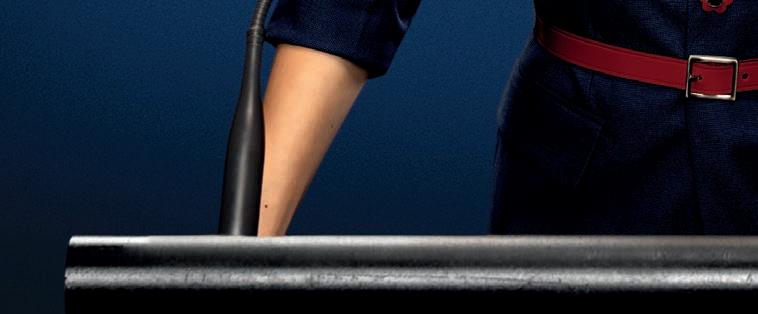
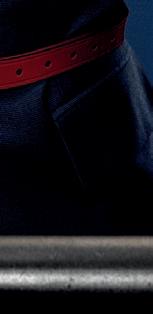




































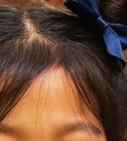

New Chinese Classes 2026
At IGS, Unity Through Diversity is our vision for an equitable, inclusive and regenerative world.
Through bilingual learning and a global outlook, we seek to provide a blueprint for abetter future.

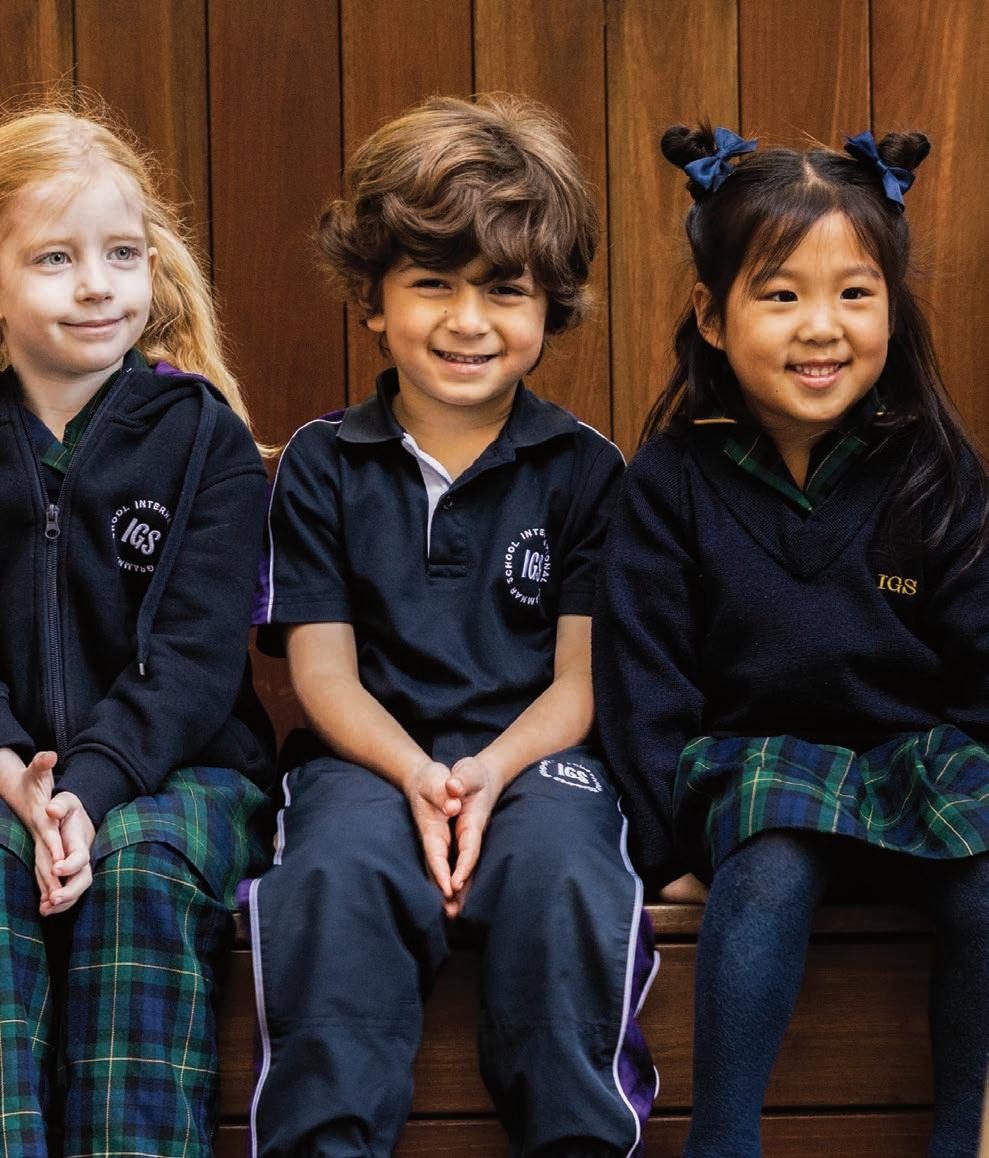
Early Learning to Year 12
Immersive Language Programs
Ultimo Campus, near Sydney CBD
Unique Music Programs
Diverse STEAM Opportunities
Kangaroo Valley Rural Campus
Careers and University Guidance Out of Hours Care
Equipping students to be world ready. Enrol Today
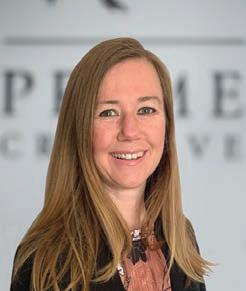
Producing a resource that enables parents to make an informed educational decision for their children remains the central focus of WhichSchool? magazine.
When choosing a school for your child, there are numerous factors that need to be considered. At WhichSchool?, we understand there is not a one-size-fits-all approach, and we have laid out a range of options which aim to assist parents in making this imperative decision in our feature, ‘Where will your child thrive?’.
In this issue, we also hear from a range of single sex and co-ed schools, as well as the Association of Independent Schools NSW, providing further advice and insight for parents.
WhichSchool? is designed to be a resource that can be read, absorbed and used over an extended period to weigh up all the options to help ensure the best outcome for your child.
From school management and facilities right through to values and philosophy, our directory provides insights from some of the state’s leading educators.
To help make the right decision, we also host a database on our website which allows parents to compare a school’s attributes that are most important to them. Visit the website: www.compare.whichschoolmag.com.au
We are proud to be part of your family’s educational journey.
Rhiannon Bowman
Editor, WhichSchool?
rhiannon.bowman@primecreative.com.au
Chief Executive Officer: Christine Clancy christine.clancy@primecreative.com.au
Publisher: Sarah Baker sarah.baker@primecreative.com.au
Managing Editor: Myles Hume myles.hume@primecreative.com.au
Editor: Rhiannon Bowman rhiannon.bowman@primecreative.com.au
Art Director: Michelle Weston
Group Sales Courtney Walker Manager: courtney.walker@primecreative.com.au
Client Success Manager: Sabrina Zor
WhichSchool? magazine is a division of Prime Creative Media Pty. Ltd. 379 Docklands Drive, Docklands, VIC, 3008 Ph: (+61 3) 9690 8766
Subscriptions
WhichSchool? magazine is available by subscription from the publisher. The rights of refusal are reserved by the publisher. Ph: (+61 3) 9690 8766 E: subscriptions@primecreative.com.au
Articles
All articles submitted for publication become the property of the publisher. We reserve the right to adjust any article to conform with the magazine format.
Cover
Pymble Ladies’ College
Copyright
WhichSchool? magazine is owned by Prime Creative Media Pty. Ltd. and published by John Murphy. All material in WhichSchool? magazine is copyright and no part may be reproduced or copied in any form or by any means (graphic, electronic, or mechanical including information retrieval systems) without the written permission of the publisher. The Editor welcomes contributions but reserves the right to accept or reject any material. While every effort has been made to ensure the accuracy of information, Prime Creative Media will not accept responsibility for errors or omissions or for any consequences arising from information published. The opinions of the magazine are not necessarily the opinions of, or endorsed by the publisher unless otherwise stated. All photographs of schools (including students) depicted in feature articles and advertisements throughout this magazine have been supplied to the publisher (and approved) by the contributing school. All material supplied by schools is done so with the understanding that such images will be published in WhichSchool? magazine and may also appear on the our website: www.whichschoolmag.com.au.
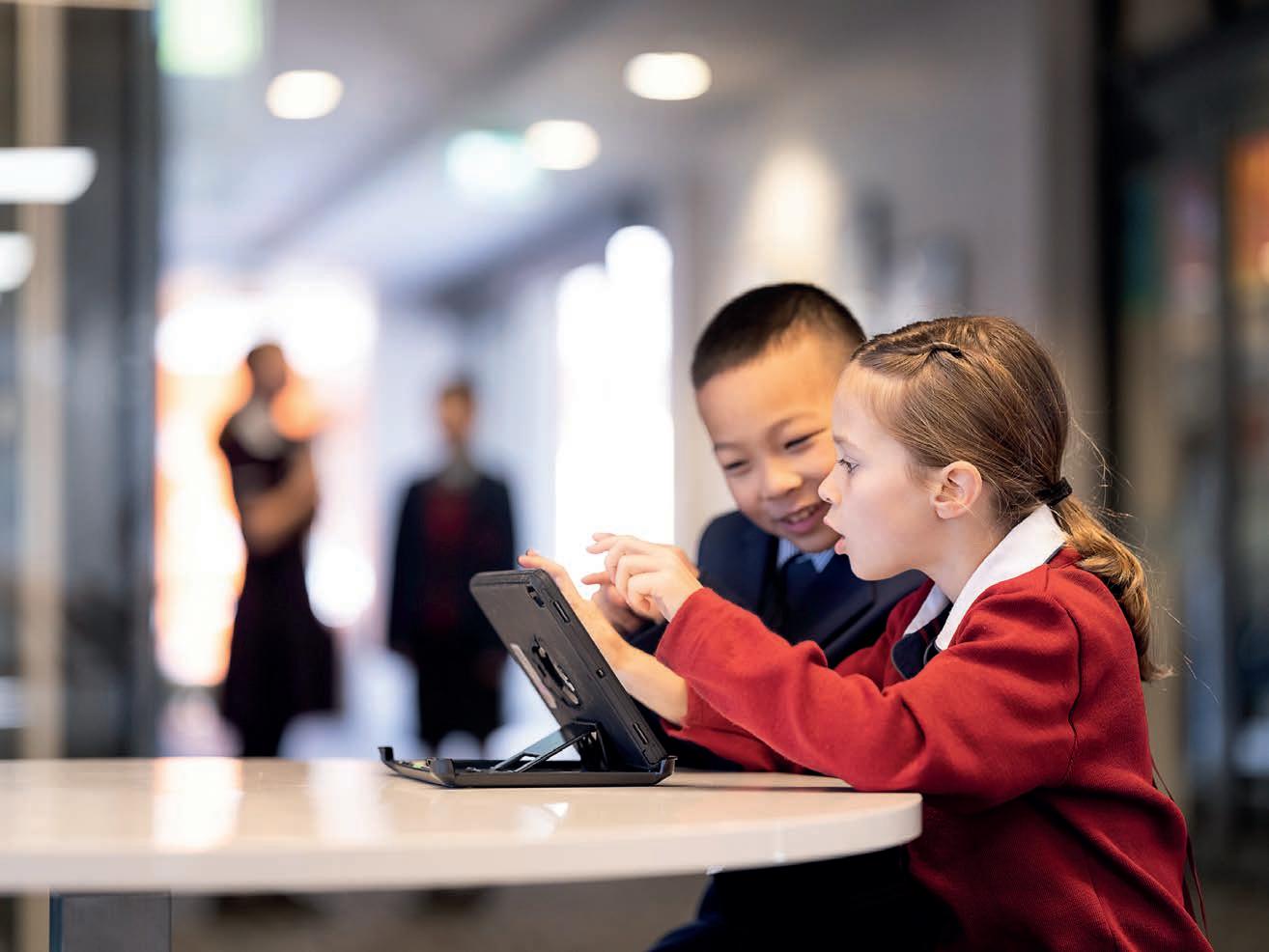
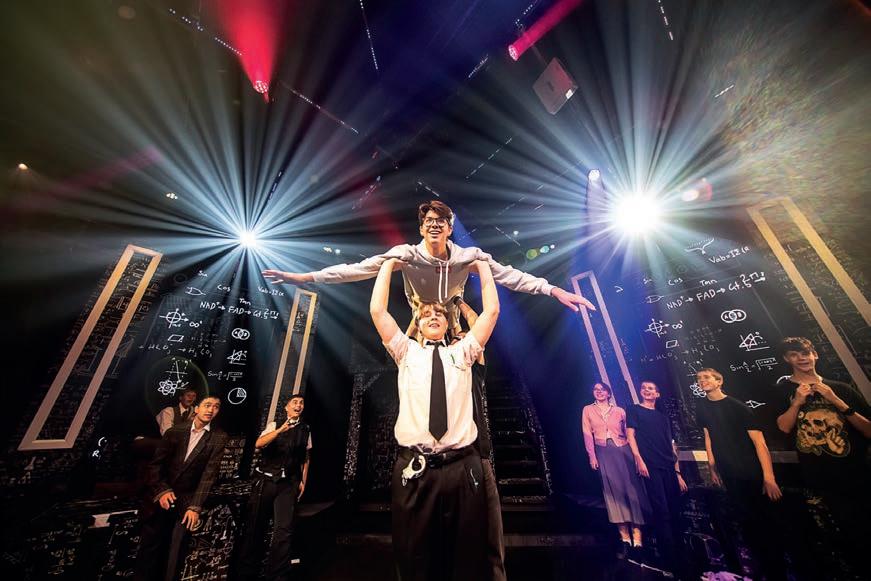

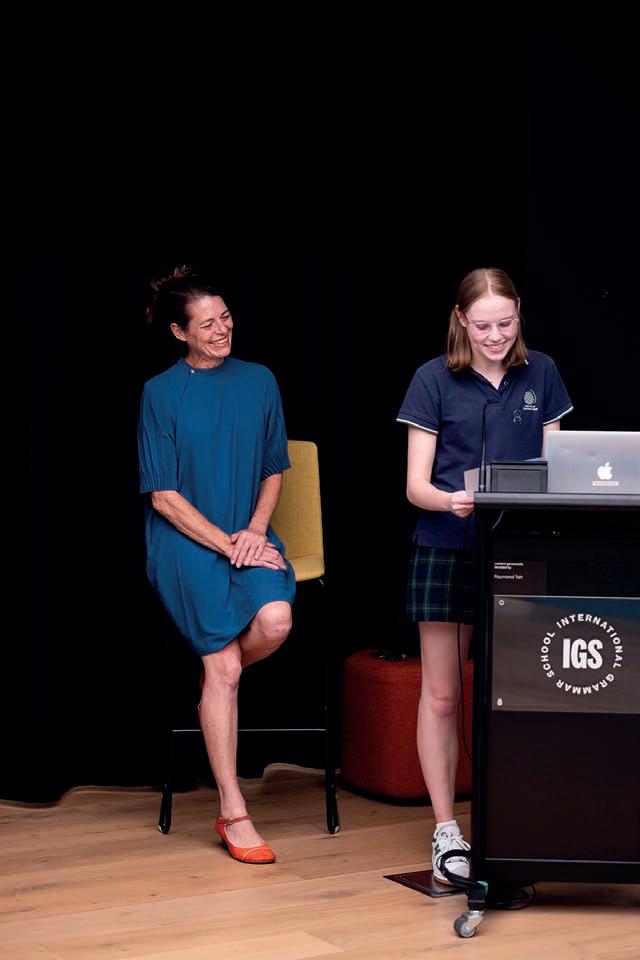
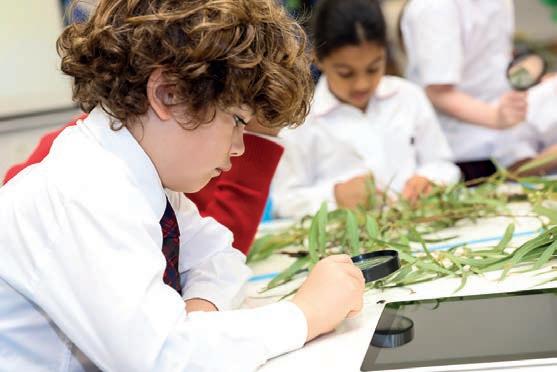
Australia’s eSafety Commissioner has appointed an international team of academics, led by Stanford University’s Social Media Lab, to independently assess the impact of the nation’s new Social Media Minimum Age (SMMA) obligation – a measure designed to strengthen online safety for young people.
The eleven-member Academic Advisory Group will evaluate how the minimum age requirement is being implemented by social media companies and examine its short and medium-term e ects on children, young people and their parents. The group includes experts in adolescent mental health, child development, digital parenting, and online safety, with members from both Australia and abroad.
eSafety Commissioner Julie Inman Grant said the appointment marked a key step towards ensuring the new laws are e ective and evidence-based.
“This collaborative model underscores our commitment to a robust, transparent, and high-quality evaluation,” Ms Inman Grant said. “It’s about understanding not only how the obligation works, but also identifying any unintended consequences and how to address them.”
The Social Media Minimum Age obligation, which takes e ect on 10 December 2025, requires platforms to take reasonable steps to verify the age of users and restrict access for those under the minimum age. The initiative is part of a broader e ort to protect children from online harms, reduce exposure to inappropriate content, and promote healthier digital habits.
Since the legislation was first proposed in 2024, eSafety has conducted extensive public consultation and issued detailed regulatory guidance to help social media companies prepare for compliance. The agency has also rea irmed its commitment to protecting children’s digital rights while balancing privacy and access concerns.
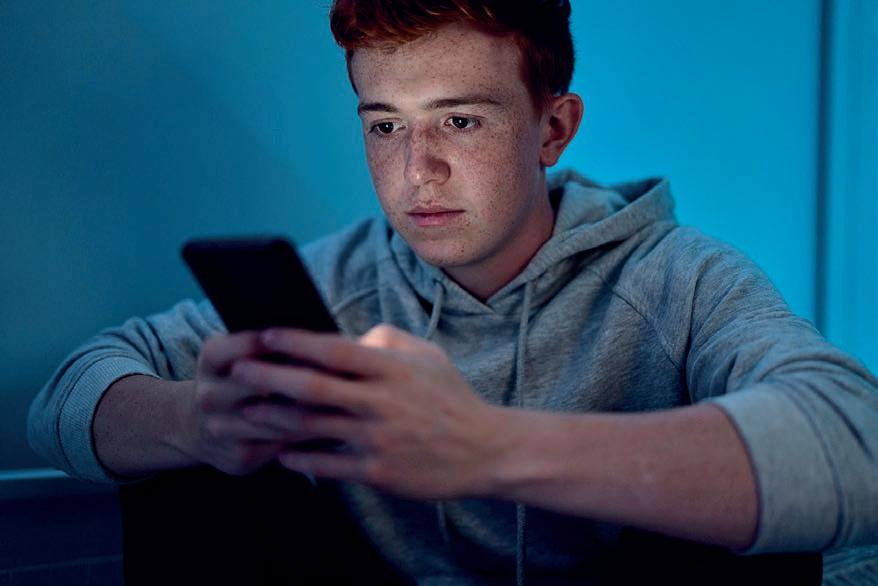
The evaluation, supported by the advisory group, will inform the government’s future review of the legislation within two years of its commencement. Findings will contribute to the global evidence base on how social media age restrictions a ect young people’s wellbeing – an area of growing concern for parents and educators alike.
Ms Inman Grant said the experts were chosen through a rigorous, independent process and bring “deep knowledge of online harms, children’s digital rights, and the lived experiences of families navigating online environments.”
Neither Stanford University nor the advisory group members will receive payment for their participation. Instead, they will gain access to research data and collaboration opportunities with international scholars.
Australian parents are increasingly choosing Independent schools, with new data revealing record enrolment growth across the sector.
Figures released in Independent Schooling 2025 – Enrolment Trends, Characteristics and Projections show Independent school enrolments rose by 3.9 per cent in 2023–24 – well above the national student population growth rate of 1.1 per cent. Independent schools now educate 745,000 students, or 18 per cent of all enrolments nationwide, and have increased their share every year for the past eight years.
Independent Schools Australia (ISA) CEO Mr Graham Catt said the findings highlight strong and sustained parental demand, as families make significant sacrifices to choose schools that align with their values and expectations.
“Families are voting with their feet,” Mr Catt said. “They are choosing Independent schools because these schools meet their values, aspirations and expectations.”
Mr Catt said the choice is being made by “everyday parents right across Australia” – from cities to regional towns – and particularly by low to middleincome families.
“Independent schools don’t all look the same. They reflect the incredible diversity of the communities they serve – from small faith-based and special assistance schools to large metropolitan colleges,” he said. “Despite the fact their children receive only half the taxpayer funding of students in public schools, families are still making extraordinary sacrifices. That choice must continue to be supported.”
The latest figures show Independent schools are the fastest-growing
education sector, compared with growth of just 0.2 per cent in government schools and 1.7 per cent in Catholic schools. The strongest growth was seen among schools charging less than $7,500 in annual fees, while 22 per cent of the sector’s total growth over the past five years has occurred in regional and remote areas.
Queensland led enrolment growth at 4.8 per cent in 2023–24, followed by Western Australia (4.5 per cent), Victoria (4.1 per cent) and New South Wales (3.6 per cent).
ISA projects the sector will add 114,000 students over the next decade, requiring about 260 new schools or campuses – most in NSW, Victoria and Queensland. By 2027, Independent schools are expected to overtake the Catholic sector in total enrolments.
Beyond education, the Independent school sector is also a major contributor to Australia’s economy, generating $45.7 billion annually, supporting over 264,000 jobs, and saving taxpayers an estimated $12.5 billion each year.
“Independent schools ease pressure on government schools, they drive jobs and growth, and they deliver significant taxpayer savings,” Mr Catt said. “Every dollar invested delivers much more back to the nation.”
Mr Catt said fair and sustainable funding is essential to ensure families can continue to access Independent schools.
“To preserve real choice, governments must maintain fair funding arrangements and extend critical programs, such as the Choice and A ordability Fund, beyond 2029,” he said.
The full report is available at schoolchoicecounts.isa.edu.au.
Choose a school where your child’s unique personality, preferences, and needs can truly thrive.
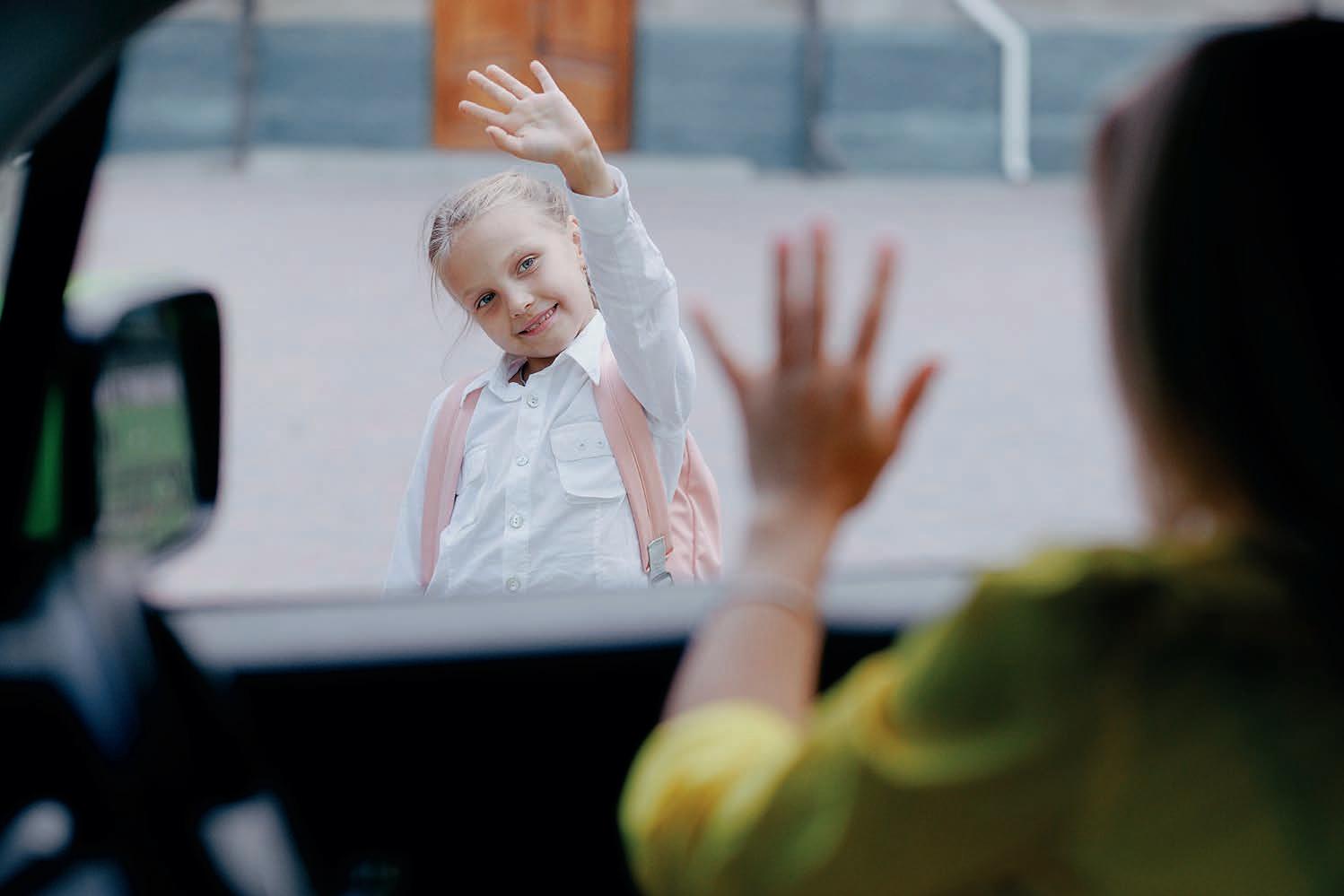
Making an informed decision for your child involves thoroughly researching and evaluating various aspects of a school, including its academic reputation, teaching methods, extracurricular activities, student body, facilities, leadership, and overall culture. By gathering information from multiple sources like websites, open days, tours, and conversations with current students and staff, you’re poised to make a well-considered choice that best suits your child’s needs.
The independent school sector educates 18 per cent of all enrolments nationwide, o ering a huge variety of learning options and school choice based on values, community and culture. This is why it is important to be organised in advance to ensure the school selection process is as smooth as it can be. Choosing the right primary and secondary school is vital to a child’s future and selecting the right school is a decision that shouldn’t be rushed. After all, for children, school is as much about learning as it is about being part of the school community, having new experiences, participating in sports, clubs and extracurriculars, and making friendships and memories that will last a lifetime.
To help with this decision-making process, we
have compiled a list of important factors to consider when choosing the right school for your child.
Talk to your child
Before you go out to ask questions and obtain information on various schools, you first need to understand your child. When you consider a child’s unique personality traits, strengths and weaknesses, you can determine what a child’s individual learning needs are, and the specific things that a school must provide for your child so that they can learn e ectively.
• What interests and hobbies do they enjoy? What particular skills do they have?
• What are their social needs and preferences?
Open days and school visits
Most schools hold at least one open day per year where you will be able to chat with the principal, teachers, students, as well as other parents and prospective parents. Many schools also o er opportunities for parents to visit during regular school hours. Although much of the information you need in order to make a decision can be found online or in brochures, there are some things, such as playground facilities that you may like to see in person.
School management and facilities
Consider the school’s vision, values and guiding principles that guide the sta and students. Ask about what the school has planned for its future. Do

you get a sense that the school focuses on the future? Take note of whether the school seems well managed and how well the facilities are maintained.
• Is there a counsellor or nurse on-site?
• What unique facilities and resources does the school possess?
• What is the school’s computer policy?
• In what ways is technology used within the classroom?
• Is the school currently investing in new facilities that will be in use during your child’s education?
• Does it o er external campuses or a sister school?
How invested a school’s teachers are plays a big role in how engaged students are and how successful they are on their academic pathway – whether that means getting good grades, building confidence, developing positive relationships, or fostering collaboration and teamwork within the classroom.
With ongoing teacher shortages and retention issues across the education sector, it’s important to look at whether school’s sta is comprised of committed and e ective teachers. Examine teacherstudent relationships. Look at the school’s teaching methods and determine whether these are aligned to your child’s talents, strengths and interests.
• Is there genuine warmth and respect between teachers and students?
• Do the teachers use di erent types of learning strategies such as auditory, visual and tactile?
• If your child has special learning needs, do you need a school with a remedial education program?
• Does the school provide aides and specialists such as speech pathologists, language and literacy experts?
• It’s also important to find out what the school principal is like because much of the school’s decision making will start with the leadership team.
• Are school leadership respected by students, teachers, parents/carers and the school community?
• Do they have good people management skills?
• Could they be considered a role model for the school’s students?
As Australia’s population becomes increasingly diverse, technologies become more sophisticated, and the demands of the workplace more complex, independent schools are supplementing the national curriculum framework in a number of di erent ways. It’s important to consider the finer points of a school’s curriculum and the skills that its graduates are known for, and whether these are in line with your own child’s unique strengths and interests. Look at the admission and selection criteria of the school, and whether there are particular subjects where it records its best results.
• How does it rank against other schools in the area? Does the school tend to channel children into academic or vocational streams?
• What is the external reputation of the students? Is the school intellectually competitive? Will your child be su iciently challenged?
• What are the school’s policies regarding gifted or special needs children?
• What proportion of students go on to study at university?
• Are students encouraged to become involved in leading the school?
• What are the class sizes? Is there a maximum number of students allowed in each class?
• Is the school co-ed or single sex? If co-ed, what is the gender balance of classes?
• Do you want your child to have access to community initiatives or overseas travel?
• What languages are o ered by the school?
• How multicultural is the school?
• Are there peer-support programs to help new students fit in?
• What role does the school play in the local community?
• Are before or after-school programs available?
• How are positive, healthy relationships and friendships among students encouraged?
• Are the school’s religious and philosophical outlooks and practices the same as your child’s?
• How are morals and ethics taught within the school?
• What are the school’s rules? Are they clearly stated, positive and well enforced?
• How do teachers handle bullying? What is the school’s disciplinary policy?
A child’s education can amount to a significant financial investment over the course of their lifetime which can strain families’ resources if not planned carefully. There are some important financial considerations when choosing the right school for
your child. Besides tuition fees, are there other courserelated costs or extra-curricular costs that you may need to consider? Does the school o er financial assistance in the form of scholarships or bursaries and could your child qualify? Does the school facilitate a car-pooling program? Is the school’s location accessible by frequent public transport? Are there safe cycling roads on your route to the school?
The role of parents and carers
When it comes to making decisions, it’s important to be clear on how the school’s teachers interact with parents and carers to get them involved in their child’s educational experiences.
• Is there a Parent Teacher Association?
• How many parents are active? Are parents encouraged to get involved in helping to develop school policies?
• How will your child’s progress and assessment be reported to you?
• Is there a website to access lesson plans, progress reports and homework tasks?
• Do the co-curricular activities fit easily into your family’s routine?
• Does the school encourage parents to get involved in school excursions?
Trust your intuition
After gathering information, consider your gut feeling about the school and whether it aligns with your child’s needs and learning style. The ‘best’ school for your child is the one that provides them with a safe and secure environment where they can feel confident and comfortable being creative and curious, connect to their surroundings, socialise with peers, and pursue their interests. The right school is the one that will help your child to thrive and set them up for success in the future.
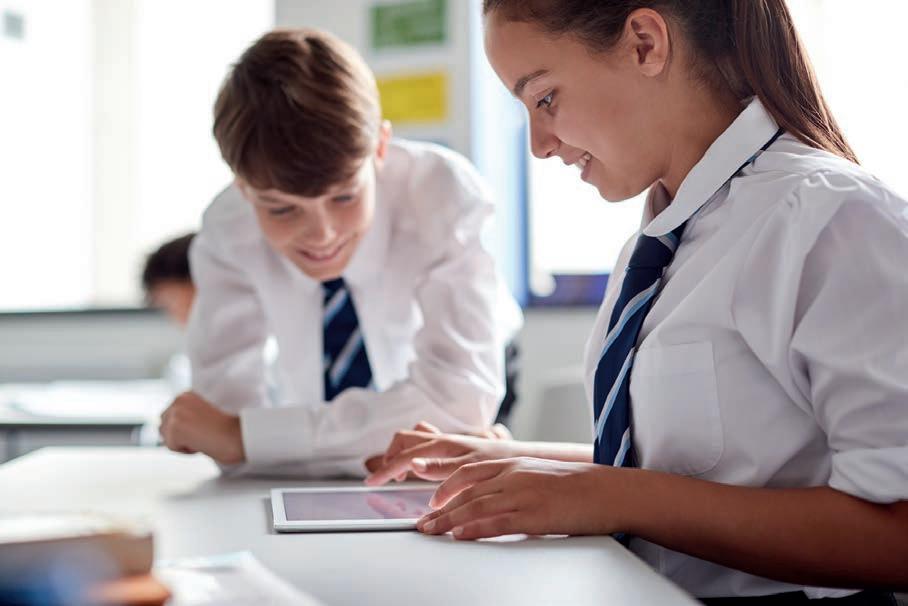

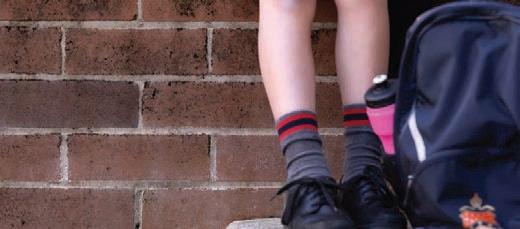


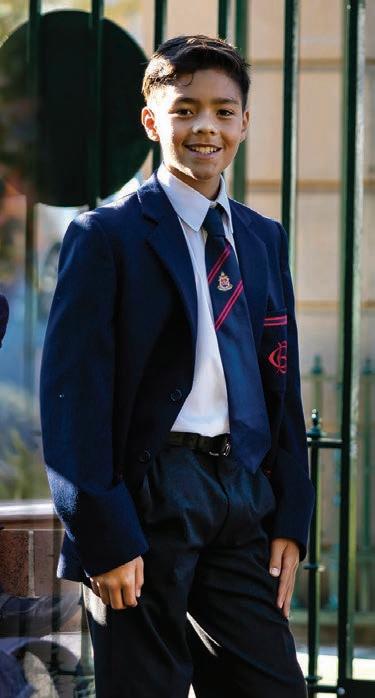
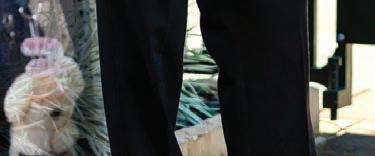








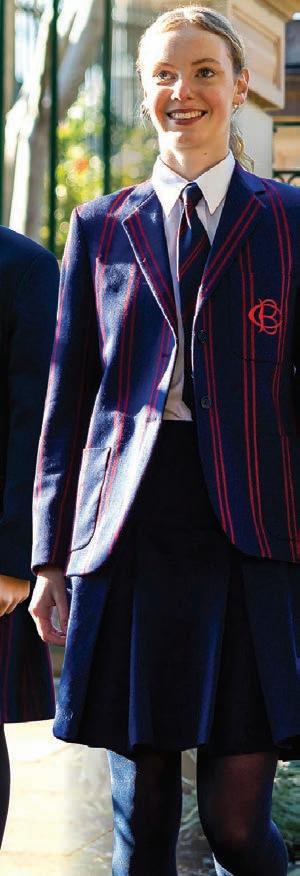







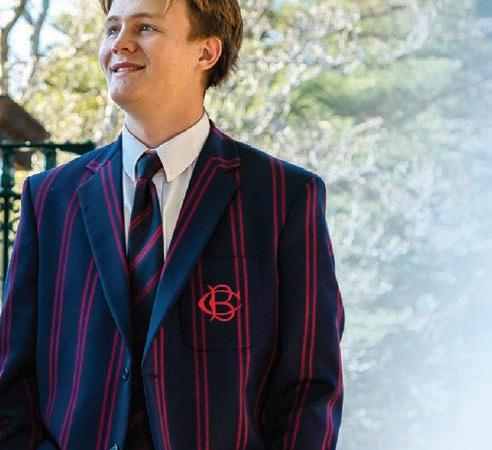





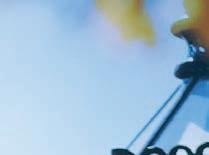








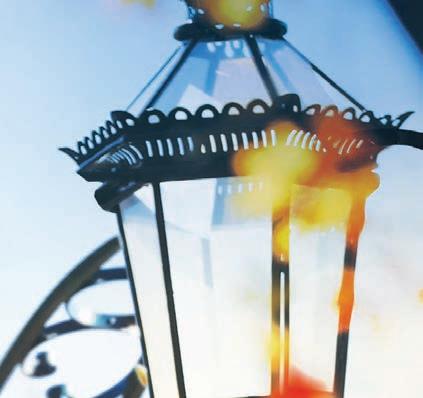






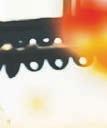
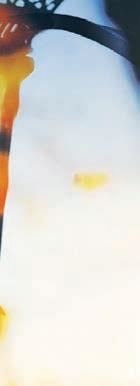


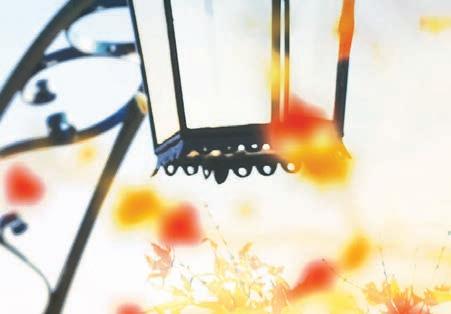









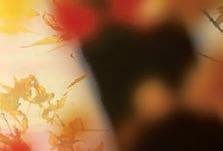
A fully coeducational school from Pre-K to Year 12, with Boarding from Years 9 - 12.
At Barker, education is more than academic achievement - it’s about shaping young people who are ready to make a di erence in the world.
Discover how we build confidence, capacity and character in our students.
barker.college
At Barker College, AI is enhancing – not replacing – human learning. From Pre-K to Year 12, students and teachers are using AI to think creatively, personally, and safely.
At Barker College, Artificial Intelligence (AI) is being thoughtfully integrated into learning from Pre-K to Year 12, not as a replacement for thinking, but as a partner in sparking creativity, deepening understanding, and personalising learning.
Barker’s Digital Learning Team has worked closely with School Leaders and Teachers to develop sustainable, future-focused practices around AI. In late 2025, all teachers from PreK–12 participated in a dedicated professional learning day to clarify expectations for AI use, explore endorsed tools, and provide shared resources that support the meaningful integration of AI into classroom learning.
Barker is proud to be partnering with several experts and content providers who have developed educational tools designed for teachers and students to draw on the power of AI safely and purposefully. The following provides an example of AI use in Barker’s Junior and Secondary Schools, along with advice for parents who are wondering how they might support learners using AI at home.
Junior School: age-appropriate AI
In Barker’s Junior School, the integration of Toddle across Pre-K–6 is the new programming platform for teachers. “This platform reflects a commitment to enhancing how we connect, communicate and celebrate learning across our school community,” Head of Barker College, Mr Phillip Heath AM explained.
“Toddle is a custom-built platform for IB Primary Years Programme (PYP) schools, making it a perfect fit for our inquiry-based learning approach. It enables us to align the NSW Syllabus with the IB PYP framework in one cohesive platform. From Pre-K drawings to Year 6 Exhibition projects, Toddle captures the whole arc of learning and gives families a richer window into their child’s growth,” Mr Heath said.
One standout feature is Toddle’s optional use of AI to support planning, reflection, and curriculum mapping, helping teachers focus more on students and less on administration. These AI Tools are designed to support both teachers and students by reducing administrative load through assistance
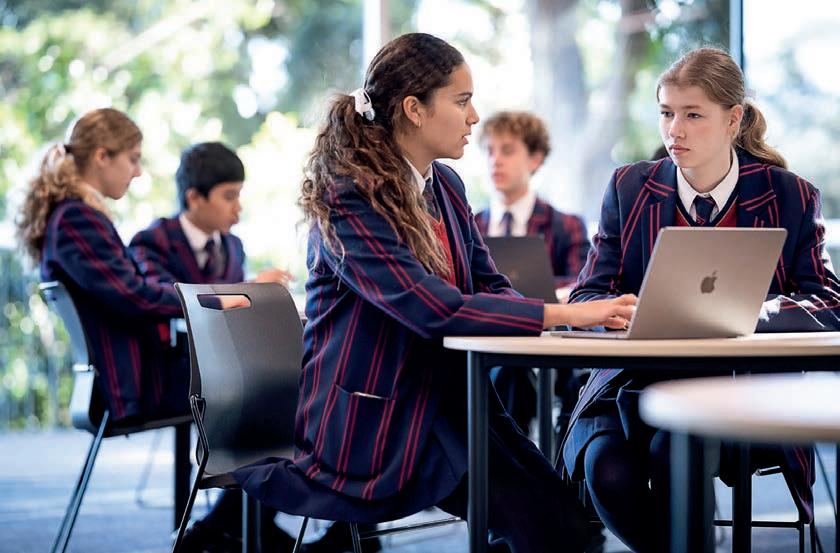

with planning, reflections, and curriculum mapping. Importantly, student data remains protected, and these tools are intended to enhance, not replace, the human heart of teaching.
In Barker’s Junior School, Toddle has become a central hub where all teachers can collaborate on their teaching and learning programs since a trial program in 2023. The platform allows for seamless integration of various educational resources, making it easier for our educators to plan, track, and communicate ideas for teaching and learning.
“As we move forward, our focus remains on enhancing the Digital Literacy of our students and ensuring they are well-equipped to navigate the digital world. We are approaching the implementation thoughtfully, starting with sta training and piloting Toddle in selected year groups before expanding further,” Mr Heath stated.
Early feedback from students and teachers has been overwhelmingly positive:
“I like knowing that what I did in class I can see at home, and it was so easy to submit and
share my work!” – Year 5 student.
“Toddle helps bring learning together in such a clear and purposeful way. It supports the PYP beautifully, and it makes documenting and sharing learning easier without sacrificing depth or meaning” – Junior School teacher.
Through Toddle, parents can engage with students’ work, view digital portfolios, and read teacher feedback. For students, Toddle o ers an engaging platform to reflect, upload work, and set personal goals. Teachers benefit from a streamlined workflow that aligns planning, documentation, and reporting with the PYP philosophy and mission and vision of our school.
AI in action: transforming learning in Barker’s Secondary School
In the Secondary School, Barker is leveraging the power of tools like Microsoft Copilot 365 and Cogniti to enhance teaching and learning. Copilot assists sta and students with productivity, planning, and di erentiation, all within the safety
of our enterprise environment. Cogniti, developed in partnership with the University of Sydney, enables the creation of context-specific AI learning companions, giving students targeted support beyond the classroom.
Copilot is an integrated AI platform, protected by the School’s enterprise-level security, designed to support both students and sta across a range of tasks of varying complexity. Copilot can, for example, generate lesson outlines, suggest resources, di erentiate learning, and align content with curriculum standards. Reducing these timeconsuming tasks frees up teachers to focus on instruction and student engagement (a key metric to improve learning outcomes).
Cogniti enables teachers to provide specific instructions and resources, creating a steerable and accurate AI assistant that supports student learning in context-specific ways. This can create opportunities for individualised learning experiences, support outside of the classroom, and familiarity with using AI tools in a safe and secure environment. These tools aren’t replacing teachers; instead, they are freeing them to do what matters most: teach, connect, and inspire.
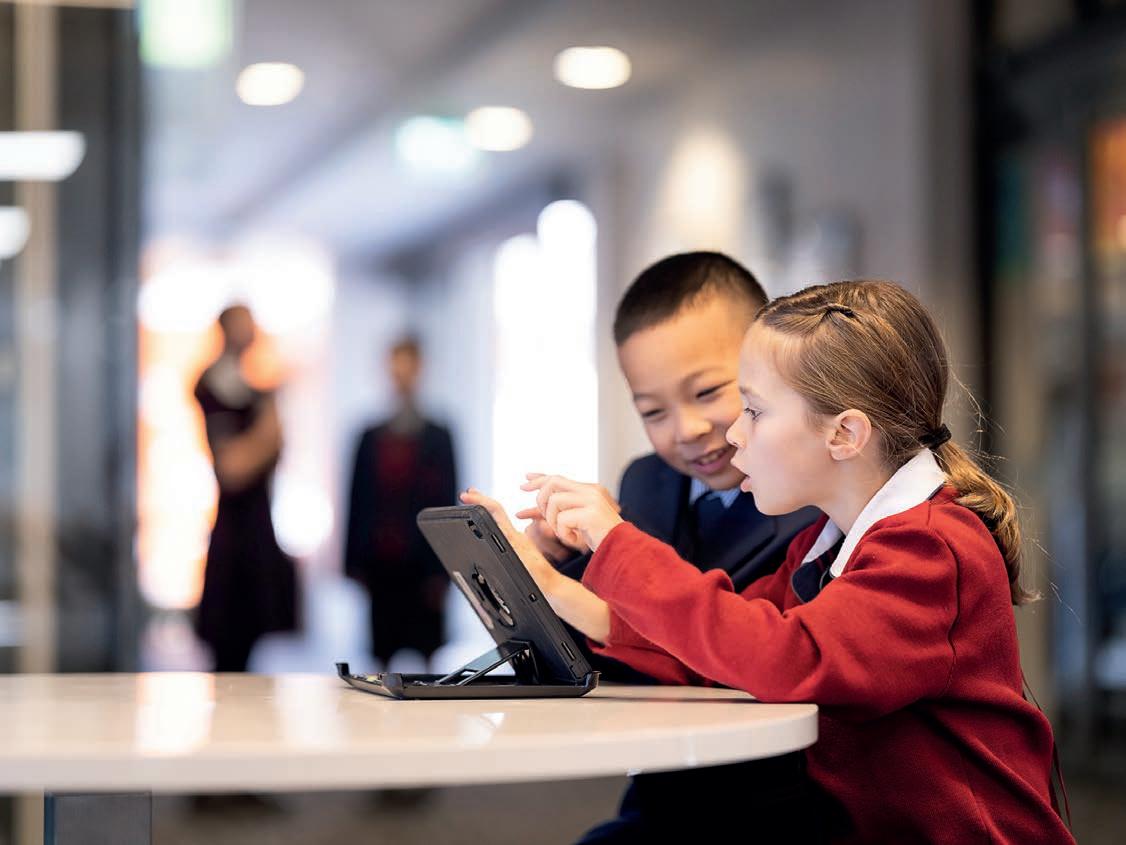
“While the integration of these platforms is ongoing, Copilot and Cogniti are set to enhance learning, teaching, and school operations,” Mr Heath explained. “Through thoughtful implementation and continuous evaluation, Barker is well-positioned to leverage these tools to establish a more dynamic, equitable, and e ective educational environment for all.”
Supporting learning at home: a guide for parents Digital technologies have consistently presented challenges to parents and caregivers. Finding the right balance between screen time and other pursuits has been a constant source of concern and, at times, even friction.
Seemingly overnight, AI has been added to the list of technologies that parents need to get their heads around. AI is becoming an integral part of our children’s lives, from educational tools to entertainment and social interactions. As with any digital technology, it is essential to guide and support your children in using AI responsibly and e ectively.
•Learn For Yourself First: Before you can guide your children, it’s crucial to understand AI yourself. Familiarise yourself with the basics of AI, its applications, and its potential impacts on children. This knowledge will help you have informed conversations and set appropriate boundaries.
•Open Communication: Encourage open conversations about AI with your children. Ask them about their experiences, what they find interesting, and any concerns they might have. This dialogue will help you understand their perspective and provide guidance tailored to their needs.
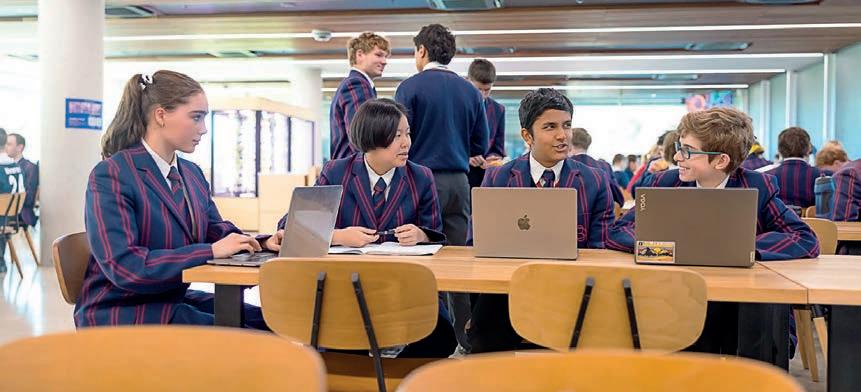

•Set Boundaries and Guidelines: Establish clear rules for AI usage, including screen time limits and appropriate content.
•Promote Ethical Use: Teach your children about the ethical implications of AI. Discuss topics like privacy, data security, and the potential biases in AI systems. Encourage them to think critically about the information they receive and the tools they use. This is an excellent opportunity to build discernment: talk about how to tell the di erence between real and artificially generated content, whether it’s text, images, or video. Encourage your child to ask questions, verify sources, and consider the purpose and trustworthiness of what they encounter online. Developing this sense of digital discernment is essential in navigating a world where AI-generated content is increasingly common.
•Encourage Creativity and Exploration: AI can be a powerful tool for learning and creativity. Encourage your children to explore AI-driven educational tools, coding platforms, and creative applications. Support their curiosity and help them find
resources that align with their interests.
•Monitor and Supervise: Keep an eye on your children’s AI interactions. Use parental controls and monitoring tools to ensure they are using AI safely and appropriately. Regularly check in with them to discuss their experiences and address any issues that arise.
•Lead by Example: Model responsible AI use in your own life. Show your children how you use AI tools for productivity, learning, and entertainment. Your behaviour will set a positive example and reinforce the guidelines you establish.
“The goal is to empower your children to use AI as a tool for growth and learning while ensuring their safety and well-being,” Mr Heath concluded.
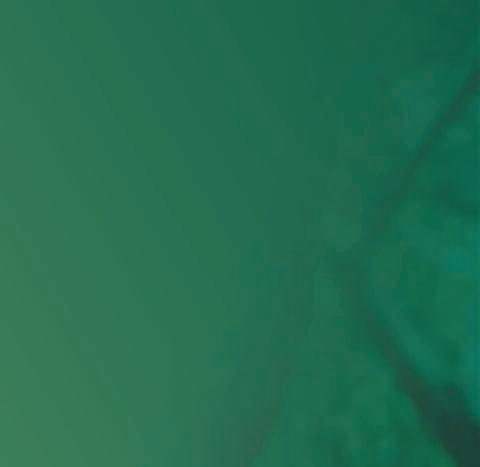
“I didn’t know most of the people, actually only a few, but I became friends with many, now I notice people I never did before.”
“Our son has even expressed that he wished he could stay another term—he misses us, but he is not homesick, which is a testament to the nurturing and supportive environment you have created.”
“I really enjoyed the whole experience, I spoke to the older boys before I went who told me it was a fun camp and it was as good as I expected.”
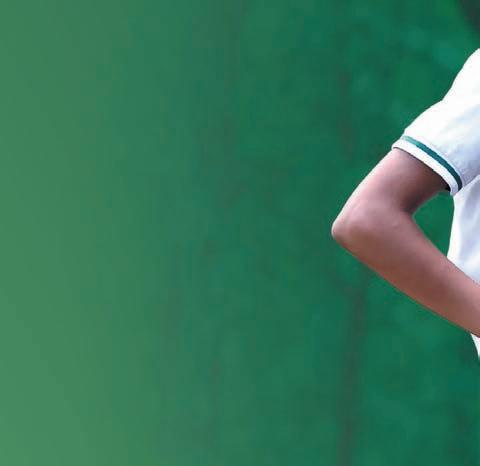
“At home they say I’ve gotten less reliant on my parents and I can do more things myself, the point was to teach us to be young men and it really helped with that.”
“Now I feel like I can do anything that I put my mind to since I came back.”
“I was a bit nervous ahead of the residential. I didn’t know many in my group. Once we started doing hikes, camp fire and tents, we really connected.”
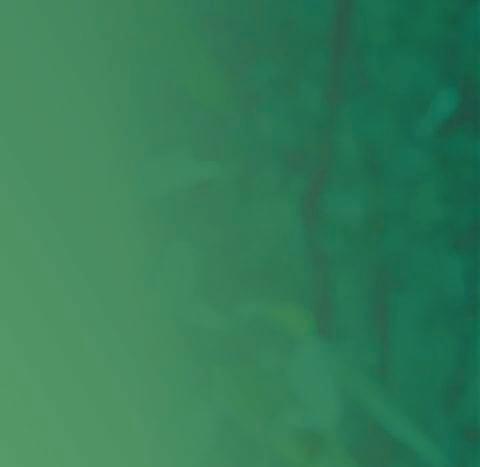
“I used the night sky as a metaphor of the camp, the black sky is everything we do on camp, the millions of stars are all the amazing opportunities we have on camp, big or small, the moon guides us through.”
Feedback from Year 9 students following their term-long, Field Studies residential.
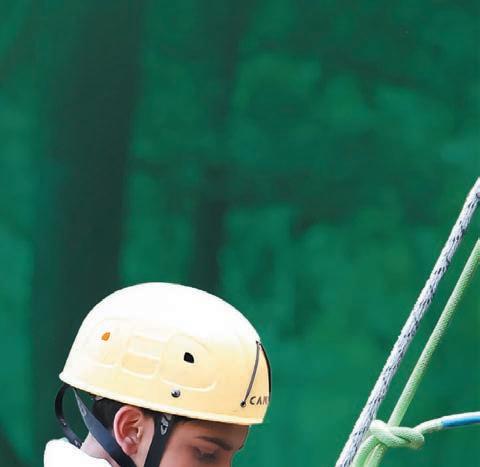
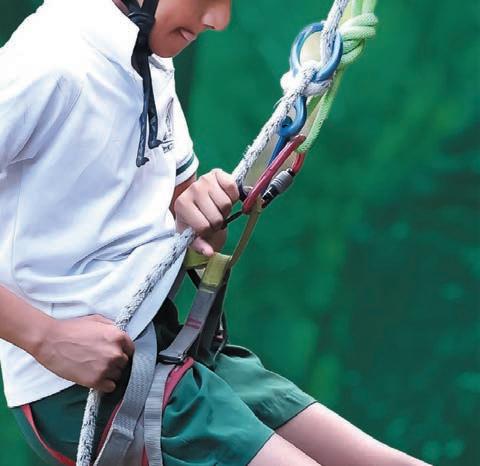


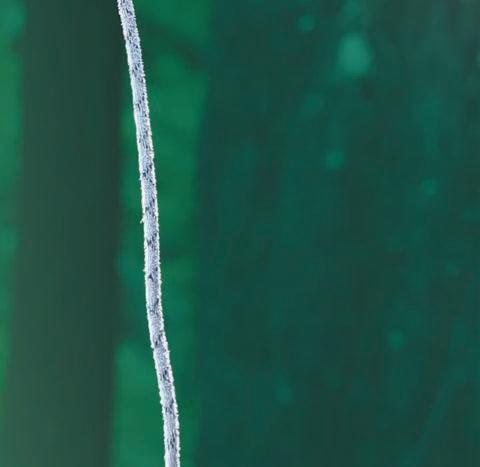


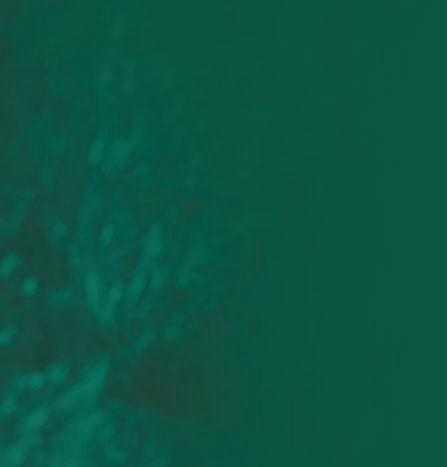





trinity.nsw.edu.au/about-us/field-studies-centre
Trinity Grammar’s latest drama production went beyond performance, using autism expertise to guide students in portraying neurodiversity with empathy, authenticity, and deeper human understanding.
What better way to portray autism accurately on stage than to call in expert advice during rehearsals?
That’s what Trinity Grammar School’s Drama department did for its latest production, a move that not only promoted greater authenticity but helped cast members grow as actors and people.
With the aid of non-profit group Aspect (Autism Spectrum Australia), the actors came away with a deeper understanding and empathy for a condition a ecting an estimated 300,000 Australians.
Experts visited the school to deliver information, answer questions, and conduct acting workshops ahead of the production of The Curious Incident of the Dog in the Night-time.
The lead role of Christopher Boone, a 15-yearold English autistic boy, was shared by two students, Christian Viola (Year 10) and Alexander Henry (Year 11).
They appeared in four performances each during the play’s run at Summer Hill in May, with a cast augmented by girls from Meriden and Rosebank.
Christian dedicated his performance to his autistic sister Elise, saying: “My goal was to make even just one person in the audience think, ‘I’ve seen someone like this person before and I want to help them’. I wanted to showcase empathy for this character.”
“It’s not a disease; it’s something to celebrate,” he said.
Alex said he struggled with the role at first but found the Aspect sessions “incredibly useful in grasping how to portray the character authentically”.
“It helped me show the light and the shade of this life. There is lots of darkness and distress but also beautiful moments, like Christopher’s love of maths and outer space, which are his happy place and his moment to shine.”
Alex said he had known autistic people at school since primary school.
“When you understand why they are doing the things they do, you realise that maybe they are the strongest people in class.”
Both actors were inspired by Dylan Crawford, an
actor, director, and English teacher employed by Aspect, who visited the school during rehearsals and explained to students how he managed his own autism and ADHD, and how drama had been central to his development.
“Drama is the reason I am the way I am in my life. It has wholly changed me as a person. I really struggled through school with anxiety, connecting with my peers, and feeling afraid of social interaction.
“However, through drama I was given the space and patience and love I needed. I was able to turn theatre from something I was forced to do by mum to something that has become a core part of myself. I had a great teacher who focused on what I could do, not what I couldn’t do.”
He told students: “Theatre should be a place that everyone can access on both sides of the stage. You are surrounded here by people with really big hearts who want to make this production successful, who are trying to do the right thing for you, for the autistic community, and this production.
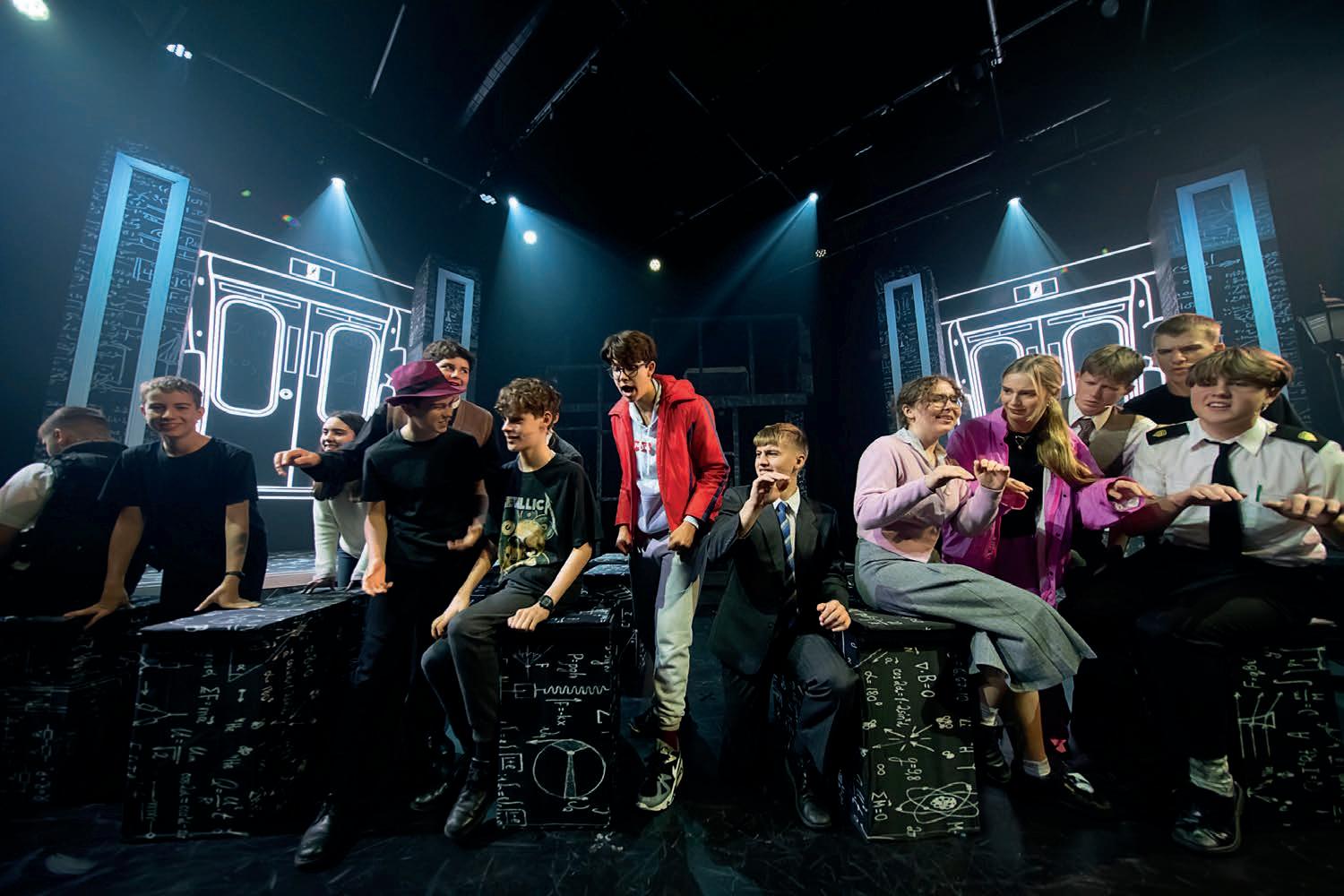
“You are depicting us [neurodivergent people] so we are putting into your hands the responsibility to depict us with dignity.”
Head of Drama Brendan Duhigg said: “The insights and expertise from Aspect gave the cast an idea of what the world looks like from an autistic person’s point of view.
“The boys and girls in the cast were all really committed to doing honour to this; some of them have autistic brothers and sisters themselves. It has really enhanced their understanding.”
He cited the Atticus Finch quote from To Kill a Mockingbird, saying to really understand someone you need to “climb inside their skin and walk around in it”.
“That’s what the cast have done and I hope that’s what the audience ended up experiencing.”
Dylan Crawford said autism had helped him with acting. “There’s a term called masking, or putting on an act, when we pretend to be neurotypical. A lot of autistic people going into the theatre to act say, ‘Hang on, I do this every day’.”
He explained why autistic people engage in “stimming” – fidgeting, flapping hands, making noises, and so on – saying these behaviours all help regulate a build-up of hyper-sensory reactions to things like noise, light, temperature, and textures.
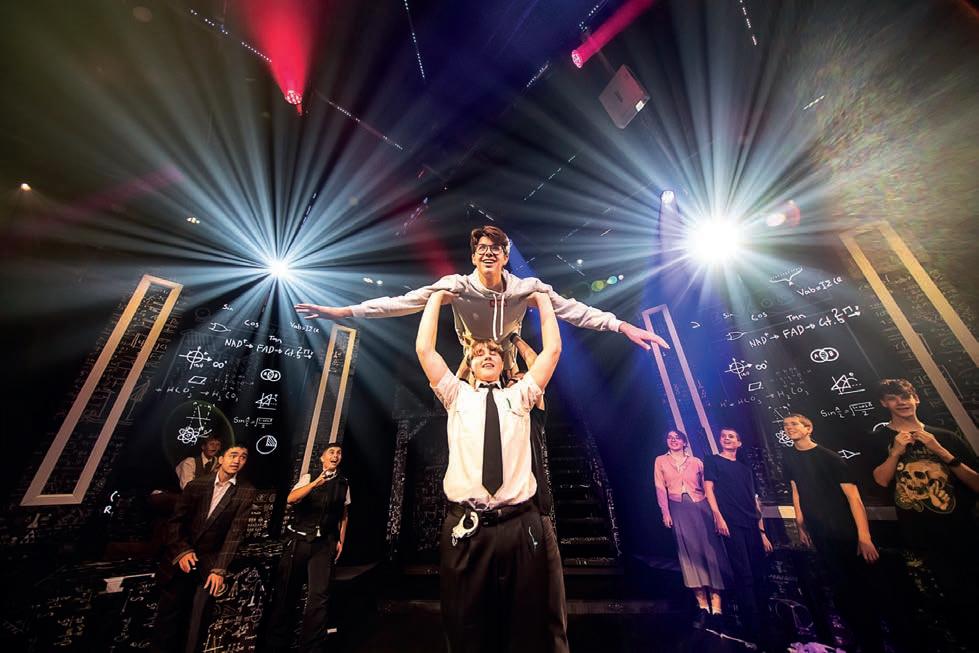
Stimming helps to empty the cup so that it doesn’t overflow and lead to a meltdown.”
“We can’t tune out every little thing going on in the background. There’s a cumulative mental load and if it gets too much you can’t process it anymore.
In response to a question from one student, he said one of the best ways to help autistic people was to “just take the time to have patience; sometimes we can be di icult to have patience with”.
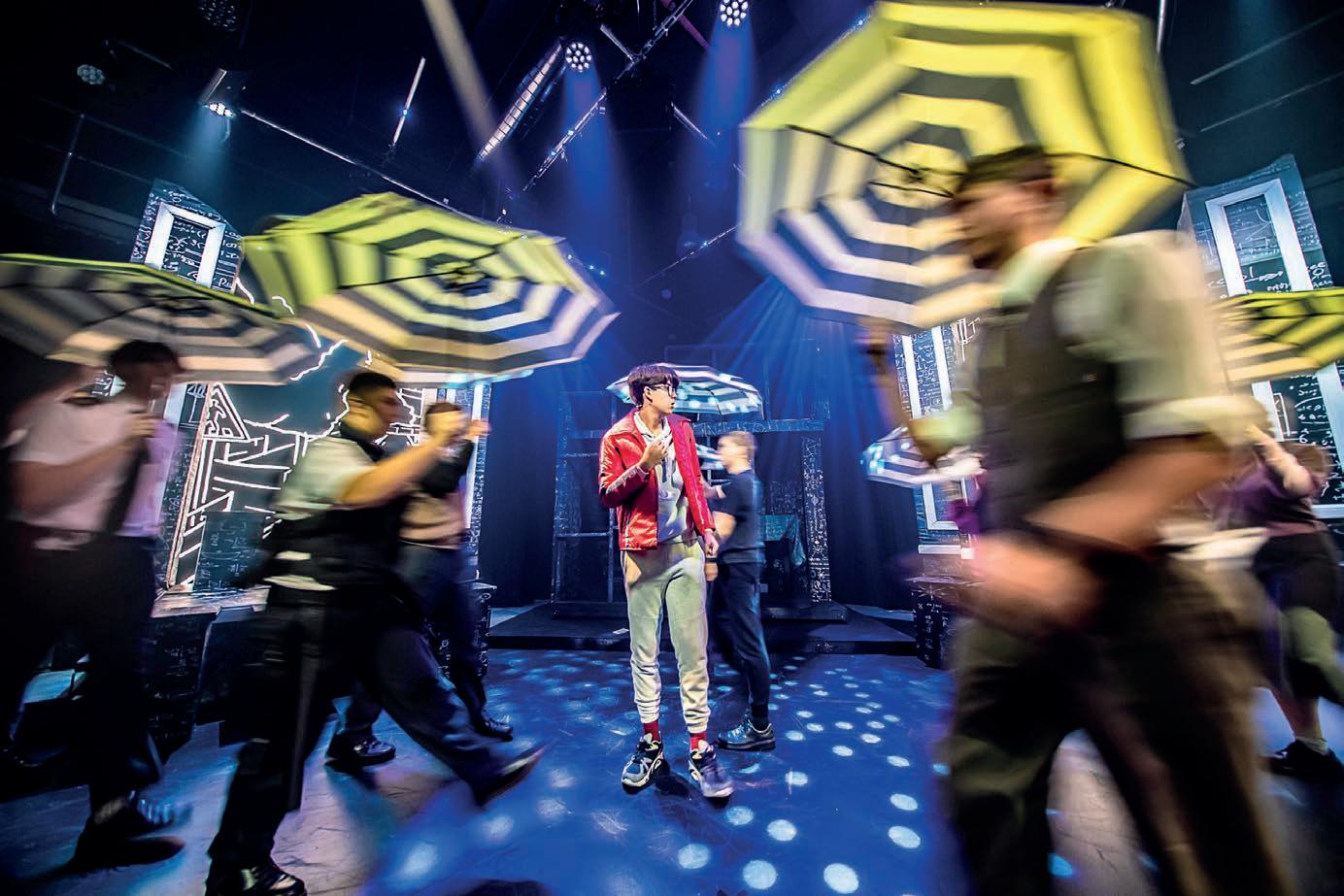
many with significant additional needs who have shown substantial growth and resilience there,” said Jessica Staniland, Director of the TESS Counselling and
“The counselling team, along with professional sta at Summer Hill and Woollamia, work hard each year to collaborate with students and families to plan
“This ensures all students can have the opportunity to meet the challenge and
“Sometimes we find that the students who are most concerned about the experience thrive with the change in environment, variation in learning approach,
During regular school life in Sydney, Trinity’s House system is credited with
“The one-on-one support in the House system means each student is looked after intensively by the Housemasters, who are well aware of all their pastoral
“This oversight makes sure no-one gets missed. Our counselling sta work closely with Housemasters as well as TESS Academic Support Service, so we can address the social and emotional aspect of learning as well as the academic
Trinity sta can assess students for learning or mental health di iculties but do not make diagnoses; they will, however, recommend that parents seek help from
TESS sta estimate up to 60 per cent of students seek counselling help at some
“Many boys are very open in talking about it with their mates, while others are
“We are doing a lot to try to reduce stigma and encourage more willingness to talk. We expect a lot of students at Trinity, which is a good thing, although we
“Every child’s journey is very di erent, and their experience may change from month to month or year to year. The TESS Counselling team can tailor support to ensure every boy can access the full breadth of experience within Trinity, even if
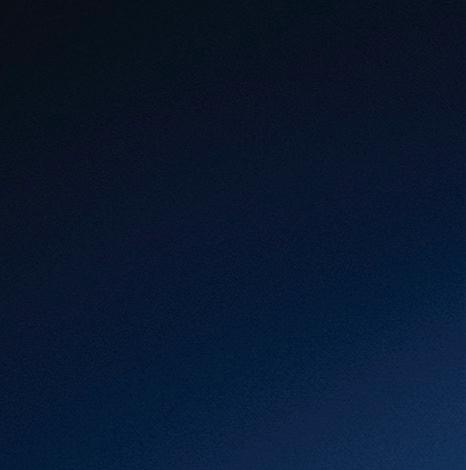
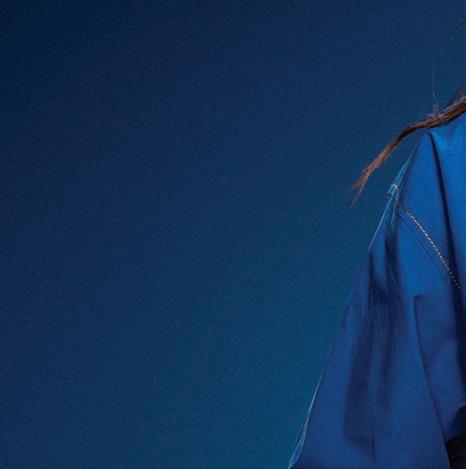
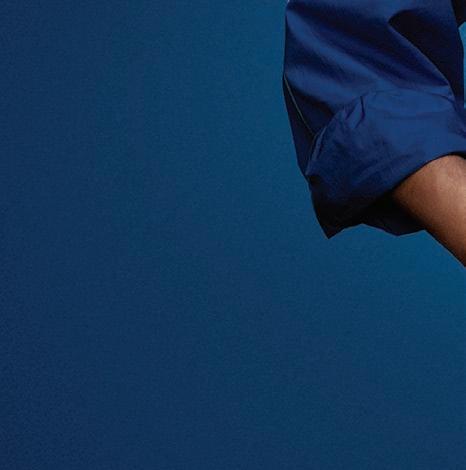
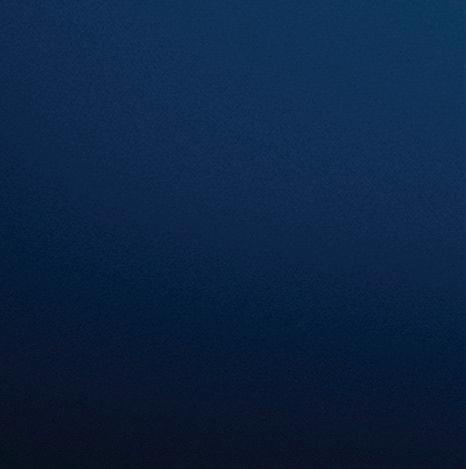

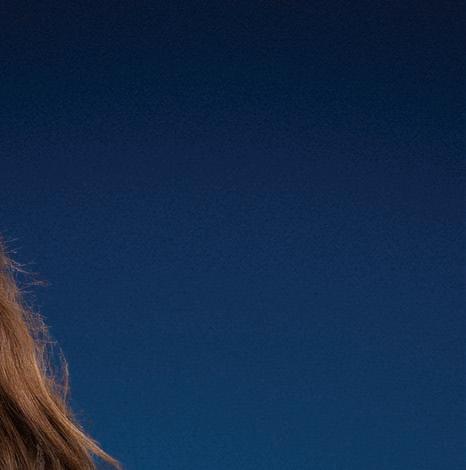

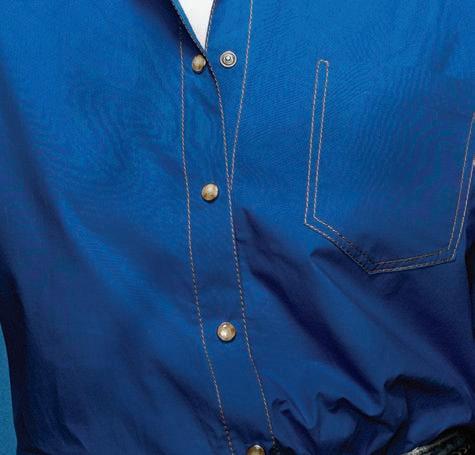

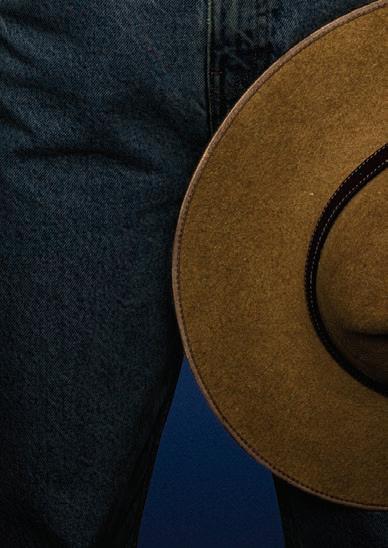
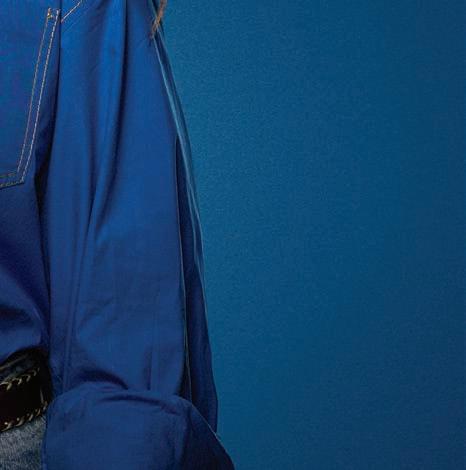

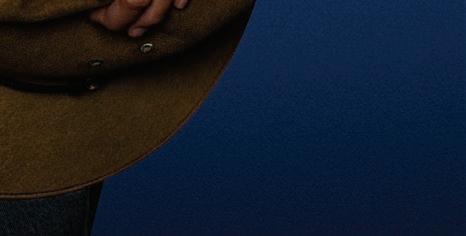

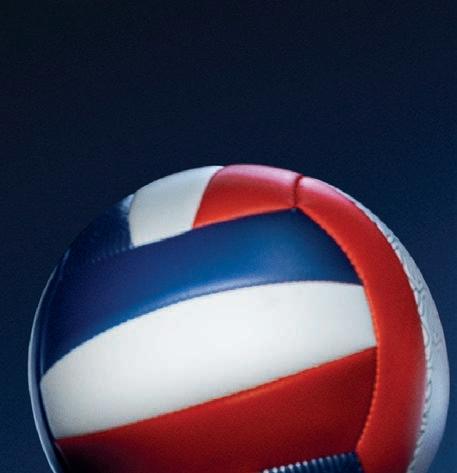


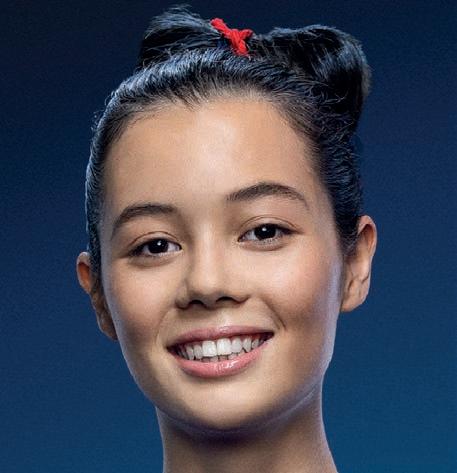
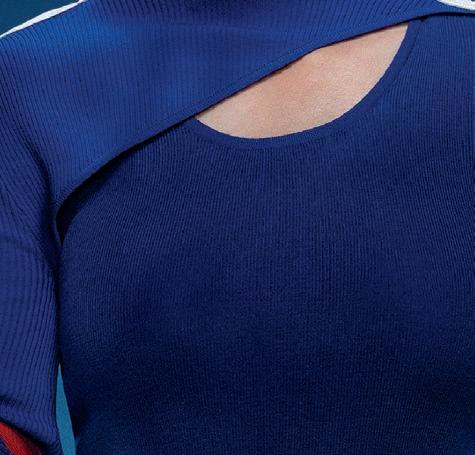
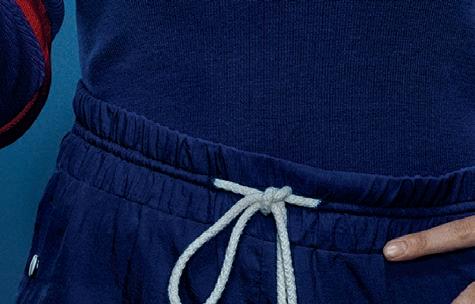
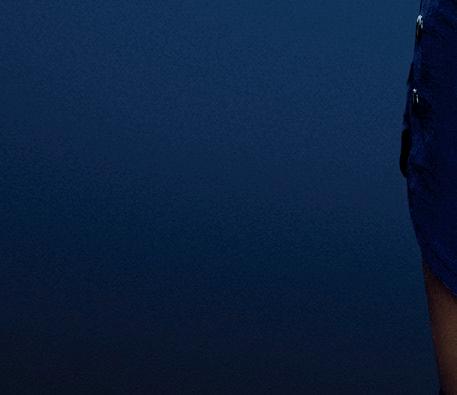
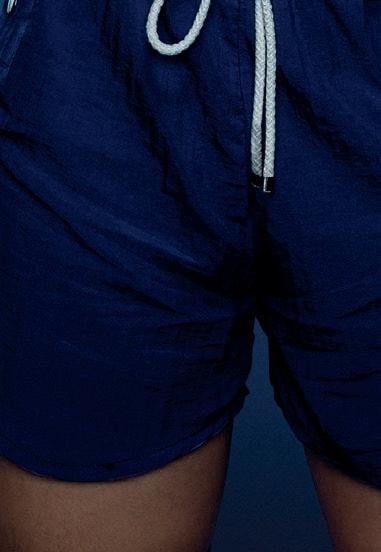




As the mother of five adult children and principal of one of the leading girls’ schools in Australia, Dr Kate Hadwen shares her top 10 reasons for considering Pymble Ladies’ College for your daughter.
An all-girls’ learning environment will best support your daughter
While it is important to have choice in the market, we firmly believe in the enormous amount of data from Australia and all around the world showing that a single-sex learning environment leads to better outcomes for girls than a co-educational school. This data comes from excellent research by highly regarded academics and has been brought together by the International Coalition of Girls’ Schools (ICGS), of which I am a board director. Essentially, compared to girls in co-ed schools, girls in single-sex schools achieve higher academic results, which we routinely see in Australia in NAPLAN, HSC and PISA testing. They also have a greater sense of social and emotional wellbeing, confidence and self-esteem, competitive spirit and willingness to take risks with their learning, participation in STEM subjects, and participation in sport and physical education.
Put simply, a girls’ school o ers the best learning environment for your daughter because every facet of the educational experience is designed strategically with her in mind. In this environment, she is unreservedly the focal point, encouraged to develop and voice her opinions, explore her identity and follow her dreams without limitations.
We o er authentic opportunities to work alongside boys
While we remain proudly and resolutely a singlesex school, we are committed to encouraging our girls to develop healthy social skills and mutually respectful relationships with their male peers. We intentionally partner with boys’ schools to create a series of authentic and meaningful opportunities for our students to learn and grow together over the years – more so than just a one-o end-ofyear social.
Just a few examples of our co-educational programs include Billycart Making and Racing for Year 5 with St Ignatius College, Riverview; our four-week, tech-free Year 9 Residential Program at Vision Valley in partnership with Anglican Church Grammar School (Churchie) in Brisbane; and our combined Swimming Club with Knox Grammar School boys.
Our second campus is a game changer Vision Valley is our 100+ acre Outdoor Education campus located in a bushland setting just 45 minutes away from our main campus on the North Shore. It is also home to our Outdoor Education Continuum (OEC) for K-12, a series of progressively
more challenging outdoor activities and adventures, starting in Kindergarten and building up over the years, to encourage teamwork, relationship skills, resilience, courage and independence.
The Year 9 Residential Program is our flagship OEC program at Vision Valley where students live communally in designated girls’ or boys’ lodges under the supervision and care of our experienced Outdoor Education team for four consecutive weeks, including weekends. Without phones (and therefore social media), students live, learn, play, explore and discover how to make friends and relate to one another in a face-to-face, real life, natural environment. We think it’s an absolute game changer in terms of the character development




of our young people, with research showing that students who participate in this program report a greater sense of self-e icacy, belonging and confidence than they had prior to attending.
We know and care for each individual student Pymble is known for its excellent pastoral care. We are blessed to have capacity to resource the school in a way that ensures our teachers and cocurricular sta are well supported to expertly care for your daughter. We see it as part of our mission to understand the individuality of each student and to enable her unique gifts and talents to shine.
Our wellbeing teams are highly skilled and trained professionals who work tirelessly to support positive outcomes for all our girls. We work alongside a Mental Healthcare Advisory Committee who guide and support decisions regarding policies, procedures and the programs we implement.
It would be our pleasure to show you in more detail how our wellbeing support structures, which include nine psychologists and five registered nurses, will support the care of your daughter from her youngest years through to Year 12.
We’re with you, every step of the school journey
Speaking of our youngest learners, we have a limited number of places currently available for Kindergarten 2027. Our Junior School is a cosy and supportive K-6 community where every girl is met with kindness
“A girls’ school offers the best learning environment for your daughter because every facet of the educational experience is designed strategically with her in mind.”
Dr Kate Hadwen.
and an invitation to belong. Kindergarten classes are intentionally kept small to maintain a high sta -tostudent ratio, which ensures each student has the support and guidance she needs to grow as a confident learner. We even have a Kindy Club in January, run by our wonderful Out of School Hours Care Centre team, to ease your daughter’s transition to ‘big school’.
With our explore-make-create framework to grow her STEM mindset from day one, strong focus on social and emotional growth, and an extensive program of extended learning and co-curricular activities, Kindergarten really is a special place for your daughter to begin her Pymble journey.
Our co-curricular opportunities are endless
We are proudly a big school that’s divided into smaller, bespoke precincts to support engaged academic learning at each stage and a close focus on each student’s academic progress. Having resources second to none also allows us to o er an enormous range of co-curricular and extended opportunities.
We have an incredible 57 co-curricular options on o er, including 33 sports for girls who wish to participate at entry or elite level (and all levels in between), and are the first Independent School in the country to be designated as an Australian Olympic Pathway school. Over the years we have established partnerships with the Rafa Nadal Tennis Academy in Mallorca, Tottenham Hotspur Football Club in the UK, and Australian Basketballer, Lauren Jackson AO, to launch the Lauren Jackson Basketball Academy for students in Years 3 to 12.
If Performing Arts are more your daughter’s thing, we have a highly successful Dance program o ering more than 130 Dance classes per week in our incredible new six-studio Dance Centre, an outstanding Music program that saw students recently tour Spain and Portugal, an extensive Language Arts program, Drama groups, Art classes and so much more.
Our Centre of Excellence also o ers a wide range of academic co-curricular opportunities, including competitive programs like the Da Vinci Decathlon, where our girls compete with great gusto and achieve incredible results.
If STEM is her ‘thing’, we are your school! STEM learning is now considered an essential part of the mix for building future-ready skills in our young people. At Pymble, my goodness we make it a compelling o er!

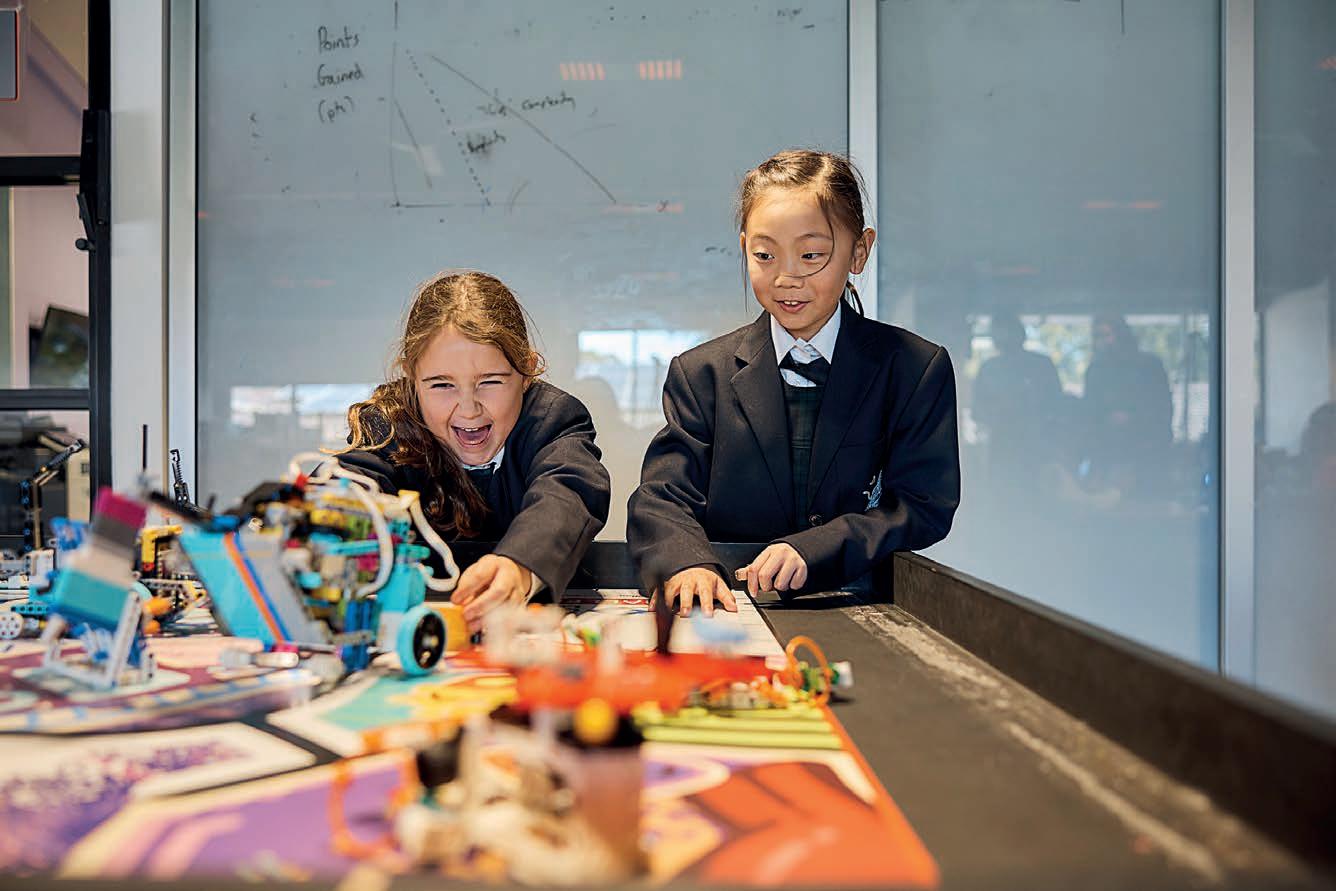
Across every year level in the Junior School, from Kindergarten to Year 6, our students are immersed in purposeful, creative and challenging STEM experiences that build curiosity, capability and confidence. Pymble’s Junior School is a lighthouse for STEM globally – and our girls are rising spectacularly to the challenge.
Our new Junior School STEM Lab, opening in 2026, will propel our pioneers to even greater heights by delivering a purpose-built space and the latest equipment to support their leadership in Drone technology, Electric Vehicle engineering and racing, and Robotics.
With more than 360 participants, we have one of the biggest all-girls Robotics programs in the world, starting with the basics for students in Years 1 to 4, and building up to our global competitors in the Secondary School, who routinely qualify and compete at the annual First World Robotics Championships in Houston. Hot on their heels, our inaugural Junior School EV engineering and racing team has been invited to compete in the F24 International Finals in the UK, following their highly successful debut at the Formula Goblin Greenpower EV Challenge in 2025 – and the team has recently been invited to become a Greenpower Centre of Excellence. Meanwhile, our inaugural Drone Academy class of girls in Years 4 and 7 recently competed in Korea where they made it through to represent Australia in November.
STEM at Pymble is definitely a mindset not a
moment, and there really is something for everyone to try at every level.
Our girls have the hearts and minds to change the world
Setting our students up for life requires much more than an ATAR. Our vision is for Pymble girls to flourish as individuals with unique gifts and talents, as learners with di erent passions and pathways, and as compassionate and influential young women who
have the hearts and minds to make the world a better place. This is reflected in our Watch Us Change the World strategic direction, which defines four focus areas for learning and development:
Academic Intelligence – Pymble inspires students to explore what matters to them and to see themselves in futures they may not have imagined by continually adding new innovations to the curriculum, including:
•International General Certificate of Secondary
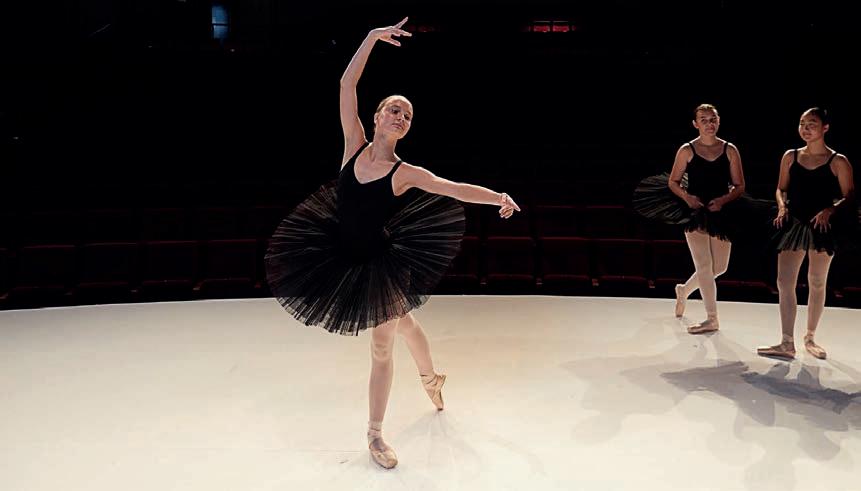

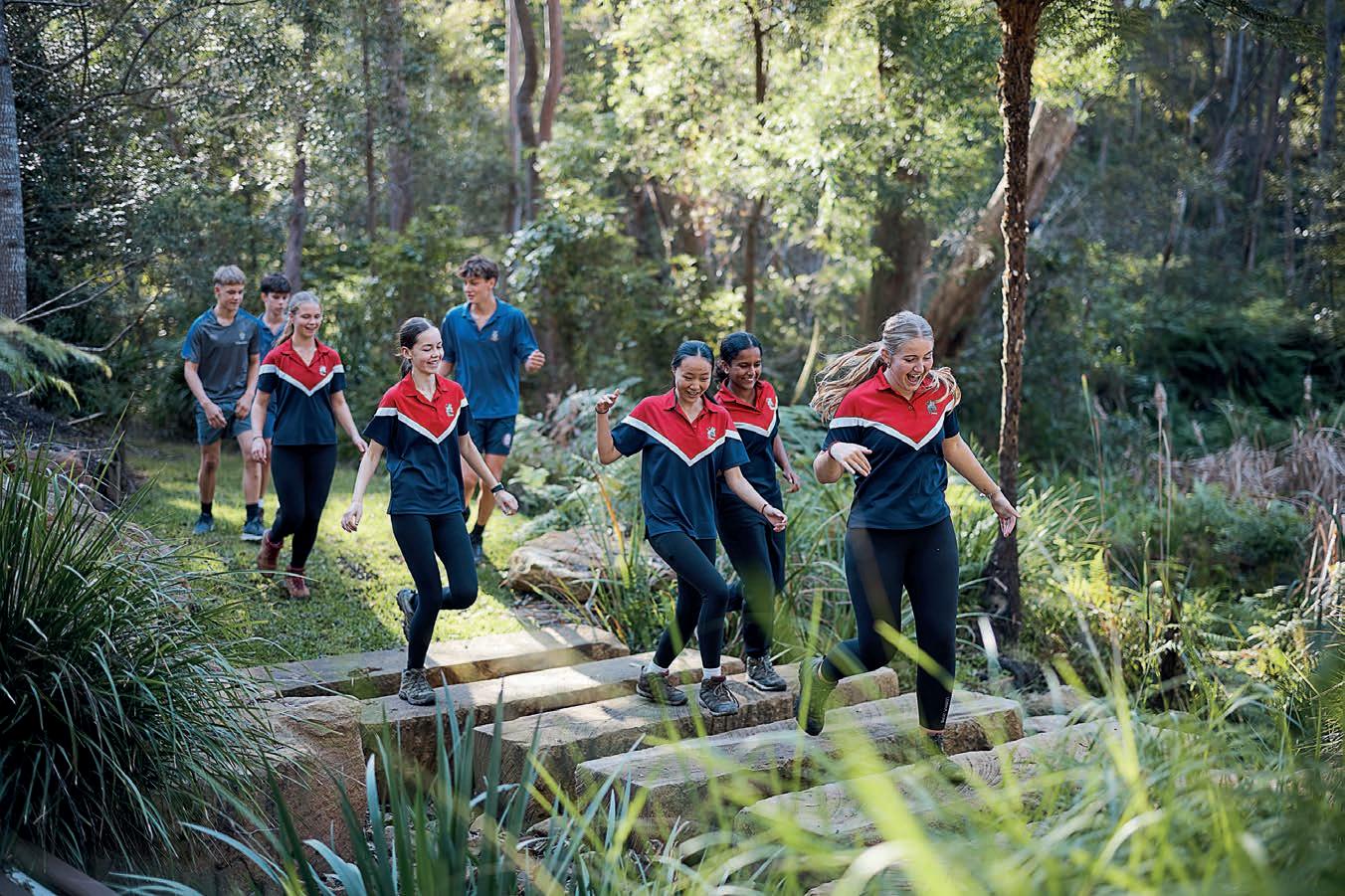
Education (IGCSE) courses, thanks to our certification as a Cambridge School in 2025.
•BioTechnology course in partnership with the Centre for Curriculum Redesign.
•Whole-school Aviation and Space Expo.
• The Junior School ‘Dream Diploma’ in Years 5 and 6.
Emotional Intelligence – We nurture courageous, resilient and determined learners who approach new challenges, such as the Year 9 Residential Program, with a sense of optimism and excitement.
Social Intelligence – Pymble fosters collaborative environments where di erent perspectives, faiths, beliefs, cultures and identities are encouraged and valued through events such as our Sharing Stories Festival.
Digital Intelligence – We are responsible and engaged global citizens who use the power of technology for good purposes. One of our most ambitious launches to date is the Pymble Wiser Phone Initiative, which gives our students in Years 4 to 9 the tools to stay safe, feel connected, and develop healthy digital habits, while safeguarding their mental and emotional health. Proudly backed by our parent community, our aim is to preserve our girls’ childhoods and make their online world a better, safer place.
Our values mean the world to our Pymble family Everything at Pymble revolves around our College values of Care, Courage, Integrity, Respect and Responsibility. Just as your family has defined values and expectations for behaviour, we have consulted
widely with our family of students, sta and parents to create a set of statements to clarify what our values mean to us, and how we expect to see them in action everyday within our community.
Care: I am kind to myself and others.
Courage: I am open to new experiences to learn and grow.
Integrity: I do the right thing even when no one is watching.
Respect: I value diversity, my worth and the worth of others.
Responsibility: I take ownership of my actions.
Part of being a values-based community is our ongoing commitment to being of service to others, and this extends way back into our history as a school of the Uniting Church in Australia. Our Junior School and Secondary students proudly support a host of local and international charities, schools and organisations in an intentional program of practical, hands-on, and age-appropriate service activities throughout their years at the College. Our wider, adult community has a big, warm and open heart that has extended to funding several refugee students from war-torn countries, and a highly successful and well-supported First Nations Program now in its 18th year. Our Pymble family is truly special.
If I had a school-aged daughter, I would be proud to send her to Pymble
As the mother of five adult children, I know what a big decision this is for you. I was fortunate to attend
an amazing school like Pymble and I know what a profound impact school can have on your life. My experience certainly has shaped my career path and guided my leadership in schools all over Australia, and now here.
Yes, we have brilliant academic sta who consistently guide and challenge our students to gain outstanding academic results. Yes, we continue to launch incredibly successful programs, such as our Mind-Body-Spirit Wellbeing Curriculum and the Pymble Drone Academy. Yes, we have a stunning main campus, an incredible outdoor education campus at Vision Valley, and world-class facilities that will support all your daughter’s passions, from the Arts to Dancing, Robotics, AFL, Rugby, Swimming, Gymnastics, Music, Performing Arts, Fencing or Filmmaking. “Yes” is a word you hear often here. The truth is, you’ll find lots of independent schools have outstanding teachers and facilities, as we do. The real clincher for me is our values-based community and our collective vision to raise compassionate and influential girls and young women who have the courage and wisdom to use their education to make the world a better place for all.
If you share our values and vision, please drop by. We’d love to meet you.

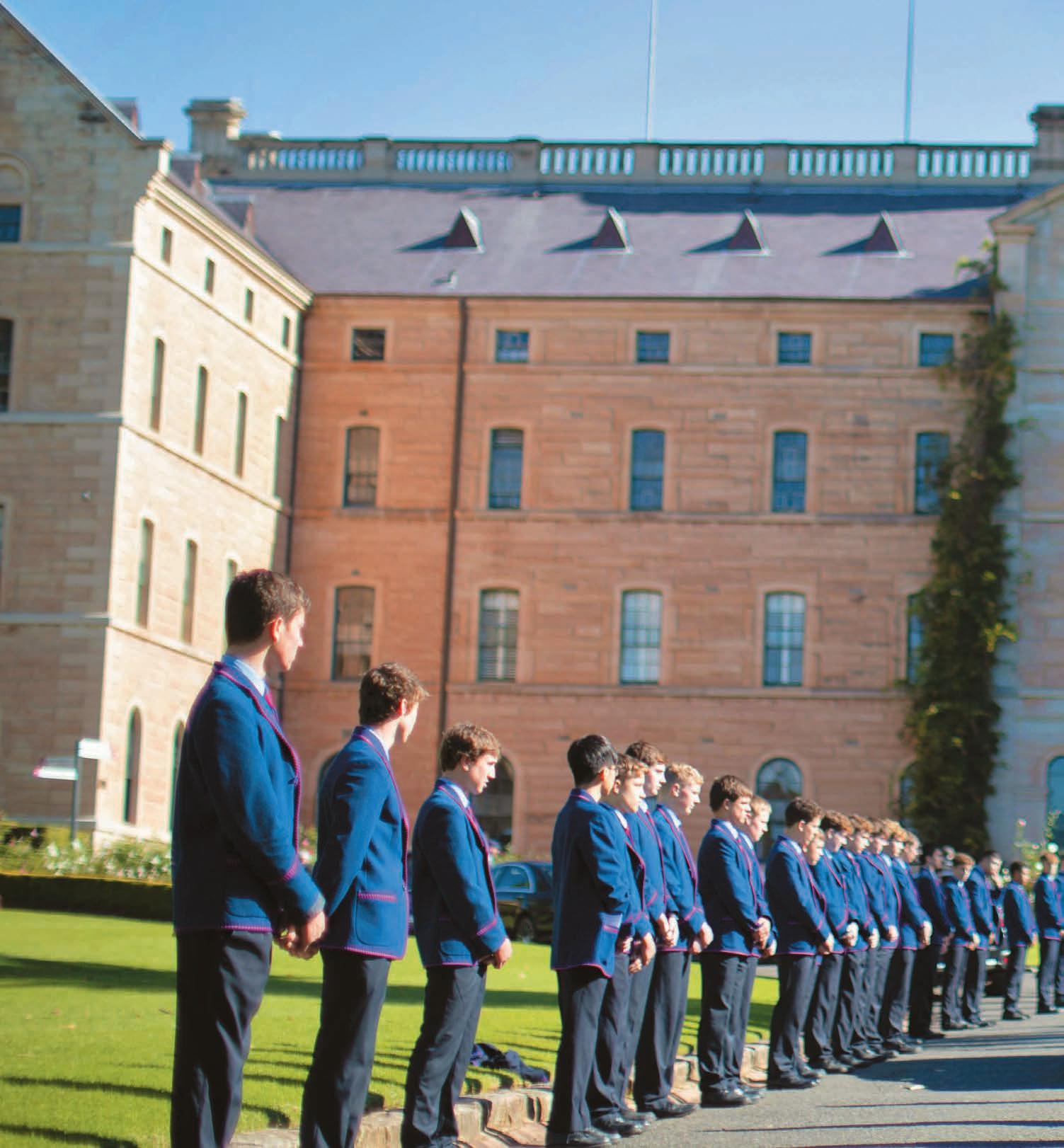
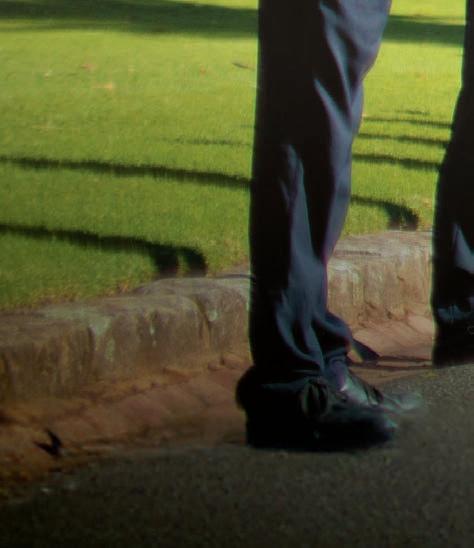
As a Catholic School in the Marist tradition, faith is the heart of St Joseph’s College. Students are called to live in the way of Mary: modestly and with profound respect. Scan to discover what else makes a Joe-Boy.
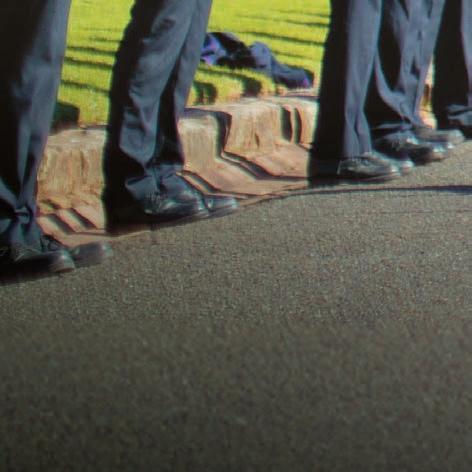
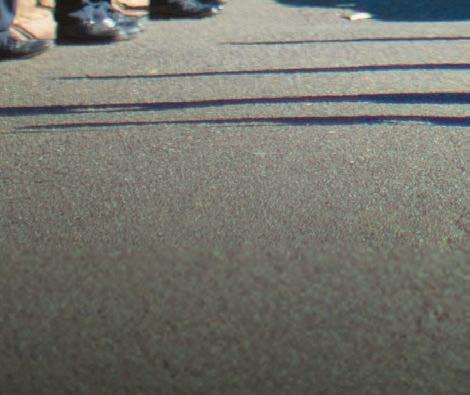

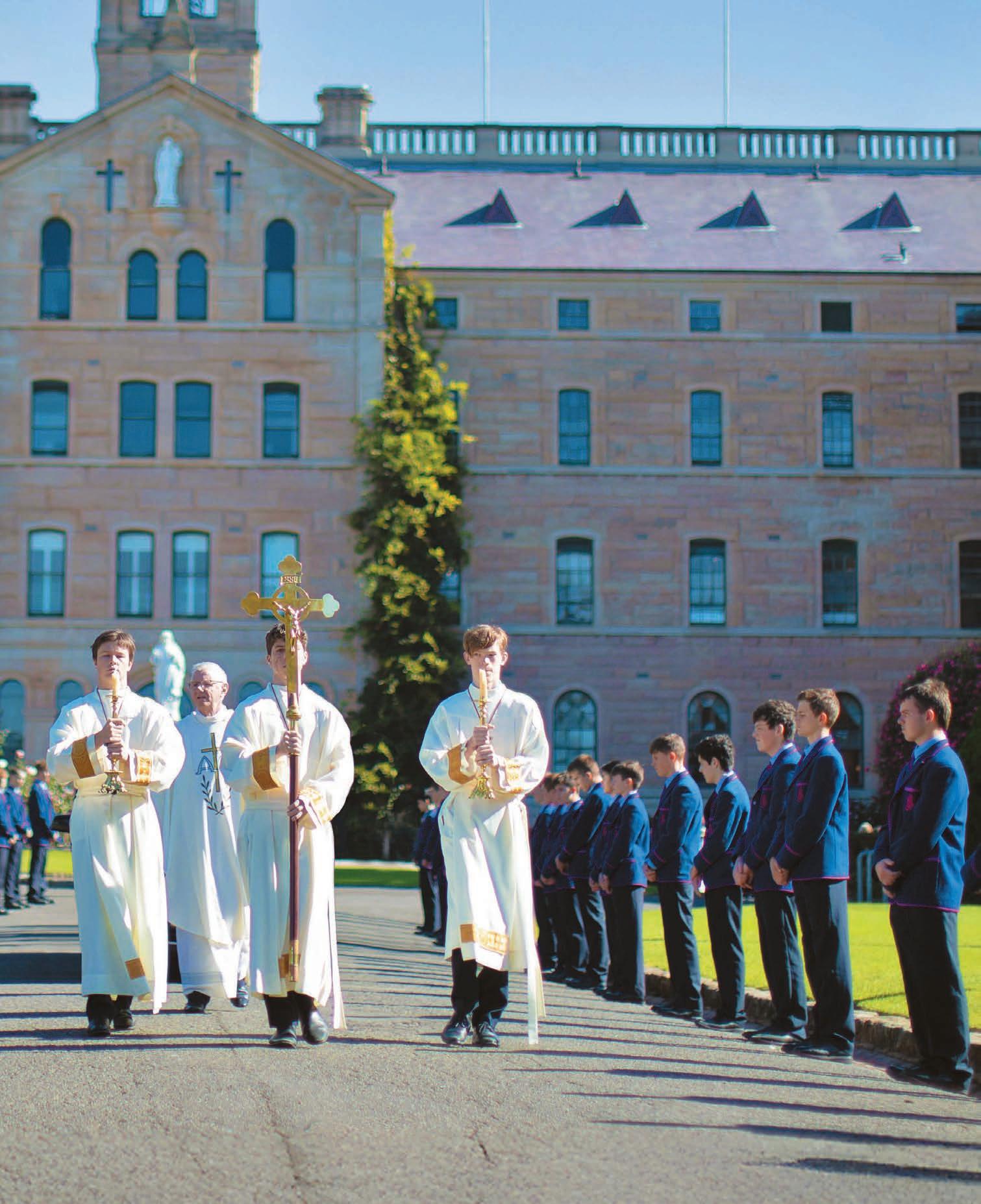
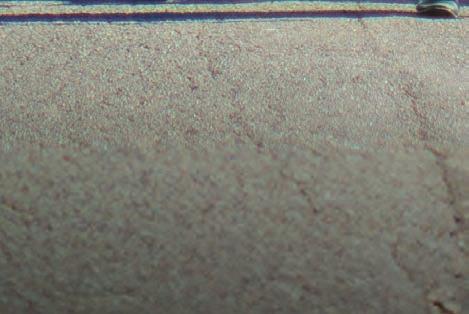





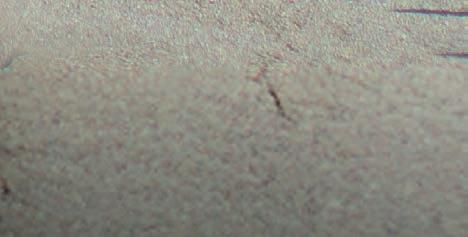


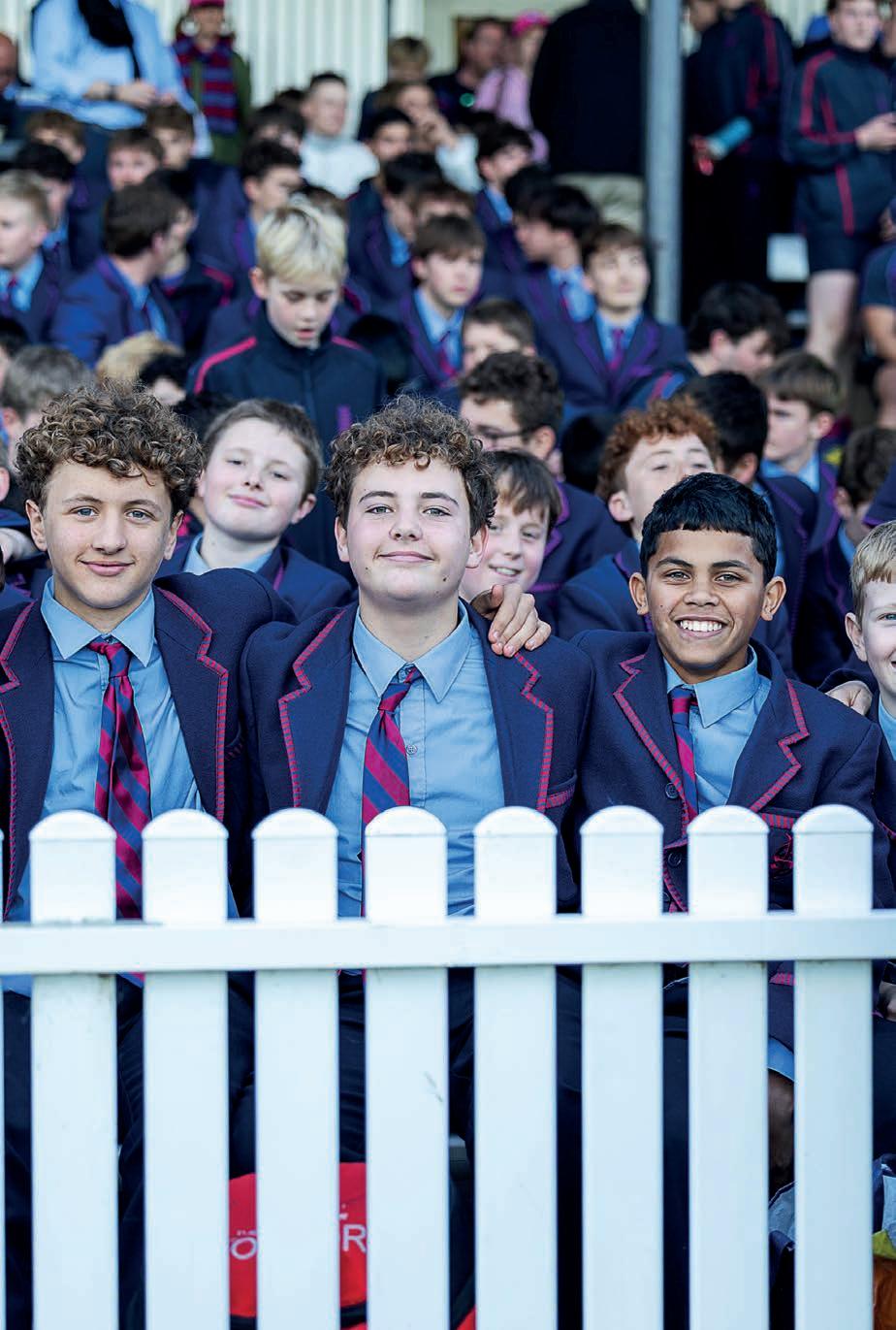
Grounded in faith and tradition, St Joseph’s College Hunters Hill inspires boys to grow into compassionate, capable young men – leaders shaped by wisdom, service, and community.
Education at St Joseph’s College Hunters Hill is deeply grounded in tradition, driving the aspirations and hopes of every Joe-Boy today. Among those at the heart of the College is Headmaster Mr Michael Blake, whose own leadership journey began in rural and regional New South Wales, before boarding school in Sydney gave him what he describes as a “life-changing” experience.
“It was at boarding school that I truly came to understand the profound and lasting impact of education and the strength of community, which inspired me to pursue a career in teaching,” reflects Mr Blake.
Today, he leads more than 1,100 students – over half of them boarders from across Australia and beyond – bringing both wisdom and vision to a community committed to the whole formation of its young men.
Learning that shapes character
At Joeys, education is about more than academic results. Teachers and leaders strive to nurture the dispositions of humility, service, vision, faith and wisdom in every graduate. This begins with learning. The Extended Day Program provides structure and support so boys can flourish, while newer initiatives such as the Learning Journal encourage younger students to reflect on their progress and take ownership of their studies.
Director of Teaching & Learning, Mr Darren Frost, explains: “Wisdom is represented in the St Joseph’s College crest by the lamp and the book, showing that wisdom is knowledge illuminated by reflection. As students write under the light of a lamp during the evening, they embody this ideal – book open, mind engaged, wisdom forming.”
Balance is central – in study, friendship and service – giving boys the capacity to lead themselves and, in time, others.
Leadership beyond the classroom
Leadership at Joeys is also lived out on the playing fields, where sport prepares boys to be fit for life. Sport teaches lessons of fitness and resilience. The 4Cs – competence, competitiveness, confidence and connectedness – are developed as boys learn
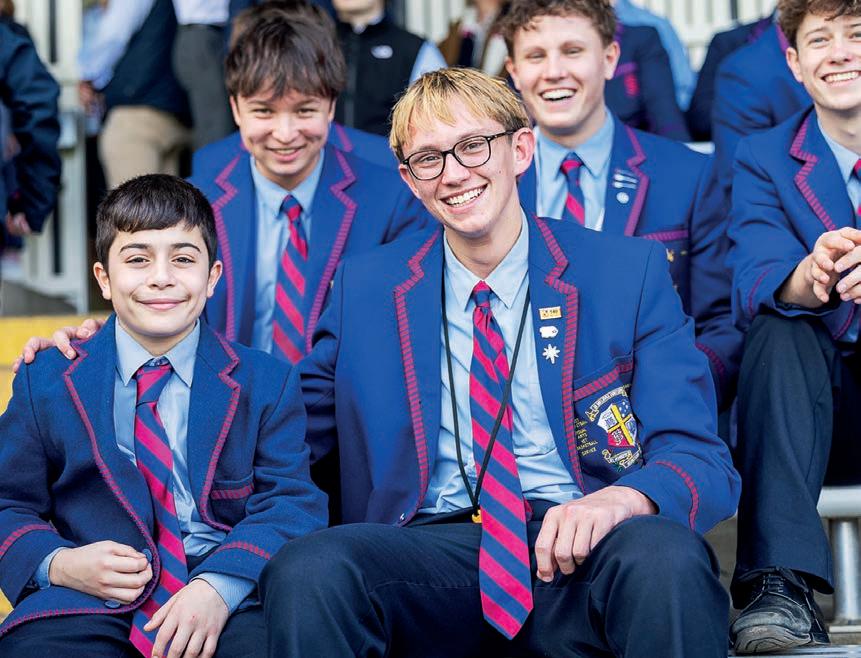
that success is measured not simply by winning, but by courage, teamwork and perseverance.
This is most evident during the winter season, when the entire school gathers to cheer from the sidelines, when our community turns up to support the boys on the football and rugby fields at The Park.
Year 7 student Max Thompson, reflecting on his first winter season, shared: “Watching the First XV play has taught me to never give up – they fight for every win, no matter the odds. When I see the team walk out at The Park, I feel proud of our school.”
First XV Captain Justice Taumoepeau (Year 12) is a role model on and o the field. Younger students, like Year 8 student Eric Ager, recognise the qualities he embodies: “I would describe Justice as courageous, and watching him play I have learned that you need bravery and good sportsmanship to have a great team.”
But it’s not all about rugby, Eric adds, “It’s important to get involved in all the opportunities Joeys provides us with.” Year 7 student Cooper Watkins agrees: “This year, I have learnt that you have to show courage to try anything that comes your way.”
At Joeys, creativity flourishes alongside academics and sport. Debating, robotics, photography, music and drama all enrich student life. More than 20 ensembles cater for musicians of all abilities, while the Drama department o ers students a challenging but supportive environment to explore their talents. This year’s reimagined production of Shakespeare’s Twelfth Night at the Concourse Theatre Chatswood was a vivid example of Joeys’ creative spirit. Head of Drama, Mr Pat O’Shea, explains: “The instrument in Drama is the student. We cultivate that with courage and support. The tenacity of the Joe-
Boys’ spirit is centre stage when quick thinking and partnership culminate in a seamless performance.”
Student artwork is displayed across the College, and annual showcases of design, art and technology highlight the creativity, hard work and ingenuity of Joe-Boys.
Faith is the foundation of a Joeys education. Daily Mentor Groups, immersions to Timor-Leste, Tanzania and the Kimberley, outreach to aged care residents, and partnerships with schools for children with diverse needs, remind Joe-Boys that leadership is about service. From dorm seniors and acolytes to Game Changers and Cook4Good service initiatives, boys learn that leadership is not about status but about compassion and responsibility – becoming men with strong minds and gentle hearts.
The graduate’s call
Mr Blake sums up his vision for every Joeys graduate: “To be a true leader, they must be unwavering in their commitment to the common good. They must stand firm when faced with adversity – not just when it’s convenient or comfortable. It’s easy to act with integrity when conditions are favourable – in the calm waters. But true character is tested in the storm.”
Each year at graduation, he poses a question to the boys: What will you do with the privilege of this education?
“Your success will not be measured by wealth, status or accolades. True success is found in the lives you touch, the good you bring to the world, and the contribution you make to the community.”
A Joeys education can take a boy far. The rest is up to the man he becomes.
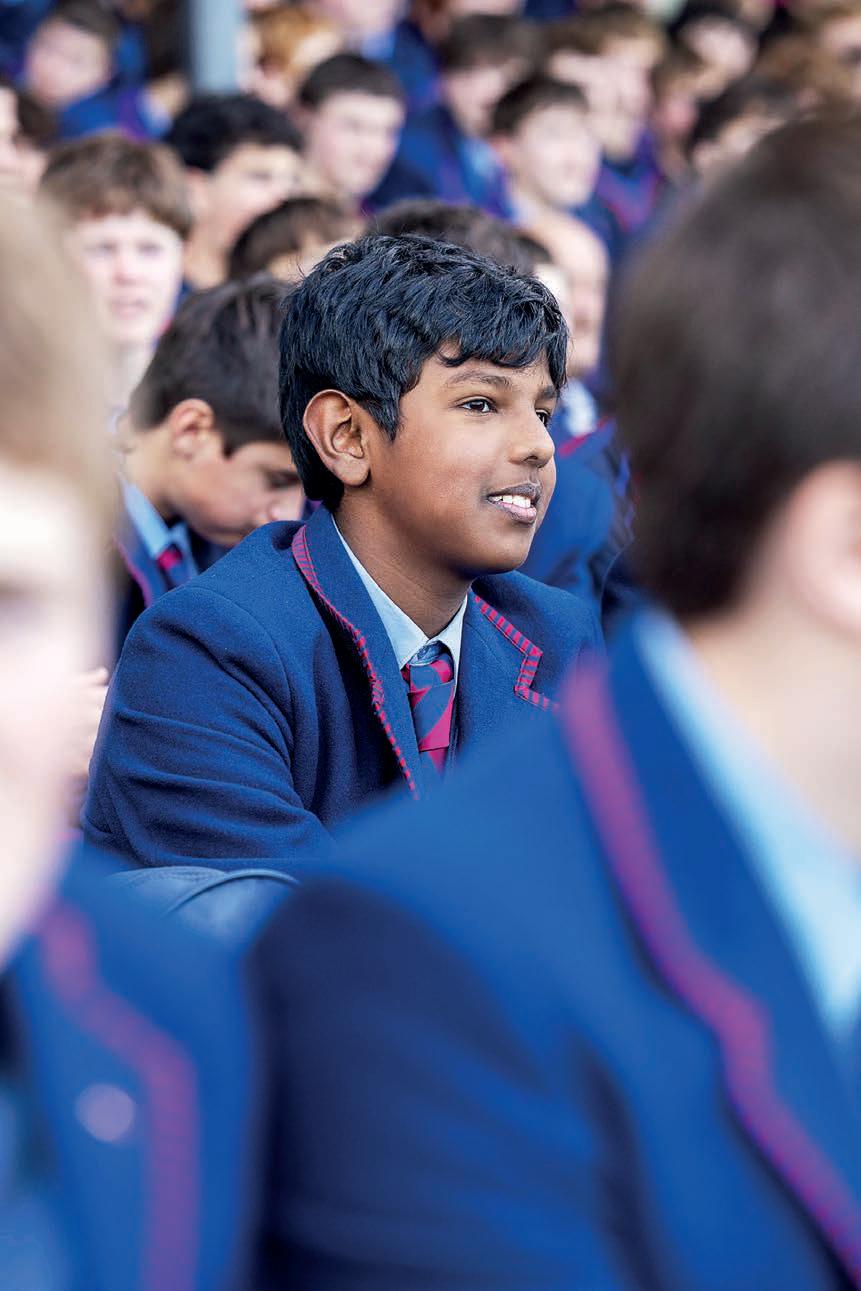
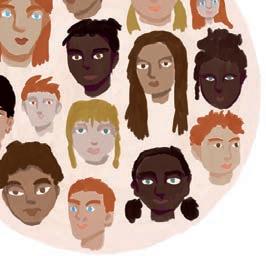
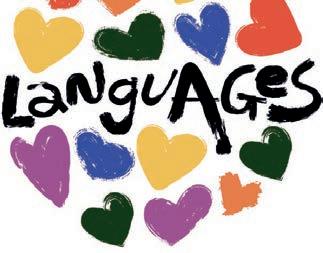
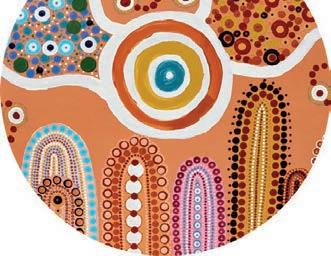
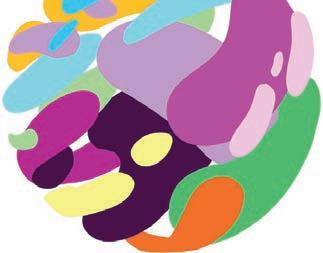




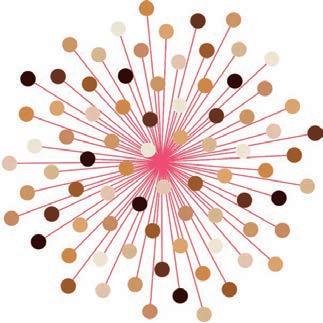


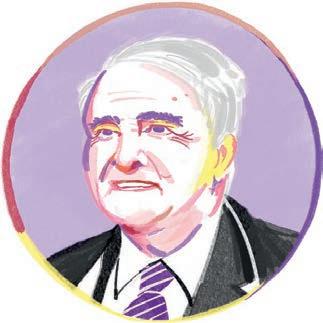


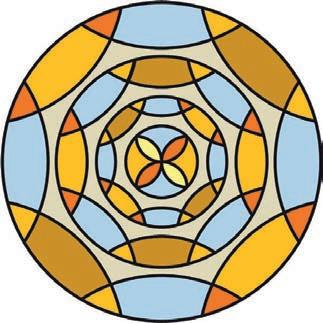

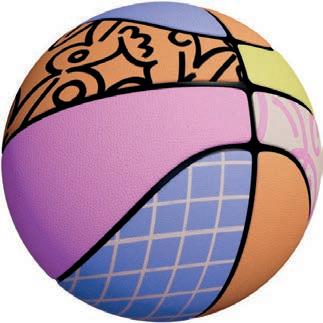



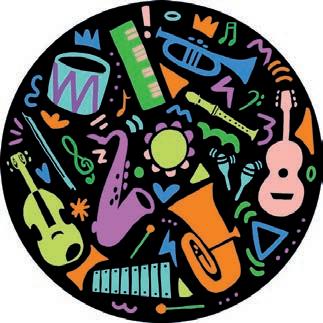
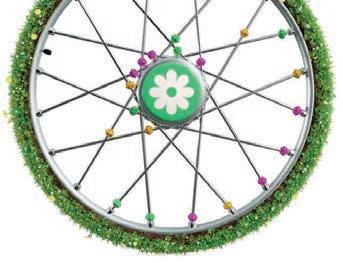
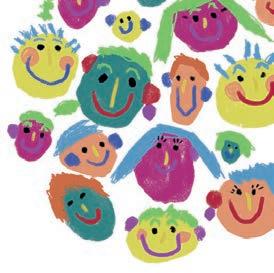
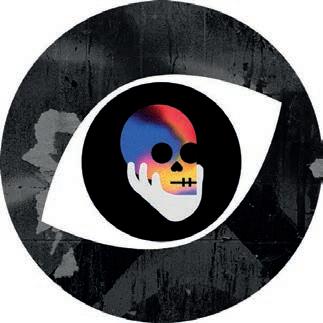

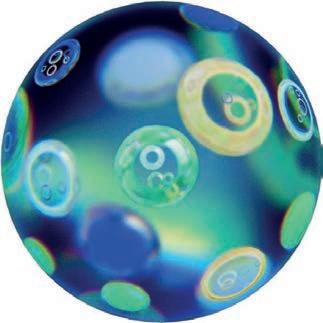
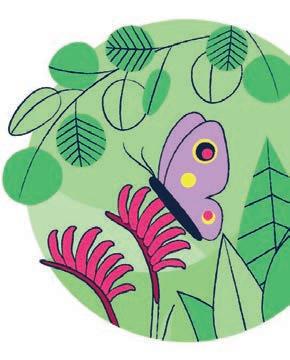

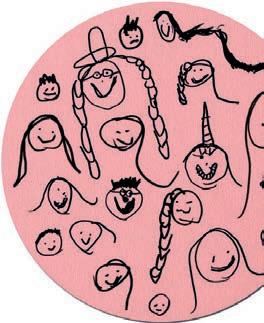

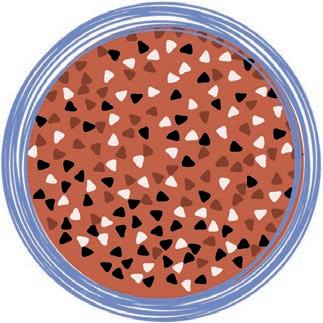
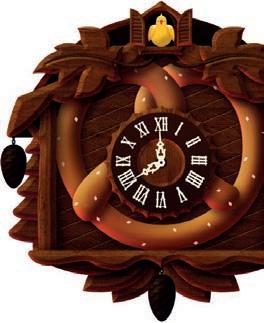

The Ultimo Series connects students and parents with leading experts, fostering curiosity, engagement and real-world insights across topics from AI to mental health and climate change.
International Grammar School (IGS) in Ultimo, Sydney, is internationally recognised for its language programs and academic excellence, but it also o ers something less conventional: The Ultimo Series, a lecture program designed to bring the broader world into the school.
Launched in 2024, the series grew from the school’s previous lecture initiatives, which primarily focused on wellbeing and parent guidance, into a platform that invites thought leaders, researchers, and innovators to share their expertise with parents,
carers, teachers, students, prospective families, alumni and the broader school community.
The name, The Ultimo Series, reflects the school’s inner-city location, historically a former industrial district, now a hub of cultural and educational activity. Surrounded by institutions such as the University of Sydney, University of Technology Sydney, and Notre Dame, IGS leverages its urban environment to access a rich network of academics and professionals. This unique setting allows the school to provide students and families with exposure to current ideas and debates in a broad range of fields.
Deputy Principal Mr Thom Marchbank, who oversees the series, explains that the initiative was shaped by both location and community.
“We realised there was an opportunity to engage researchers, thought leaders and experts not just for parents and carers, but for our students too, to showcase possible career pathways and broaden their horizons,” he says.
By inviting speakers from diverse industries, from mental health to climate science, and from AI research to social work, the series encourages the school community to think critically about issues that are shaping the modern world.
Sessions are held in the Renaissance Centre, an
intimate lecture venue within the school designed to foster discussion and engagement. Evening scheduling allows parents to attend after work, while students benefit from exposure to ideas and experts beyond the classroom.
Topics are carefully chosen to reflect contemporary concerns, with the aim of appealing to a broad audience while maintaining academic rigor. Past sessions have explored adolescent mental health, climate change, artificial intelligence, and digital technology, ensuring students encounter both challenges and opportunities in the world around them.
Student leadership and community connection
One of the most distinctive aspects of The Ultimo Series is the active involvement of students.
Rather than simply attending, student leaders play an integral role in the events. They are invited to sessions, introduce speakers, take notes and provide summaries of the key insights, encouraging both comprehension and reflection. This approach not only develops public speaking and leadership skills but also allows students to engage directly with experts and consider potential career pathways in real-world contexts.

Mr Marchbank recounts an example that demonstrates the program’s unexpected impact.
One STEAM-focused student attended a lecture on AI delivered by Professor Amanda Third, a long-time researcher in technology and child development. Inspired by the session, the student has since connected with Professor Third for further engagement beyond school.
“We hadn’t anticipated that kind of outcome,” Mr Marchbank says, “but it shows the value of providing students with access to real experts and realworld insights.”
Feedback from parents, carers, students and sta has been overwhelmingly positive. Attendance varies depending on the topic and speaker, ranging from intimate gatherings of around 40 to larger groups approaching 120 participants.
Particularly impactful sessions include Dr Sandra Peter’s presentation on the topic ‘Leading the future: Skills our children need in a post-AI 21st century’. Drawing on decades of professional experience, her lecture drew the series largest crowd reaching nearcapacity in the Renaissance Centre. The popularity of her lecture underscores the series’ ability to attract high-calibre speakers who can captivate parents, carers and students.
“Her session really struck a chord,” says Mr Marchbank. “People really connected with her, and with her a irming emphasis on the human at the heart of technology use.”
The series also supports sta professional development. Lectures on topics like mental health, neurodiversity and technology use help teachers stay informed about contemporary issues a ecting students. By integrating these sessions into broader school life, The Ultimo Series strengthens the connection between classroom learning and real-world application, benefiting the entire IGS community.
to community needs and societal trends. Lectures in 2025 included a session led by Professor Adam Guastella on strategies for helping neurodiverse children thrive in schools. This topic reflects IGS’s commitment to inclusive education and its recognition of the growing importance of accommodating diverse learning needs. The session also o ered professional development opportunities for sta and provided parents and carers with insights into supporting children with neurodiverse profiles.
Mr Marchbank emphasises that the series is not solely about delivering information; it is about creating meaningful interactions. Student leaders, parents, carers and sta are encouraged to engage with speakers during question-and-answer sessions, and discussions often continue informally after the event. This collaborative approach nurtures critical
thinking, curiosity and active learning, reinforcing the
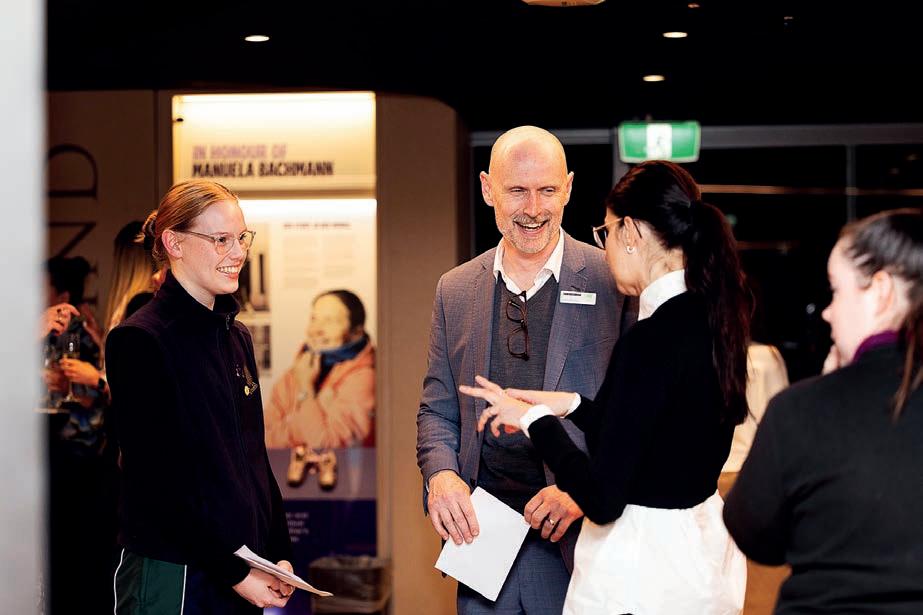
Previous lectures have sparked innovative ideas and discussions that extend beyond the events themselves. Professor Third’s session on children and technology, for example, provided evidencebased insights that helped sta , parents and carers reconsider common narratives about device use.
“She presented a lot of research in a really expansive way,” Mr Marchbank says. “It was a mythbusting session that has had real practical impact for both parents and teachers.”
The Ultimo Series also provides a window into career opportunities for students. By inviting guest speakers from media, film, academia and research, the school exposes students to professional pathways they might not otherwise encounter. For students interested in STEAM, social sciences, or the arts, the lectures provide inspiration and a sense of connection to future possibilities.
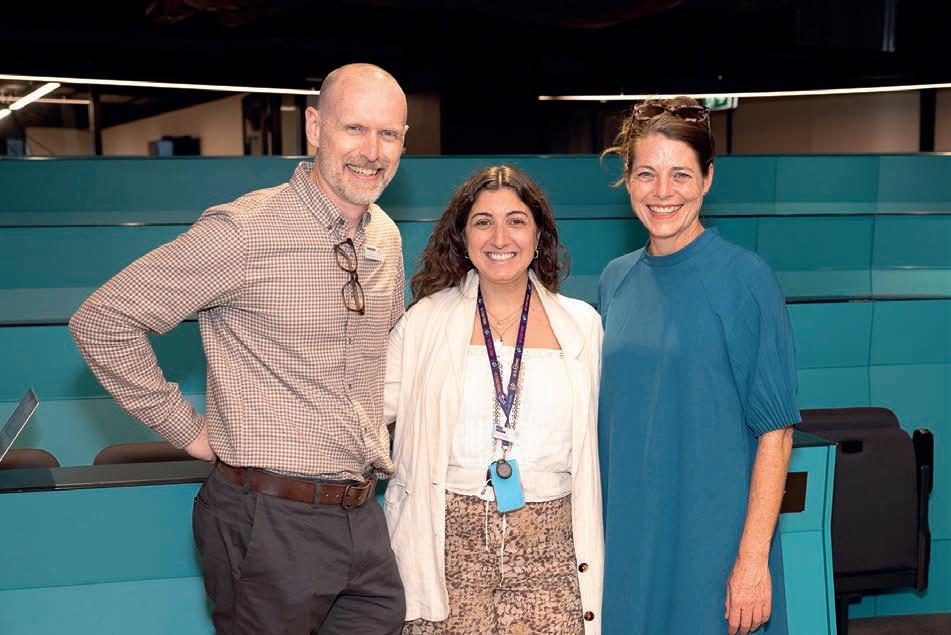
Looking ahead to 2026 and beyond, IGS plans to continue The Ultimo Series while refining its format to maximise participation and engagement. The school carefully selects topics that are relevant to the community, including emerging issues such as artificial intelligence, climate change and social innovation. Community feedback plays a key role in shaping future lectures.
Mr Marchbank underscores the broader educational philosophy underpinning the series.
“The Ultimo Series is about giving students, parents and carers a space to explore ideas together, to connect with experts, and to see how learning can extend far beyond the classroom.”
In doing so, the series complements IGS’s rigorous academic programs, fostering well-rounded, informed students prepared for the challenges and opportunities of the modern world.
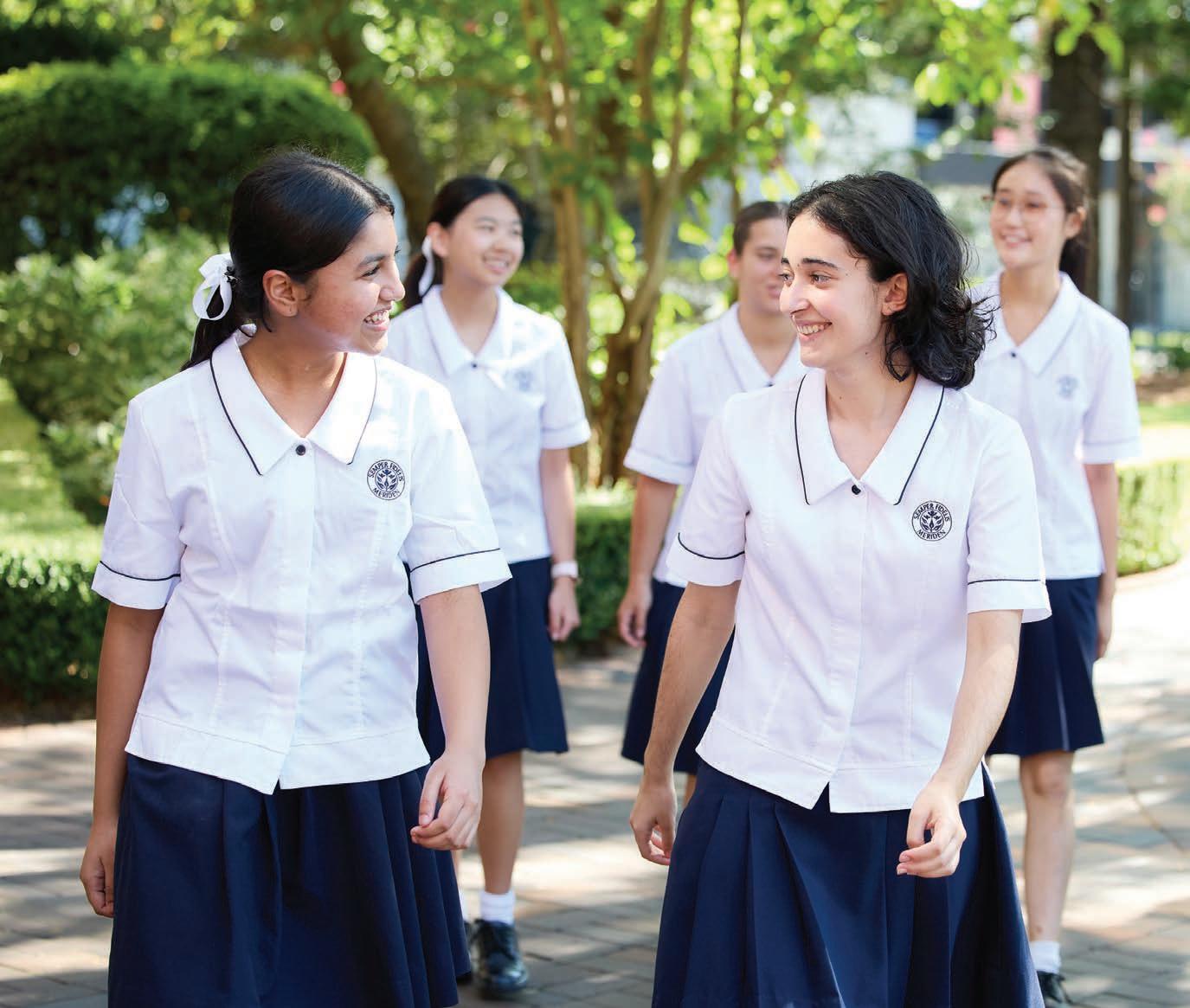
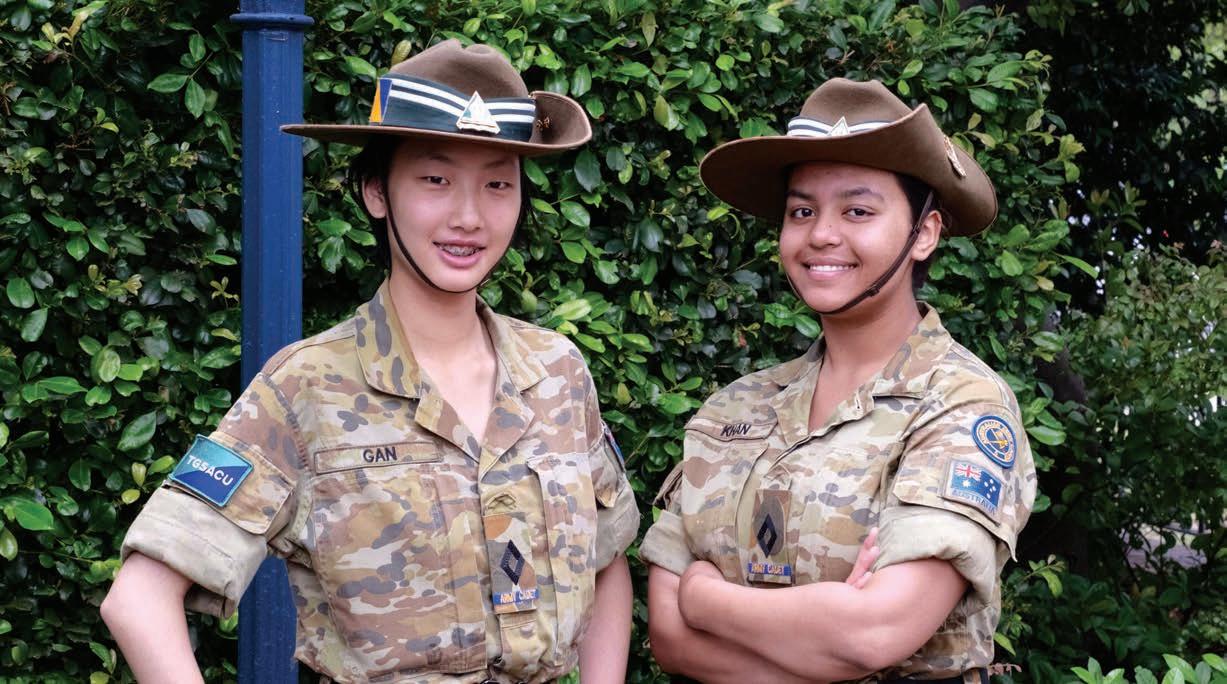

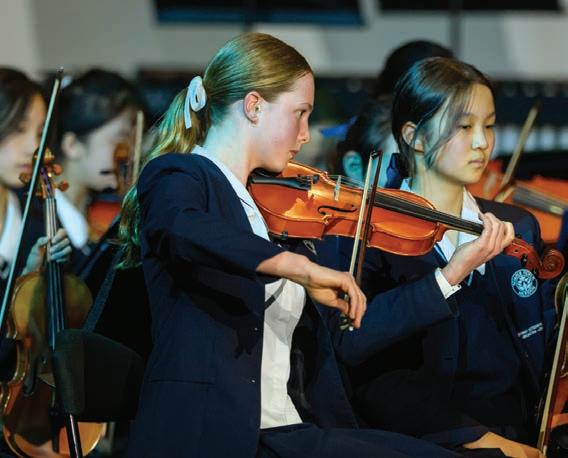
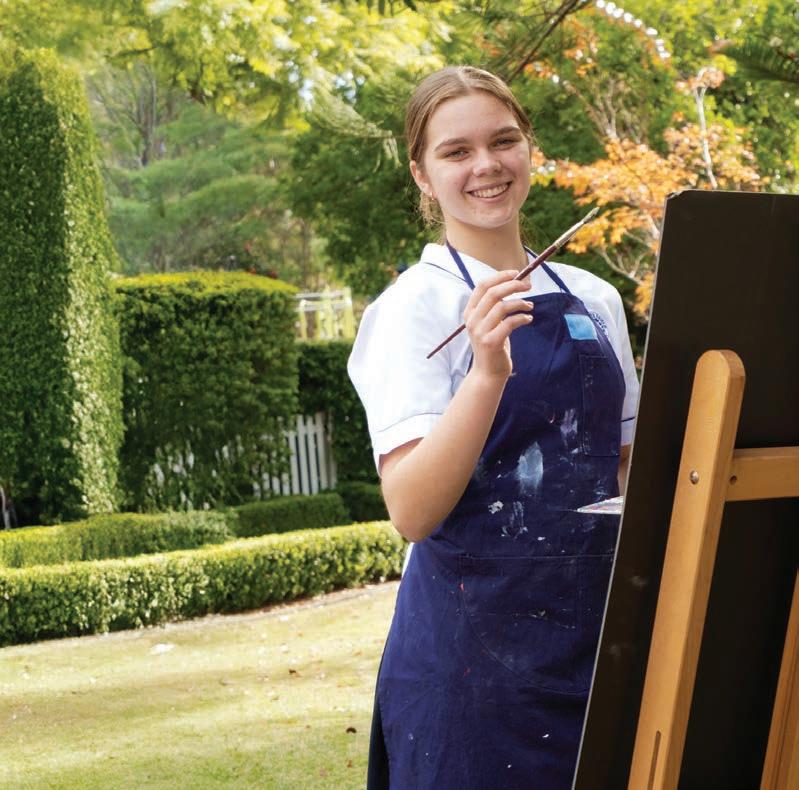



A Meriden School graduate has earned a full scholarship to New York’s prestigious Juilliard School, reflecting the school’s strong tradition of nurturing musical excellence and ambition.
Teresa Yang, a 2024 graduate of Meriden School in Strathfield, is set to take the next step in her music career at the prestigious Juilliard School, having been awarded a full-tuition scholarship to the world-renowned performing arts institution.
From an early age, Teresa knew that the violin would be at the centre of her life and career. She credits her time at Meriden for preparing her not only as a musician but also for life beyond school.
“I have learned so much as a student and grown
Located in New York city, The Juilliard School is one of the most distinguished performing arts academies in the world. Each year, around 2,000 of the world’s brightest young artists apply for only 150 available undergraduate positions. Due to its popularity, the violin is one of the most competitive instruments for admission to Julliard.
Teresa travelled to the US in March this year for a live audition and interview. In April, she received the news that she had been accepted. Teresa is taking
“I’m really excited to meet new people and join a community of artists of such high calibre. I am looking forward to all of it: orchestras, chamber music, meeting new teachers and, of course, other students as well. I’ve heard it’s like a big family at Juilliard!”
Meriden’s Dean of Music (Pre-Kindergarten –Year 12), Ms Jodie Spooner-Ryan, oversaw much of Teresa’s development both musically and personally during her educational journey which began at Meriden in Year 7. She says that Teresa’s impact on the Performing Arts Department cannot
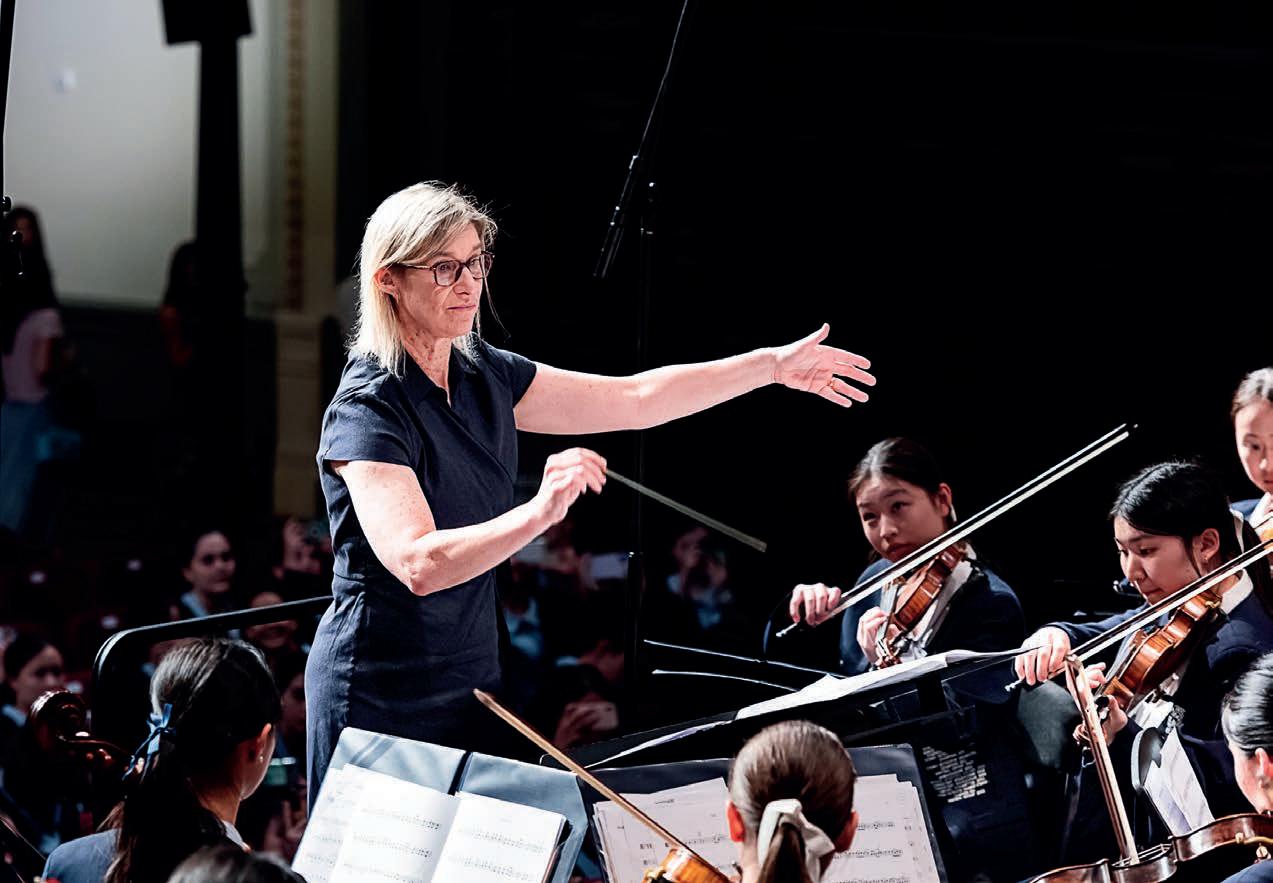
“Teresa always embraced everything musical at Meriden,” Ms Spooner-Ryan said.
“She was a very good role model to the younger students in rehearsal; always focused, always committed, always wanting the best out of the music, and this set the bar high for other students. There are many students who looked up to her,” Ms
In her final years at Meriden, Teresa began to consider her options for university.
“Of course, there was a significant repertoire to build for my applications, but that was only one part of the process. I had to put together other documents like essays and letters of recommendation. The school gave me a lot of support in that way,” she said.
Meriden’s Head of Tertiary Pathways, Mr Ryan Richards, says that prestigious schools such as Juilliard consider not only the talent and performance level of musicians like Teresa, but their character and personal development as well. He says that the sta who gave support through letters of recommendation did so “with ease”, given Teresa’s positivity, humility and contribution to
Teresa has recently travelled on tour with the Australian Youth Orchestra, performing at venues across Europe, including the Concertgebouw in Amsterdam and the Musikverein in Vienna.
Teresa flew back to the US earlier this year and has begun a Bachelor of Music Performance, living on campus and joining the community of other exceptional artists from all over the world.
A tradition of excellence Meriden’s music program is a vibrant part of school life. Whether nurturing beginners or guiding advanced performers, the Music sta at Meriden play a vital role in helping students find their voice, grow in confidence, and connect through the shared joy of music.
From Pre-Kindergarten through to Year 12, music is taught by specialist educators who inspire students to explore their musical potential.
In the Junior School years (Pre-Kindergarten to Year 6), there is a focus on singing, with the language of music notation presented through a variety of listening, composition and performance opportunities.
The Junior School’s instrumental program is an important component of classroom Music lessons and facilitates an advanced coverage of the curriculum.
The instrumental program is taught in Year 3 with an array of instruments including violin, viola, cello, trumpet, trombone, euphonium, oboe, clarinet, saxophone and French horn, and in Year 5 with a focus on larger instruments such as double bass, bassoon, tuba, bass guitar and percussion. Performance ensembles for students who have progressed on an instrument are also o ered alongside the curriculum to encourage collaborative music making.
In the Senior School, all students in Years 7 and 8 study Music. The variety of topics covered ranges from Instruments of the Orchestra through to Film Music and Rock Music, with a focus on notation and the development of listening skills.
In Years 9 and 10, the Music elective course centres around a contextual focus and the development of
aural skills, composition and performance techniques. Students perform regularly with an accompanist and are supported in composition by a specialist composition teacher. Topics include Music for Small Ensembles, Opera, Musical Theatre, Jazz and Music of the Twentieth Century.
Meriden o ers all HSC Music courses including Music 1, Music 2 and Music Extension. The components of aural, musicology, composition and performance are taught by specialists in each area and students are encouraged to develop their skills in all components for a holistic music education.
beyond the classroom
Music at Meriden extends well beyond the curriculum. Both the Junior School and Senior School have a

broad o ering of cocurricular music ensembles, which cater to students of all ability levels.
Musical performances are held throughout the year, including concerts for large ensembles, recitals for soloists and smaller groups, twilight concerts for those taking individual instrumental or vocal tuition, and performances at assemblies and special events. Meriden musicians also take part in combined schools and community performances.
Throughout the year, students benefit from the expertise of visiting professional musicians who lead workshops, masterclasses and performances. These experiences o er valuable inspiration and insight into the world of professional music-making.
For students with outstanding musical talent, Meriden o ers the Amadeus Program, designed to support and accelerate the development of elite young musicians from Years 5 to 12. Entry to the program is by invitation, recognising students who demonstrate high-level musical engagement both within and beyond the school. The Amadeus Program provides tailored support and exciting performance opportunities.

At The McDonald College, the true magic happens offstage – where performing arts students learn through collaboration, creativity, and courageous experimentation beyond the spotlight.
A stage is just the beginning
At The McDonald College, performance is not an extracurricular pursuit – it’s the foundation on which the entire learning experience is built. Students spend part of each day immersed in their chosen performance stream, from dance and acting to music or elite tennis, while maintaining a full academic program.
This integrated model allows students to see the connections between creative expression and intellectual inquiry. A dancer who studies physics better understands movement and force; a drama student studying history brings empathy and nuance to re-creating past worlds. The outcome is a learning experience that develops not only technical skill, but also discipline, critical thinking, and resilience – skills that extend far beyond the stage.
Principal Ms Maxine Kohler explains, “At The McDonald College, we believe that every child deserves the opportunity to discover their unique voice – whether that voice is expressed through the arts, through academics, or through the courage to try something new. Our mission is to nurture the whole individual so that our students leave us as confident, compassionate, and creative citizens of the world.”
Rooting imagination in early years
In the Junior School, imagination and innovation take centre stage. In one class, students “interviewed” a virtual stick insect named Spinella – powered by an AI simulation built by sta . What might have seemed like a simple experiment became a portal into storytelling, science, and curiosity. These experiences show how The McDonald College nurtures creativity alongside cognitive growth, helping children understand that technology and art can coexist to fuel new ways of thinking.
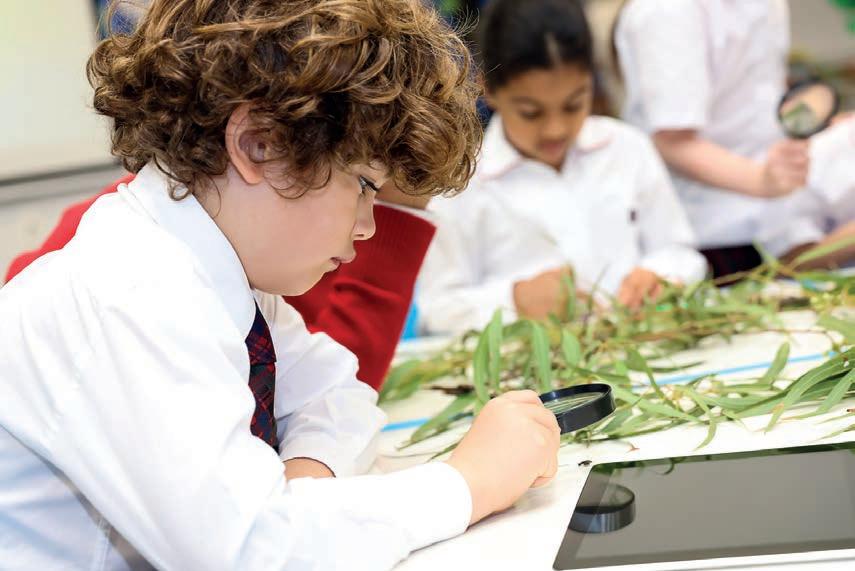
Innovation with heart
That spirit of curiosity extends through the senior years, where students apply creativity to solving real-world problems. Year 12 student Amy exemplified this with her inclusive footwear design, which earned her a nomination for SHAPE, the annual exhibition presented by the NSW Education Standards Authority (NESA).
Amy’s project was inspired by her brother’s experience with overpronation and the fine motor challenges of putting on traditional sneakers. In response, she designed a pair of shoes that are both supportive and accessible for people facing similar di iculties. The design balances aesthetics, ergonomics, and empathy – reflecting how innovation at The McDonald College is driven by both creativity and care.
Looking forward:
creative leadership in a changing world
The College’s values – Passion, Humility, Commitment, Honour – are evident in every corner of campus. Whether performing on stage, competing in sport, or designing for social impact, students learn that excellence is about more than achievement – it’s about empathy, collaboration, and purpose.
In an era shaped by AI, digital media, and global collaboration, The McDonald College’s challenge – and opportunity – is to prepare creatives for a
rapidly evolving world. Its students are not only performers but thinkers, innovators, and leaders.
Imagine graduates who choreograph immersive dance works for virtual stages, compose interactive soundscapes, or lead cross-disciplinary collaborations that merge science, technology, and art. At The McDonald College, these are not distant dreams – they are the natural extension of a philosophy that treats creativity as a way of understanding the world.
Learning for life
Performance is a launching pad, not the finishing line. At The McDonald College, students are not just preparing for the next show – they are being shaped as imaginative, thoughtful leaders in a world where performance, design, and innovation intersect.
For families seeking a school that honours artistic ambition while cultivating academic excellence and character, The McDonald College o ers a rare harmony of passion and purpose – a place where every student learns not only how to shine in the spotlight, but how to illuminate the world beyond it.

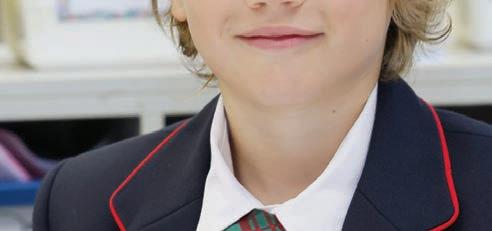
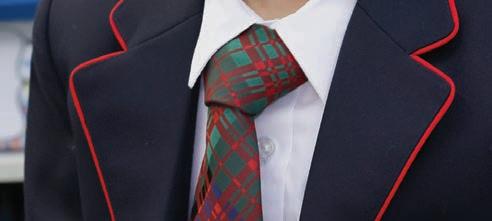

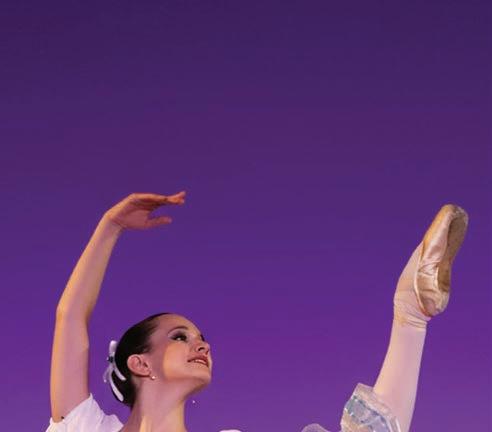
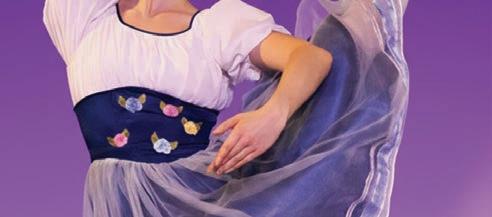
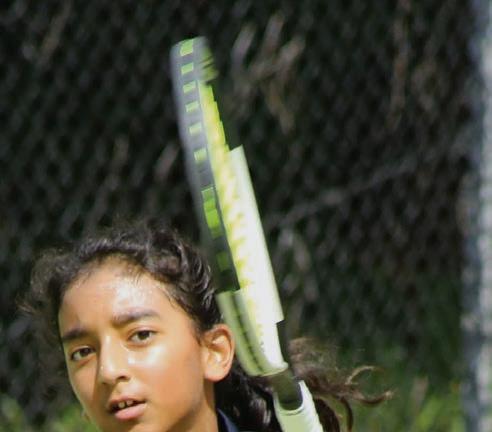
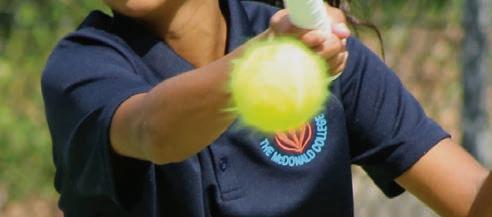
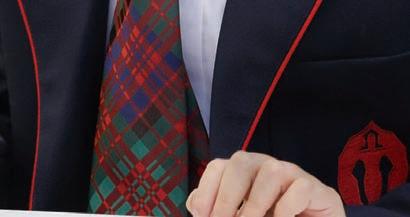

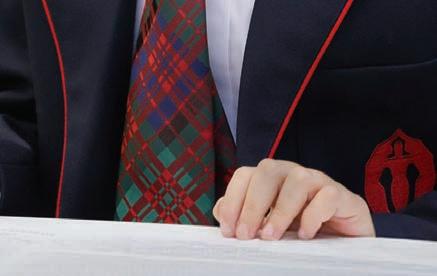

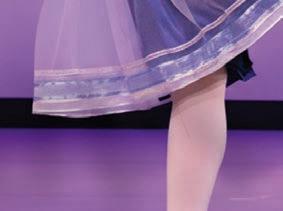
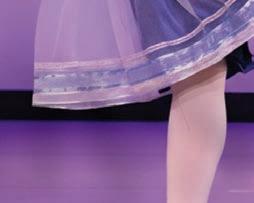

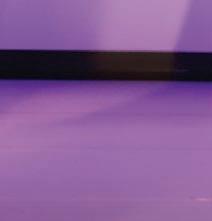

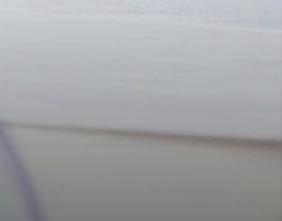

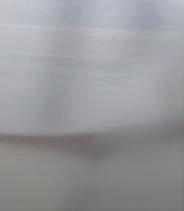



The only school of its kind
The McDonald College is an independent, non-denominational, co-educational Kindergarten –Year 12 school. We specialise in performing arts and elite tennis, with an equal focus on academic rigour.



Acting / Classical Ballet / Dance /Music
Musical Theatre / Technical Production
Elite Tennis
Enrolling now
For more information on our Open Days and Auditions, visit
mcdonald.nsw.edu.au
Margery Evans, Chief Executive of the Association of
(AISNSW), discusses the diversity of Independent schools across NSW and explains how parents are increasingly opting for schools which align with their values and aspirations.
Independent schools now educate almost one in five NSW students, a significant contrast to just 13 per cent 20 years ago. This shift has occurred as families look for more diversity, a ordability and a values-based approach to their child’s learning.
AISNSW, the peak body for Independent schools across NSW, has mapped these enrolment trends by incorporating o icial ACARA and ABS data with its own research and analysis. In its inaugural Enrolment Dynamics report, AISNSW reveals how families and Independent schools have reshaped the education landscape so significantly.
In 2024, the Independent sector in NSW comprised 430 schools operating across 573 campuses, educating 245,452 full-time equivalent students – almost 20 per cent of all the state’s learners.
Supporting those students were 33,760 fulltime equivalent teaching and non-teaching sta (the sector employs 22 per cent of all NSW teaching sta ).
The Catholic school system served about 231,000 students while government schools educated approximately 780,000.
Since 2000, NSW schools have added 160,000 students; more than 100,000 of those students were enrolled in Independent schools – almost two-thirds of the total growth.
Over the past five years, student growth has averaged 3.3 per cent each year. Over the same period, the Catholic school system grew by an average 1.2 per cent yearly, while the government sector registered an average decline of 0.6 per cent annually.
Remarkably, NSW Independent schools have added more students since 2019 (36,000) than every state and territory government school sector combined (23,189).
The Independent sector’s growth story is rooted in diversity; there is a school for every family.
With 15 di erent faith traditions represented alongside 129 secular schools grounded in various philosophical approaches, families can find an
environment that aligns with their values and aspirations. There are 67 specialist campuses catering solely to 6,500 students with additional needs, reflecting the sector’s commitment to inclusive and specialised learning.
Religious a iliations remain strong drivers of enrolments with Anglican schools enrolling 27 per cent of all Independent school students, followed by Independent Catholic (18 per cent), Christian (16 per cent), secular (12 per cent) and Islamic (9 per cent) schools. Those five a iliations accounted for 87 per cent of the sector’s enrolment growth in 2024.
Nearly half of all Independent schools operate as K–12 campuses, compared with just 2-3 per cent in other school sectors. K–12 schools appeal to many families looking for consistency and certainty
40 Independent schools o er the International Baccalaureate, adding further appeal for families seeking global curricula opportunities for their child.
Fees and accessibility
One of the most misunderstood aspects of Independent schooling is cost to parents; the median fee in NSW Independent schools is just under $6,000 per student, less than onethird of the average cost of educating a child nationally ($20,444).
There are more Independent schools charging under $2,000 per year than there are charging over $20,000 annually. This fee range underscores the sector’s accessibility for low-to-middle income families and challenges the commonly held notion
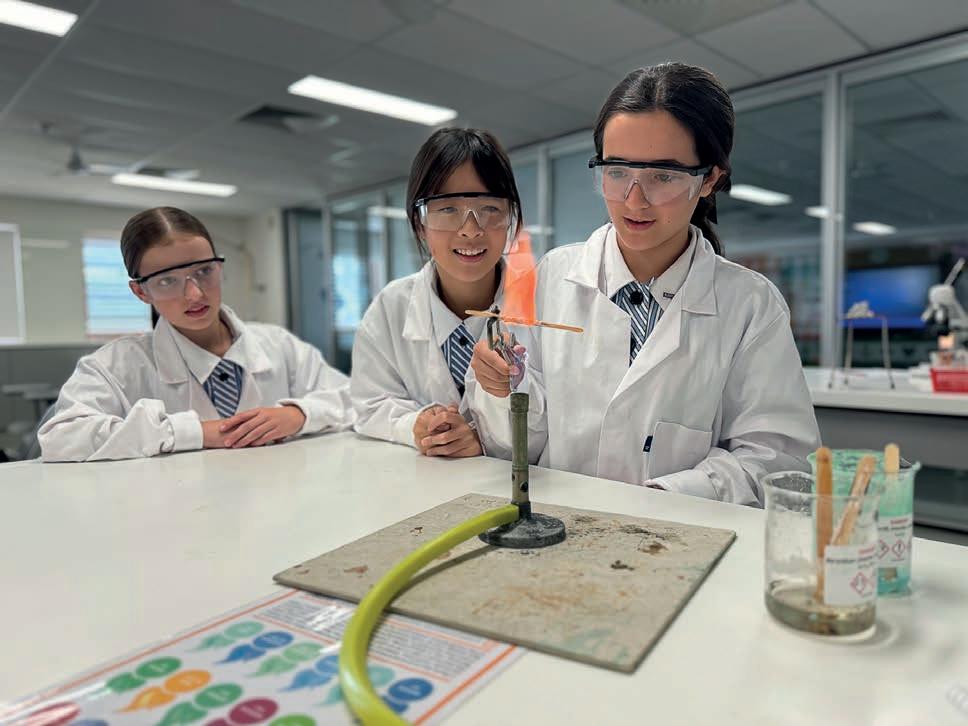
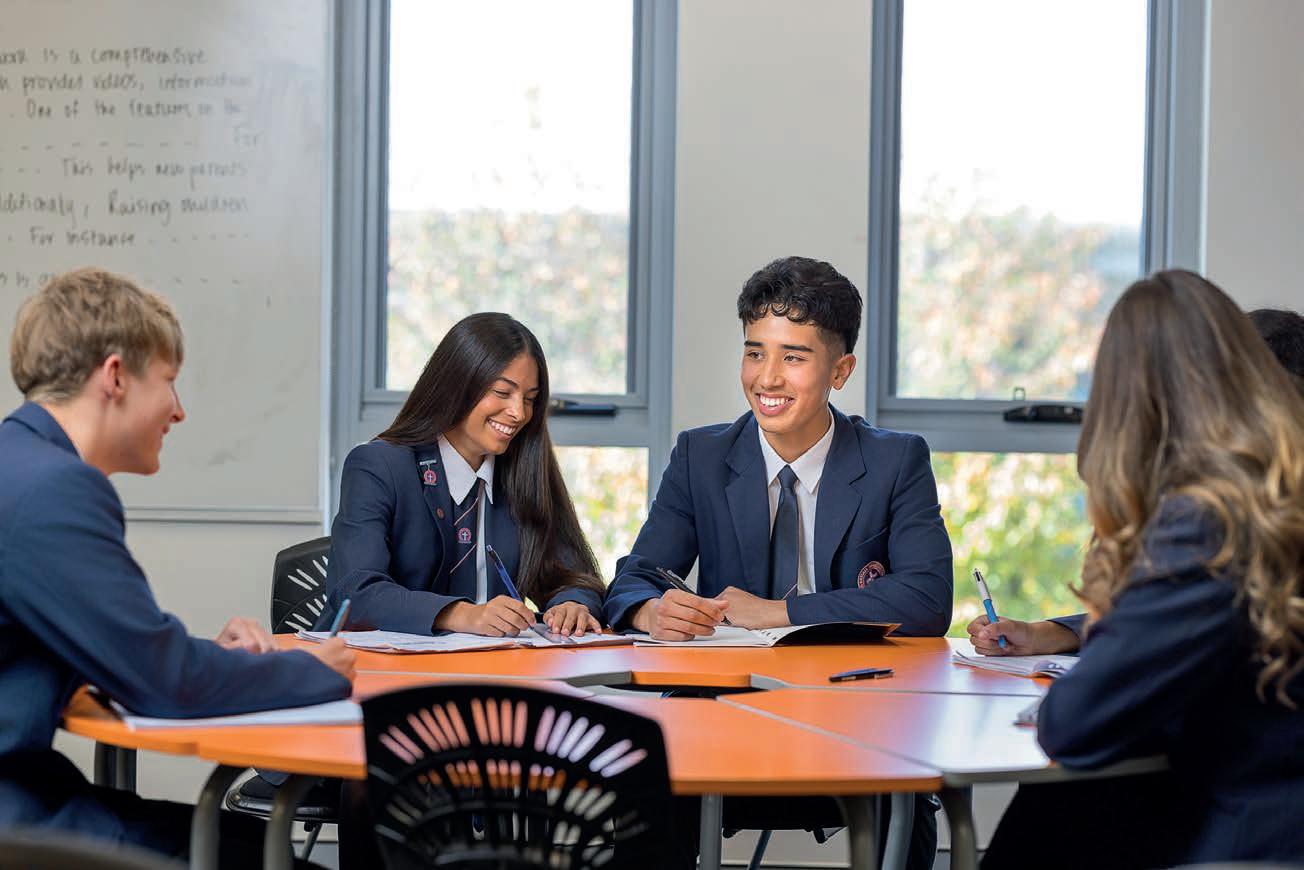
Independent schools today are as diverse and vibrant as the Australian communities they serve.
Over half (54 per cent) of Independent school students come from low-to-middle income households, while 36 per cent have a language background other than English, on par with the statewide average of 39 per cent.
Faith identities are evolving too; while religious identification among students’ families is declining, faith-based Independent schools are experiencing record enrolment growth.
Over the past decade, enrolments in faith-based schools have increased by 30 per cent, reflecting the continued appeal of values-based education, despite an almost doubling of families who identify with no faith (from 16 to 29 per cent).
These trends signal a redefinition of what an Independent education means: not only prestigious schools commanding high fees, but co-educational, values-driven campuses that reflect modern Australian life.
Today, a typical Independent school is likely to be a faith-based K–12 school in greater Western Sydney charging less than $6,000 per year.
Meeting the state’s growth needs
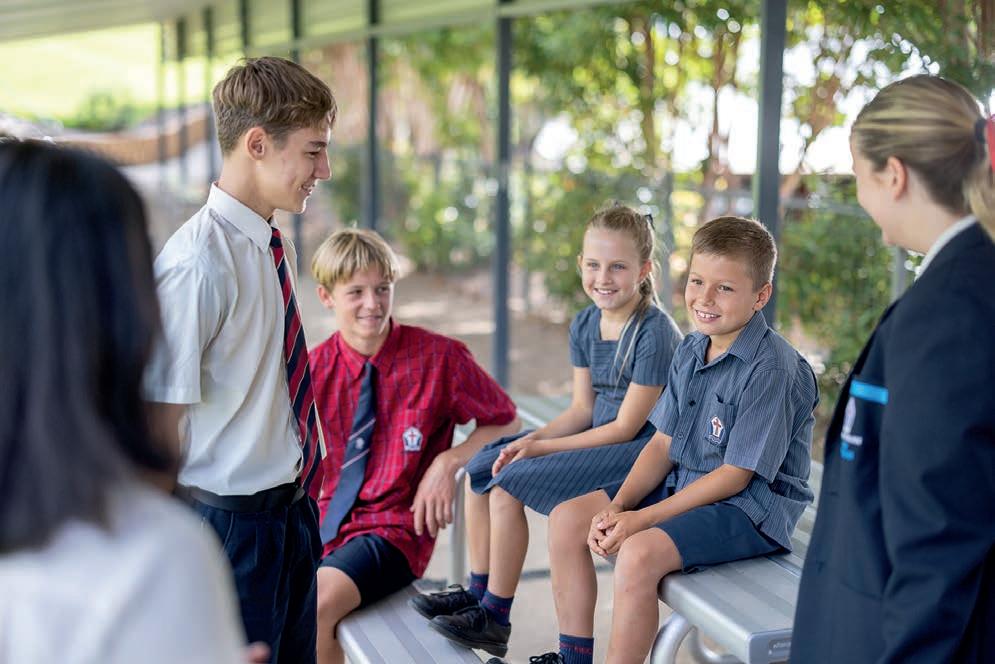
Independent school growth is most pronounced in areas of increased development activity, both in Sydney and beyond. In Greater Sydney, student growth is highest in the city’s northwest and southwest where 10 new, low-to-mid fee Independent schools have opened over the past decade and many others have expanded.
Outside Sydney, it’s the Central Coast, Newcastle and the North Coast leading the charge, absorbing most of the sector’s regional students. Overall, 37
per cent of Independent school students now learn outside Greater Sydney.
By 2034, AISNSW predicts Independent schools will enrol over 22 per cent of NSW students, cementing their role as a central pillar of NSW’s education system. Fuelled by diversity, increasing a ordability and regional expansion, Independent schools have
surged past fringe status to educate nearly one in five NSW students.
As AISNSW’s Enrolment Dynamics report reveals, tomorrow’s Independent schools will be even more varied in faith, fee, geography and pedagogy. These schools should no longer be viewed as simply isolated alternatives but as integral to Australia’s educational future, helping shape the next generation in classrooms as varied as the society they reflect.
Parents say behaviour management, quality teaching and student wellbeing are key when deciding where to send their child.
When it comes to choosing a school for their children, parents are putting discipline and behaviour management at the top of the list.
Research conducted on behalf of Catholic Schools NSW shows that nearly half of parents (45 per cent) rate a structured, respectful classroom environment as the most important factor in a school experience.
The survey, which focused on families considering education for preschool-aged children and younger, also found that 41 per cent of parents value school facilities and environment, while 37 per cent prioritise clear communication and transparency from schools.
Quality teaching and student support matter Beyond discipline, parents are looking closely at the quality of teaching. The research highlights teaching quality and methods as the most important factor for parents considering education
performance (34 per cent) also ranked highly. Interestingly, parents placed slightly less emphasis on class size and teacher-student ratios (28 per cent) than non-parents (33 per cent).
For many families, these priorities reflect a desire for a holistic school experience that balances strong academic foundations with a safe, supportive environment.
Structured classrooms drive learning and wellbeing
Mr Dallas McInerney, CEO of Catholic Schools NSW, said the findings reinforce what schools hear from families choosing a Catholic education.
“Behaviour has emerged as a major issue for parents. They value a respectful classroom environment where their children are safe and can learn,” Mr McInerney said.
“Parents understand that a structured
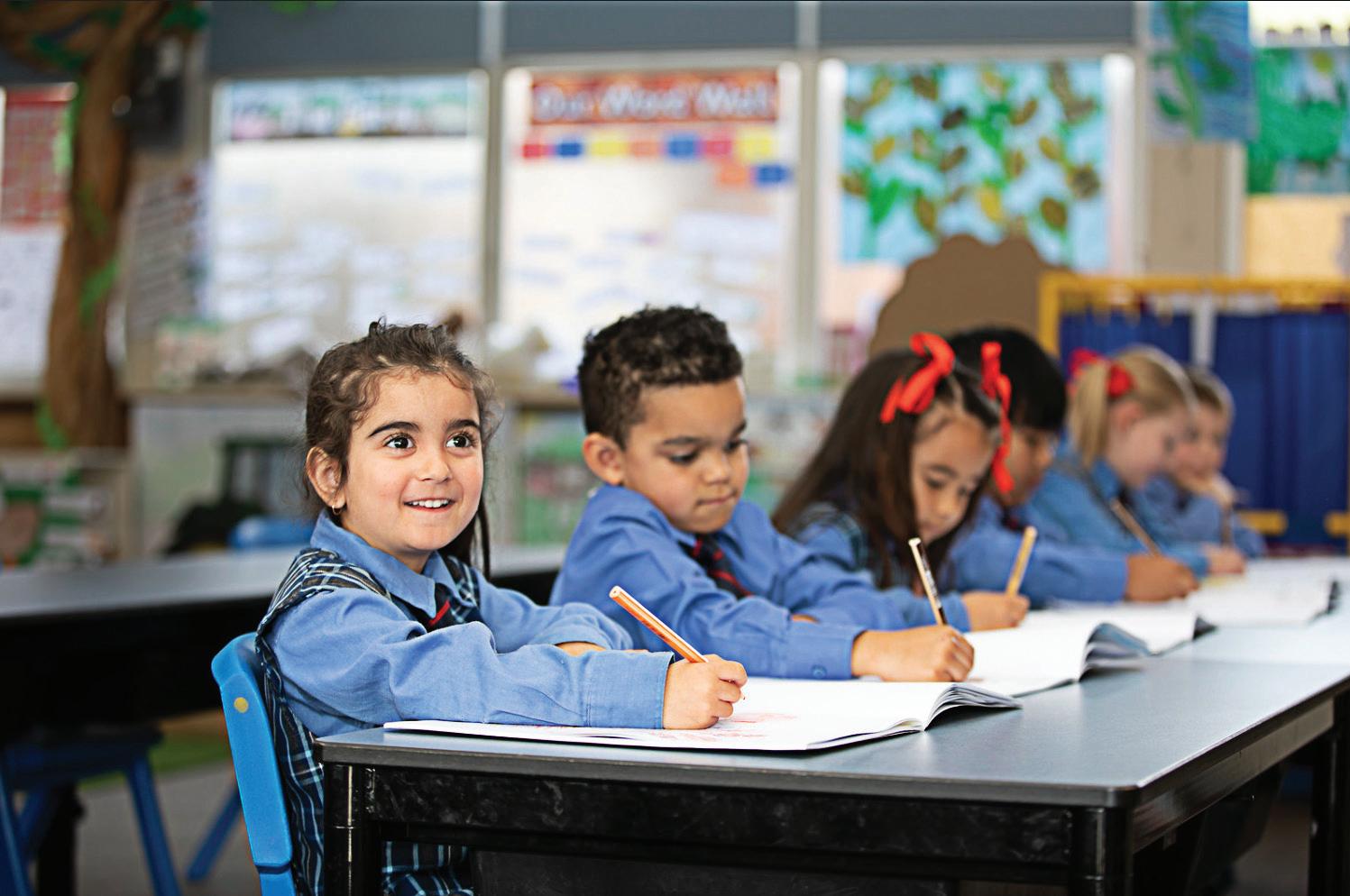
learning, while high-quality teaching and teaching methods ensure the most e ective delivery of core curriculum knowledge.”
He added that Catholic schools are particularly focused on providing structure and evidencebased teaching methods, which benefit all students but have a measurable impact for disadvantaged learners. For example, Indigenous students in Catholic schools have 9 per cent higher attendance rates and perform better in Years 5 and 9 NAPLAN assessments than their peers.
“Catholic Schools NSW wants all children to get the best start in life. That’s why we focus on raising the bar on education standards in Australia and why we have been increasing our intake of students from disadvantaged backgrounds,” Mr McInerney said.
Addressing behaviour challenges across Australia
Behaviour issues continue to challenge schools nationwide, and in May 2025 Catholic Schools NSW brought attention to the topic with its 2025 Behaviour Symposium. The event featured Mr Tom Bennett OBE, a leading international expert in behaviour management, alongside Dr Jacqueline Amos and other expert speakers.
The symposium aimed to provide practical strategies for teachers and school leaders to manage behaviour e ectively, fostering environments where all students can thrive.
Research also shows that nine in ten parents considering schools for children of preschool age or younger would choose a non-government school if cost were not a concern, reflecting strong confidence in independent and Catholic schooling.
“Behaviour has emerged as a major issue for parents. They value a respectful classroom environment where their children are safe and can learn.”
Dallas McInerney, CEO, Catholic Schools NSW
























A Barker education is shaped by our focus on preparing for a life beyond the School gates. For us, that’s a world where all people live, work and learn together. Coeducational schools a ord students the opportunity to work and learn together, to be inclusive and respect diversity. Barker is a fully coeducational school where we seek to expose our students to diverse opportunities and experiences, so that they are able to develop resilience and adaptability within a supportive environment. In 2025, Barker celebrated 50 years of coeducation.
Why a Barker education?
We have an abiding commitment to a strong academic program, e ective pastoral care delivered in a Christian setting, opportunities and choice for all. Barker’s curriculum is adaptive and flexible, allowing for student choice and catering for interest and ability. Our students are taught to think critically, apply knowledge in new situations and develop the skills needed to become lifelong learners. Our curriculum develops the knowledge and skills needed by our future leaders; it challenges students and prepares them for a future that is in many ways undefined.
Our approach to student wellbeing
Barker is committed to creating and fostering a caring and positive Christian environment for every student, in order for our young people to be known, supported and equipped with the social and emotional tools needed to thrive.
The purpose of the student wellbeing program at Barker is to empower students with social and emotional skills and attributes, developed through a holistic program of care, so that they can thrive throughout their lives. It is hoped that the legacy of the student wellbeing program at Barker produces graduates who are resilient and equipped to make a di erence in their world and who have given more than they have received.
A global reputation
Shaping character is at the heart of great education and has always been an important part of the Barker journey. With membership in Round Square, Barker College joins 230 schools across 50 countries that collaborate to o er world class experiences that develop global competence, character and confidence for both students and sta . In 2026, Barker College will proudly host the Round Square International Conference. Celebrating Round Square’s 60th anniversary, the conference will explore the theme ‘Visions for the Future from an Ancient Land’. The School enjoys a global reputation of making significant contributions to the education of students, in particular in the area of STEAM and Robotics. In 2022, Barker College was admitted to the Robotics Hall of Fame, the only school outside the United States to achieve this recognition. Continuing the vision to inspire global hope, the Robotics team shares knowledge and understanding with teams around the world, supporting the development of teams in remote Australia and in third world countries.
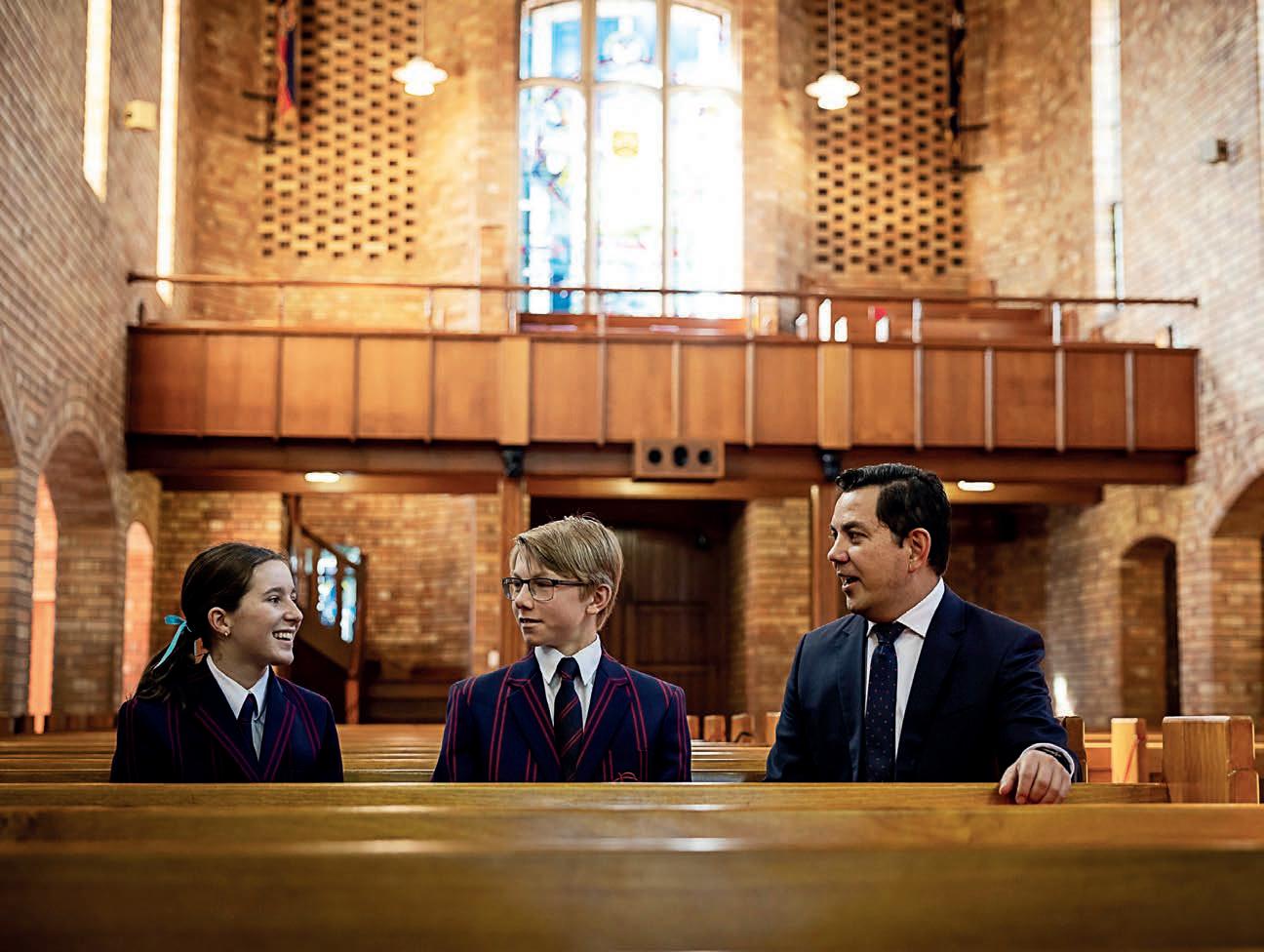
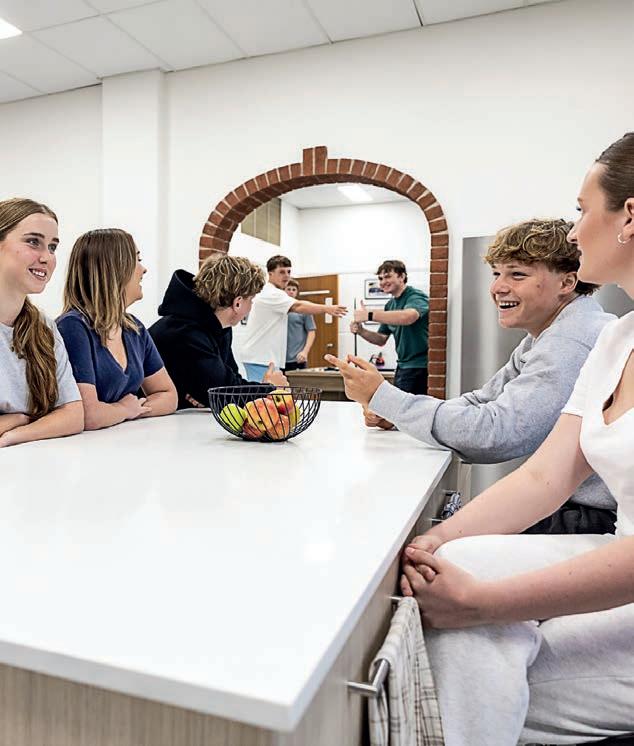
Co-curricular program
The experience inside the classroom is only one part of a Barker education. Cocurricular activities deepen the school experience for all our students, and from the arts to the sporting field, students are encouraged to challenge themselves and uncover their talents.
As well as Drama, Music, Cadets and over 20 di erent sports, Barker students can challenge themselves in the areas of robotics, debating and public speaking.
Our students also take part in compulsory Outdoor Education Camps. In this unfamiliar environment, students connect with the natural world while building leadership and teamwork skills.
Sport is an integral and compulsory part of school life at Barker College. Set on 50 acres, Barker students are o ered a wide choice of sports and benefit from the excellent sporting facilities available to them.
One school. One family
Boarding at Barker is so much more than a place to stay, it’s a place our boarders call home. Being a Barker Boarder puts you at the heart of the action – with friends, classes and on-campus amenities right outside your door.
Discover a home away from home at Barker Boarding, where tradition meets modern comfort. With a rich history of nurturing young minds, our small boarding house accommodates just 60 students, ensuring a close-knit community where every boarder is known and valued.
Why choose us?
• Fully Refurbished Boarding Houses: Enjoy the comfort of air-conditioned rooms and well-appointed common areas.
• Beautiful Campus: Our picturesque grounds provide the ideal environment for study and relaxation.
• Academic Support: Benefit from evening prep sessions with access to dedicated tutoring.
• Spiritual Growth: Participate in our weekly chapel services, fostering a sense of community and personal growth.
• Personal Attention: With a small number of boarders, our sta can provide personalised care and support.
• Coeducational Boarding: Brothers and sisters can enjoy the same boarding experience.
Join us and become part of a community where lifelong friendships are forged, and academic excellence is achieved.
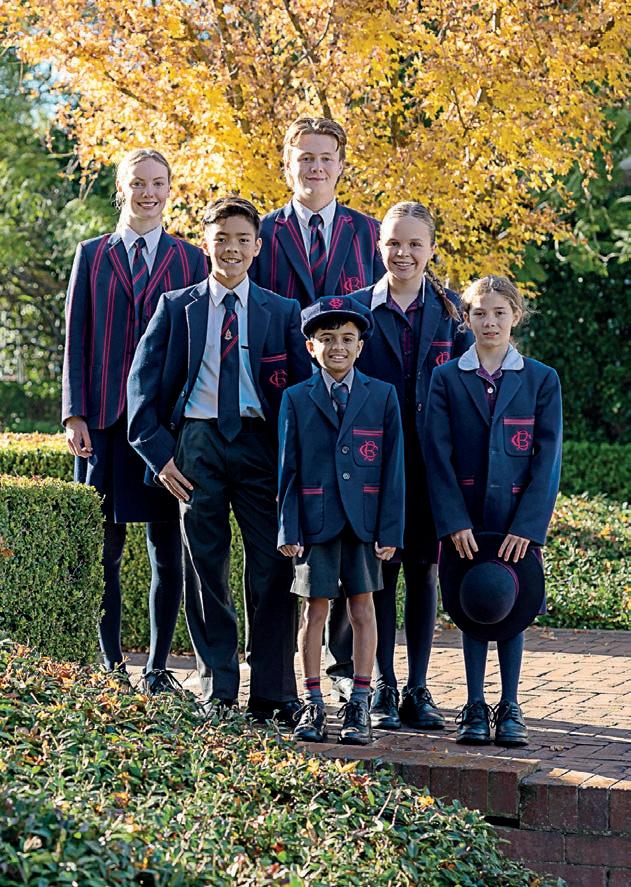
Founded on principles of bilingual learning and unity through diversity, IGS is dedicated to shaping future generations of globally-conscious citizens. As a co-educational and secular independent school from Preschool to Year 12, we embody our values of diversity, authenticity, connectedness, personal achievement and vibrancy.
Our progressive learning community is located in Ultimo, in the centre of Australia’s most creative, dynamic, digital precinct, a short walk to the University of Technology Sydney and the University of Sydney. Our idyllic Kangaroo Valley Retreat o ers students a host of immersive experiences; language camps, science and sustainability field studies, Shakespeare in the Glade, music camps, writers’ retreats, art en plein air and leadership programs.
Our unique languages program broadens students’ cultural understanding and communication skills. Each day from Early Learning onwards, students experience partial bilingual immersion, becoming familiar with their additional languages, which can include French, German, Italian, Japanese, Chinese (Mandarin) and Spanish. Families from all backgrounds immediately feel at home in the IGS community, where di erence is celebrated.
At IGS, we harness the natural curiosity and energy of our youngest learners. We draw upon a broad mix of theories and philosophies in early childhood education to ensure children enjoy new and exciting opportunities for developmental play and in-depth learning. Our program is underpinned by the Early Years Learning Framework, the national curriculum of early education and care services.
Our Primary program provides opportunity, challenge and support to learners from Kindergarten to Year 6. Meeting individual learning needs has a positive e ect on self-esteem and development. Our vibrant range of learning activities provides rigour, promotes acceptance of di erence, and encourages research in students’ areas of interest. Students develop an understanding of themselves and their worlds through various forms of expression including Languages, Music, Visual Arts, Dance and Drama.
Our program for Years 7 and 8 aims to create a smooth transition into High School and maximise student engagement. Courses for Years 9 and 10 provide opportunities for enriched learning and are grounded in critical thinking and the ongoing development of literacy and numeracy skills, while the expanded
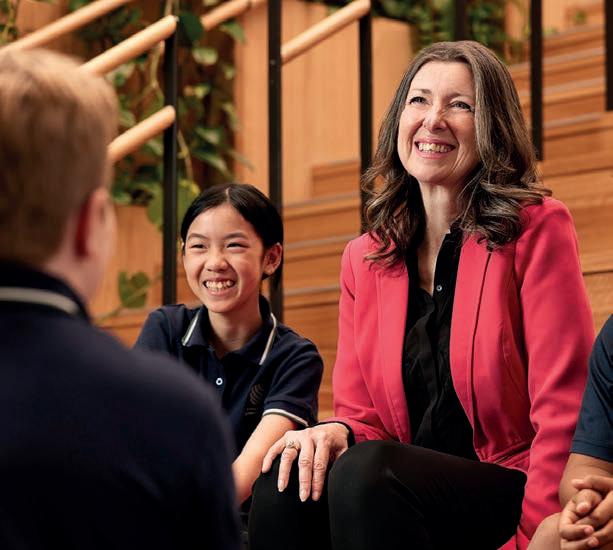
Senior program features stimulating choices across all faculty areas and many leadership opportunities. HSC results are consistently impressive.
Learning without limitations
From Early Learning and Primary right through to High School, language, music, performance and the arts are the threads that bind us. They are the cornerstones of human connection that we see as key to our students’ successes both at school and in society. IGS o ers a host of opportunities for students to be active, learn teamwork and good sportsmanship, compete

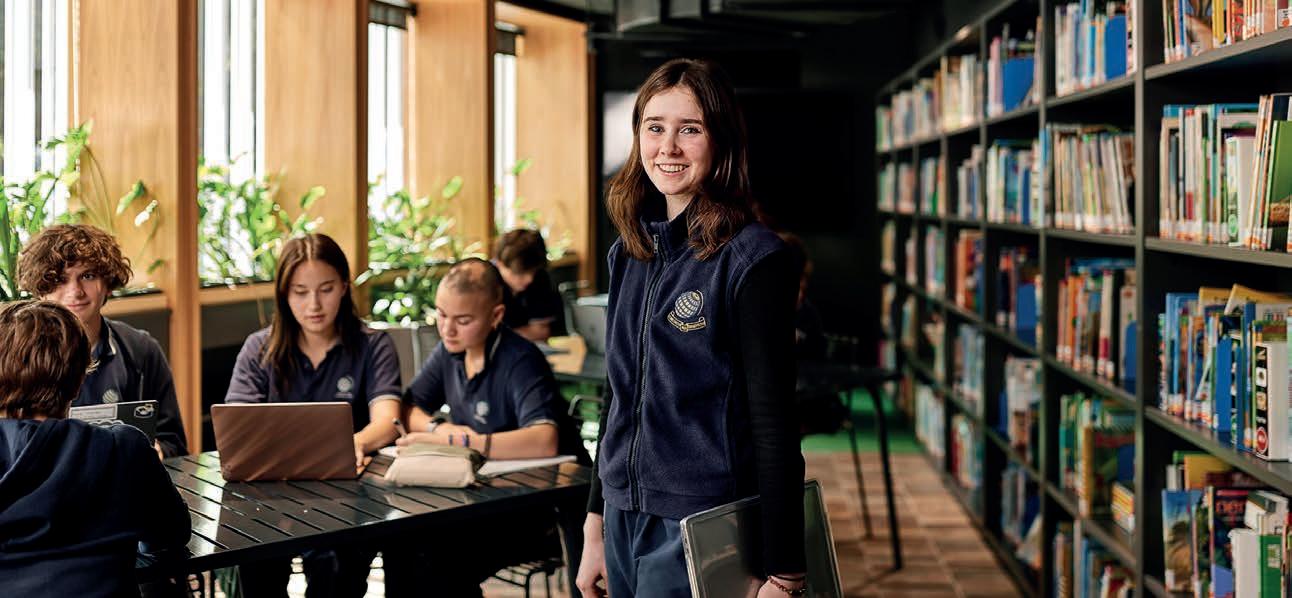
together and make friends outside their class group.
O ering immersive, award-winning education programs, like SAGE, and real-world opportunities for students to learn beyond the classroom — our highly engaging cross-disciplinary curriculum prizes personal growth, focus and e ort alongside academic achievement and creative expression.
IGS Scholarship Program
IGS o ers Indigenous scholarships and ACER scholarships for the academically gifted. Located on the land of the Gadigal, IGS has a proud tradition of educating young Indigenous Australians. Since 2003, the school’s commitment has been formalised through a unique scholarship program, including activities reflecting Aboriginal and Torres Strait islander identities, histories and cultures.
Today, over 22 First Nations students benefit from this scholarship. Each year, two Indigenous scholars join IGS in Kindergarten, and a specialised Academic Mentor supports Indigenous students from Preschool to Year 12.
IGS Connect
Kindness flourishes at IGS. IGS Connect is a special program that fosters a culture of altruism at IGS. It includes student volunteering with not-for-profit organisations and causes, allowing our students to learn more about the experiences of others and give back to the community. These e orts help instil generosity and empathy among students while contributing positively to the community.
Student collaborations include Deadly Connections, Chris O’Brien Lifehouse, South Cares Initiative, B Kinder Day, STEP Program, Indigenous Literary Foundation, Kids Giving Back, Clean Up Australia, Jump Rope for Heart, Share the Dignity, Lou’s Place Support and Operation Christmas Child.
Members of the IGS community support our Giving Days and other appeals, contributing to the school’s Indigenous Scholarship Fund and Building Fund. Many parents and carers become involved in the active and vibrant IGS Parents’ and Carers’ Association, sharing their time and expertise with our community.
2024 academic highlights
• IGS students received 125 early o ers to University courses in diverse areas of study including Natural and Physical Sciences, Information Technology, Engineering and related Technologies, Health, Management and Commerce, Society and Culture and Creative Arts.
• Two IGS students were celebrated in the First in Course merit list placing First in State for Spanish Extension and German Beginners. One student achieved Second in State for Spanish Extension.
• Three students were listed as NSW All-Round Achievers, acknowledging that they achieved results in the top band for at least 10 units of HSC courses.
• Twelve per cent of the Year 12 cohort achieved an ATAR of 95 and above, 29% achieved an ATAR of 90 and above, and 67% achieved an ATAR of 80 and above.
• 66 Distinguished Achievers who, between them, received 129 Honourable Mentions by being awarded 90 per cent or above in at least one course.
• 100 per cent of students studying the following courses achieved results in the top band possible: German Extension, Italian Extension, Japanese Continuers and Japanese Extension.
• 100 per cent of students studying the following courses achieved results in the top two bands: Dance, Drama, English Extension 1, English Extension 2, Mathematics Extension 2, Music Extension, Science Extension, Textiles and Design, Chinese Continuers, French Extension, Italian Continuers, Japanese Beginners, Spanish Extension.
• 78 per cent of students across both English Extension courses achieved results in the highest band possible.
• 36 Year 11 students and one Year 6 student completed HSC courses early via acceleration or compression, 37 per cent of these students achieved 90 per cent or higher in one or more HSC courses.
• IGS students received 41 nominations for HSC Showcases for exemplary Major Projects in Design and Technology, Drama, Music Composition and Visual Arts.
A. Gadigal Land, 4-8 Kelly St Ultimo 2007
T. +61 2 92196700
E. admissions@igssyd.nsw.edu.au
W. www.igssyd.nsw.edu.au
The McDonald College: Nurturing individual journeys and excellence in education
Founded in 1984 by visionary women with a bold mission to combine worldclass performance training with academic excellence, The McDonald College remains one of a kind in Australia. It is the only school in the nation where young people can pursue their passions while receiving a rigorous and comprehensive education from Kindergarten to Year 12.
A diverse and inclusive educational experience
Located in North Strathfield, The McDonald College is an independent, non-denominational, co-educational school committed to developing both the mind and the creative spirit. Its unique curriculum integrates academic learning with specialist training in Performing Arts and elite tennis, o ering disciplines such as:
• Acting
• Classical ballet
• Dance
• Music
• Musical theatre
• Technical production
• Elite tennis (in partnership with Voyager Tennis Academy)
At the heart of the College is a belief in nurturing every student’s individuality. Within a supportive and inclusive community, students are encouraged to explore their talents, embrace challenges, and realise their full potential – both on stage and in the classroom.
Strong foundations in Junior School
The McDonald College’s Junior School provides a strong academic foundation through small class sizes and personalised teaching. Beginning in Kindergarten, students receive individualised support that caters to their unique strengths and learning styles. Literacy and numeracy are central, while Performing Arts classes spark imagination, build confidence, and foster creativity from the earliest years. These formative experiences lay the groundwork for lifelong learning and self-belief.
A home away from home
For students from across Australia and overseas, the College o ers boarding for up to 45 students of all genders from Years 7–12. This warm, inclusive community provides full-time, semi, and occasional boarding options. The focus is on creating a safe, nurturing environment where students can excel academically, socially, and artistically. Research consistently shows that when students pursue their passions, their overall academic performance improves – a principle the boarding program actively supports.
World-class facilities for creative exploration
The College is home to exceptional facilities that inspire creativity and excellence. Students have access to nine fully equipped dance studios with sprung floors, a Pilates studio, music rooms, acting studios, a recording studio, and a 60-seat Blackbox theatrette. Larger performances take place in the on-campus conference centre, supported by a dedicated costume department.
Elite tennis students train at the nearby Meadowbank Tennis Park, accessible by private College shuttle. Academic facilities include science laboratories, two libraries, art and design studios, technology workshops, a fabrication lab in development, a darkroom, exhibition gallery, and a multipurpose court – providing every opportunity for students to innovate, explore, and excel.
Dedicated and passionate sta
The McDonald College’s sta are not only experienced educators but also active professionals in their fields – from accomplished performers and choreographers to respected academics and industry specialists. Their passion, expertise, and mentorship create a vibrant and inspiring learning environment that bridges the gap between education and industry.
Celebrating student achievement
Performance and presentation are central to College life. Each year, students take part in major full-length ballet, theatre and musical theatre productions as well as High Performance Season and An Evening of Classical Ballet, alongside plays, eisteddfod groups, and creative showcases. These experiences allow students to refine their craft, build confidence, and gain invaluable stage and industry experience.
Notable alumni
The McDonald College is proud of its long-standing tradition of nurturing exceptional talent across the Performing Arts and beyond.
Its alumni have excelled with major Australian and international ballet and dance companies, including Bangarra Dance Theatre and Sydney Dance Company; acclaimed actors such as Bojana Novakovic and Ayesha Madon; celebrated musician Meg Mac; actor Tim Draxl; comedian and writer Felicity Ward; former Yellow Wiggle and performer Emma Watkins; and respected journalists Dimity Clancey and Mariam Saab – among many others.
Open days and auditions
The McDonald College welcomes prospective students and families to attend open days, open mornings, and auditions for entry into Years 7–11 held throughout the year. Principal’s Tours are also available by appointment, o ering a personal opportunity to explore the campus and discover what makes the College truly unique.
Join The McDonald College community
At The McDonald College, the pursuit of excellence is deeply personal. Whether your child dreams of gracing the stage, achieving on the court, or excelling academically, the College provides the environment, expertise, and encouragement to turn those aspirations into reality.
Join The McDonald College community – where education and passion unite to create extraordinary futures.
About The McDonald
College

School























Watch us Change the World
“Our vision is for your daughter to graduate as an influential and compassionate young woman who is ready to embrace her future and make her mark on the world.”
Dr Kate Hadwen, Principal
At Pymble, we foster a world-class educational environment with the importance of global citizenship and a worldwide perspective at the centre. Our girls are compassionate and influential women who will go on to change the world – not just for themselves, but for the benefit of all. Watch us Change the World is our strategic direction, chosen to instil courage in our girls to create the future they want to see for themselves.
Four schools, one college
Situated on 20 hectares of beautiful park-like grounds, Pymble Ladies’ College is a non-selective, independent school for girls from Kindergarten to Year 12, with Boarding available from Year 7.
Pymble is a school that inspires and excites students to explore and extend their potential. As your daughter moves from the dependence of her first years to the independence of a young woman ready to graduate, each new school will o er her greater challenges, responsibility and opportunities.
The College o ers opportunities for excellence in academic studies, sports and the arts, a comprehensive curriculum with outstanding facilities and a nurturing and supportive culture.
The benefits of single-sex education
The decision about where to educate your daughter is one of the most important decisions you will make on her behalf. Research indicates that girls who attend all-girls schools are the beneficiaries of a “competitive boost”. This research adds to a growing body of evidence that speaks to the benefits of a
single-sex educational environment for girls when compared to girls who attend co-educational schools. These benefits include:
• Girls’ schools create a culture of strong academic achievement, including better grades in numeracy, literacy, reading, languages and, ultimately, better tertiary entrance scores.
• Girls in single-sex schools do better at STEM (Science, Technology, Engineering and Mathematics). They have more favourable attitudes towards STEM-related subjects, are more confident and are more likely to engage in higher-level mathematics, chemistry and physics.
• In all-girls schools, girls are better able to develop a positive self-image with less fear of ridicule. They are more likely to consider a wider variety of career choices and embrace competition.
• Self-esteem and well-being in an all-girls setting are enhanced.
• Girls in schools such as Pymble are more likely to engage in a wider array of sporting activities, including sports traditionally considered masculine such as rugby and AFL.
• Girls in all-girls schools experience fewer instances of sexist language and social anxiety.
• Girls in all-girls schools are more aspirational, their voices are heard more readily, and they are more motivated.
Academic excellence
Pymble has a proud record of academic excellence consistently placing in the top 30 schools in the NSW for the Higher School Certificate. In 2023, Pymble placed 19th in NSW and ranked 21st in 2024.
Year after year, rigorous study patterns, a focus on progress through a growth mindset and determination enable our students to achieve or exceed their personal goals. These results are also a testament to the high impact teaching practices used by our outstanding teaching sta as they support every student to triumph in various ways that may not involve a number.

First Independent Australian Olympic Pathway School
In 2024, Pymble was o icially designated as an Australian Olympic Pathway school by the Australian Olympic Committee (AOC). Pymble is the first independent school in Australia to become an Australian Olympic Pathway school.
To be recognised as an Australian Olympic Pathway School, a school must meet strict criteria set by the AOC and have a well-established elite athlete development sport program that includes Olympic Sports.
Pymble currently has partnerships with Badminton Australia and Athletics NSW, Basketball NSW, Rugby NSW, Hockey NSW, Volleyball NSW and Water Polo NSW. Our pathway partnerships will continue to grow with additional sports, both in Australia and internationally, to ensure Pymble students have the best opportunity for future athletic success.
Outdoor Education at Vision Valley
Pymble Ladies’ College has a second campus at Vision Valley dedicated to innovative outdoor education programs for all students from Kindergarten to Year 12. Set on 100 acres of beautiful bushland close to the Hawkesbury River, Vision Valley o ers high-quality accommodation, sport fields, camping areas, an archery range, a dam for canoeing and raft building, rock climbing and abseiling sites, ropes courses, mountain bike trails and a dual zip-line.
In Year 9, students embark on our four-week Residential Program at Vision Valley. Students live and learn away from home, with their peers, in a unique, technology-free environment which gives them time and space to connect to self, others and the environment.
Learning is di erent at Vision Valley and every aspect of the residential experience – from lessons to physical challenges, chores and downtime – builds real-world learning and problem-solving whilst living away from home. Every component of the program is carefully considered to help our girls develop a stronger understanding of who they are and where they fit in the world, respectful relationships with others and a greater understanding and appreciation of the natural environment.
Boarding at Pymble
Our Boarders are the heart of our College. We celebrate every girl’s unique gifts and provide a supportive, responsive and homelike environment where they can flourish. Our girls are empowered to embrace every opportunity to develop a broad perspective of life and to make meaning of their world as confident and capable young women.
With 150 Boarders, our community has a strong sense of pride and identity. Our Boarders build lifelong friendships with girls from around Australia and beyond, while building strong connections with day students too. Our Live It, Love It, Learn It programs provide incredible opportunities for connection, leadership, socialising and fun.
Integral to our close-knit community are our highly experienced Boarding sta who are nurturing and attuned to the needs of young women. Our team are deliberate in their e orts to know each girl and to understand her hopes and dreams.
Pymble gives back
The Pymble community shares common values and has diverse gifts and talents to give back to society. Giving back helps develop self-e icacy, leadership and communication capabilities while helping others increases compassion and gratitude.
Girls are guided by our Kindergarten to Year 12 service-learning continuum which highlights achievable and expected hours, suggested organisations and activities and a reflection task. Students are also encouraged to source their own service opportunities.
In 2024, Pymble supported the Barabara May Foundation, the Sony Foundation, the National Breast Cancer Foundation, Days for Girls, Wrap with Love, St Vincent De Paul Society, Kids Giving Back, Oz Harvest, Westmead Hospital Aged Care and many more.
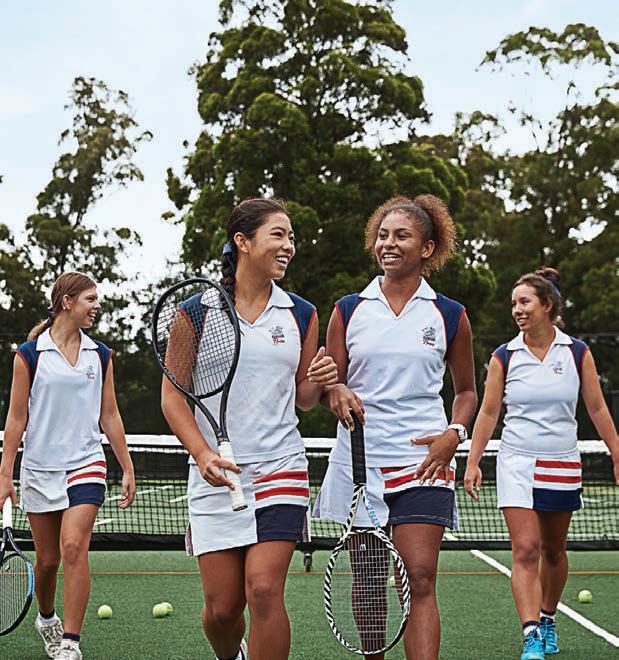
About Pymble Ladies’ College
T: +61 2 9855 7799
E: enrol@pymblelc.nsw.edu.au
W: www.pymblelc.nsw.edu.au
For more than 127 years, Meriden has been providing girls an enriching learning environment that empowers them to achieve their potential. Educating students from Pre-Kindergarten to Year 12, Meriden is one of Sydney’s top-performing independent girls’ schools. We o er a rigorous curriculum, a dynamic pastoral care program and a wide range of sport, music and cocurricular opportunities.
Meriden girls are encouraged to find their voice, become independent thinkers, take responsibility for their learning and make a positive di erence to their community. The size of our school allows us to o er a wide subject choice and countless opportunities beyond the classroom to ensure all our students are able to explore their talents and areas of interest.
A Christian foundation enriches life at Meriden, with every member of the school community encouraged to live out our values of compassion, integrity, courage and respect. When girls graduate from Meriden at the end of Year 12, they take with them the skills and attributes to thrive in an ever-changing world.
Meriden’s diverse and vibrant working environment attracts highlyqualified educational professionals who are leaders in their areas of expertise. Our talented and dedicated sta members keep Meriden at the forefront of girls’ education.
Location and facilities
Meriden’s central location, in the heart of Strathfield, makes travelling to the school from all areas of Sydney and surrounding regions convenient and direct. Our students come from local suburbs and from further afield and Meriden has its own fleet of private buses to complement the many public transport routes to the school.
Meriden’s three campuses are located adjacent to one another. Each campus is designed according to the developmental needs of its students to maximise learning. Their proximity fosters a unique sense of community spirit and school pride across all age groups.
Meriden o ers state-of-the-art facilities including specialised learning spaces for STEM subjects, Research, Music and Performing Arts, Design and Technology and Visual Arts. Collaborative learning spaces promote creativity, teamwork and leadership and students have access to cutting-edge technologies that prepare them for academic growth and the workforce of the future.

The school’s sporting facilities, which include a multi-purpose sports centre, indoor and outdoor tennis courts, fitness centre and swimming pool, encourage high rates of participation in physical activity for all students and support the sporting needs of a number of elite young athletes.
A Meriden education
Meriden o ers a holistic approach to teaching and learning that equips students to become life-long learners. Our curriculum is designed to cater to a range of academic abilities and to prepare girls for success in the HSC. To ignite students’ passion for learning, Meriden prioritises innovation and creativity in the classroom.
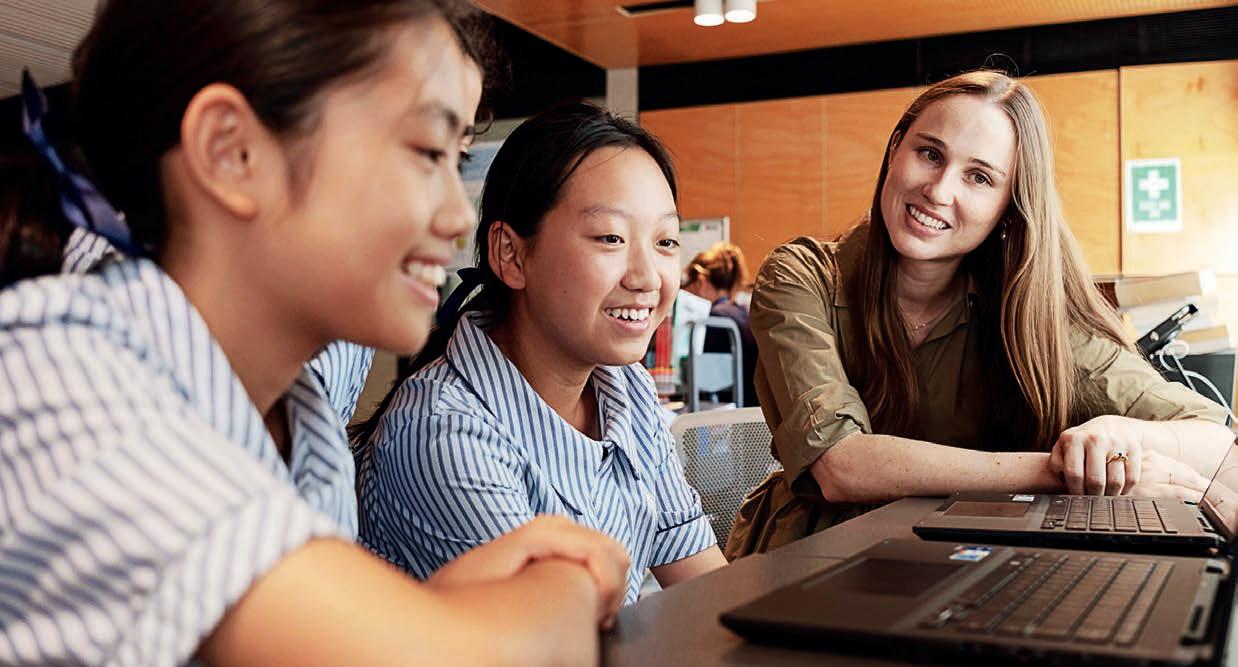
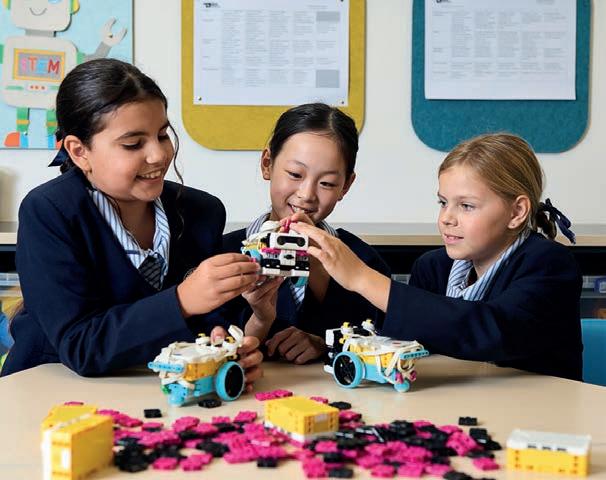
Our commitment to small class sizes means teachers know all their students as individuals and can accommodate their specific learning needs. Meriden’s outstanding academic results reflect the success of this approach. Each year, the school ranks among the top schools in NSW in the Higher School Certificate. Our students often rank within the top five placings in their subjects, putting them among the state’s elite academic achievers.
The results of our younger students in external literacy and numeracy testing far surpass the state average and their performance in state-wide individual subject competitions is equally as impressive.
Meriden’s Lateral Learning program intellectually challenges our Senior School students and plays a pivotal role in developing our girls into skilled
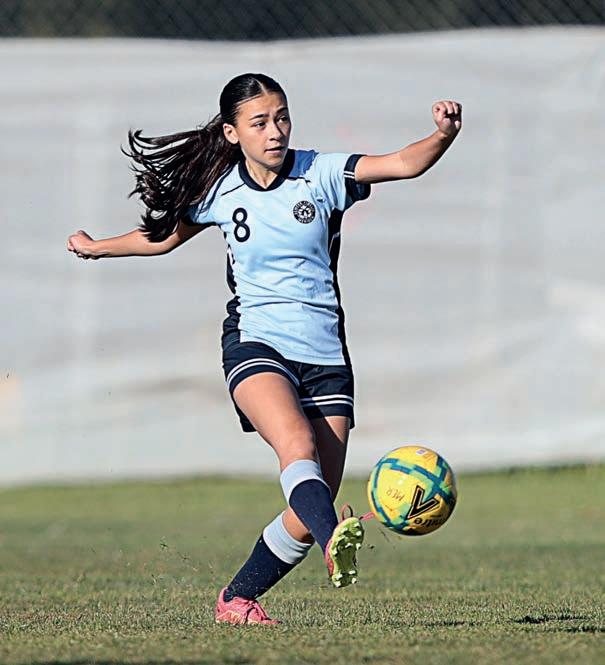
communicators who are prepared for life beyond school as independent, thoughtful, compassionate and connected global citizens.
Beyond the classroom
During their time at Meriden, students are encouraged to immerse themselves in a wide range of experiences to develop a portfolio of achievement in areas including public speaking, debating, the Australian Army Cadets and community service initiatives. Our cocurricular program is broad and every girl has the opportunity to try new things and find an area of interest.
Meriden’s thriving Music Department aims to foster a love of music in every student. The school’s many choirs and instrumental groups cater to every music style and level of ability. Our musicians have a myriad of performance opportunities throughout the year to showcase their latest repertoire. Girls with exceptional musical talent may be invited to join the Amadeus Program, which provides specialised support that nurtures each student’s musical development.
Meriden’s highly-regarded sporting program o ers a variety of team and individual sports and encourages every girl to care for her physical wellbeing. The school has a remarkable record of sporting achievement, with Meriden girls having represented Australia in athletics, water polo, badminton and tennis. The school’s Olympus Program caters to the educational and sporting needs of our elite athletes, supporting them to fulfil their academic and sporting potential.
Encouraging students to give back to the community and care for one another is an integral part of life at Meriden. Our students gain a deep understanding of the importance of making meaningful contributions to the community through their participation in fundraising and community service activities. Every student leaves Meriden with first-hand experience of what it means to be an active and engaged citizen.
Wellbeing at our core
At Meriden, each girl is known and her unique contribution to the life of the school is valued. Our multifaceted pastoral care program and the services of the school’s Counselling, Chaplaincy and teaching sta ensure all students have a comprehensive support network that sees them thrive throughout their educational journey.

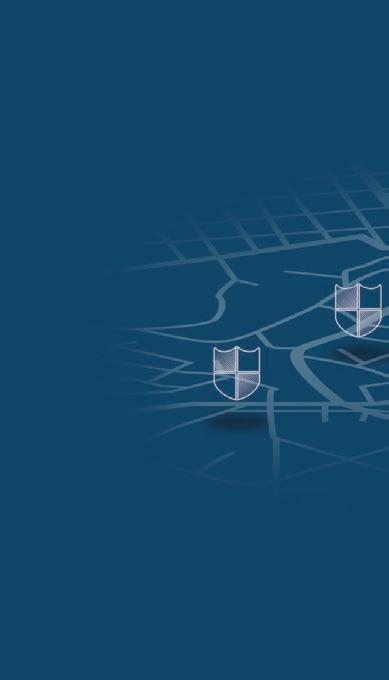


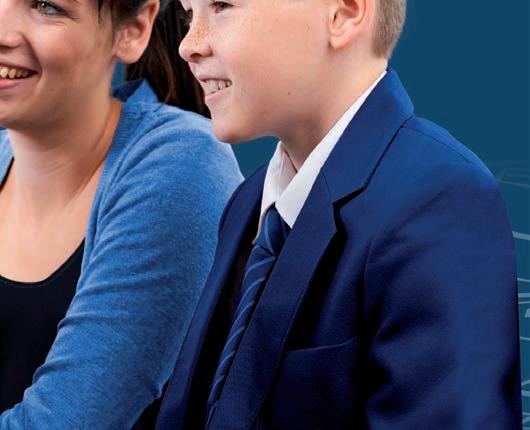



1.St Joseph’s College




















For more than 140 years, St Joseph’s College has educated boys to become men of character and service. Founded by the Marist Brothers in 1881 and shaped by our Catholic faith, Joeys forms boys who are confident, compassionate and ready to make a di erence in their communities.
A Marist education and a passionate community
Our mission is to educate boys of character and soul, guided by the example of Jesus Christ. The Marist tradition animates College life through humility, simplicity and love of work. These values shape learning, leadership and the way Joe-Boys treat one another each day. Achievement is measured in the growth of the whole person as much as by results.
Joeys is also the largest boys’ boarding school in Australia, home to boys from across Sydney, regional New South Wales and beyond. The cherished city–country connection is a defining feature of College life. Around half of our 1,100 students are boarders, many from rural and regional areas, creating a culture where boys learn from one another and build friendships that last well beyond graduation.
There is no divide between boarders and day students. Boys live, eat, pray, play and study together, sharing the rhythm of each day. Day boys join boarders in morning routines, training and breakfast before classes, then stay for co-curricular activities and supervised study. Our on-site Health Centre is sta ed 24 hours by Registered Nurses, giving families confidence that each boy is known and cared for.

Learning and co-curricular
Learning at Joeys is intentional, relational and future-focused. We teach boys how to learn – to apply knowledge, think critically and respond to real-world problems – while building the character to persevere. Teachers are supported by the St Joseph’s College Institute, a hub for professional learning that keeps practice sharp across leadership, pedagogy and spirituality. Academic excellence and e ort are celebrated together, recognising growth as well as high achievement.
Recent years have highlighted this pursuit of excellence, with outstanding HC outcomes and our graduates pursuing diverse pathways in tertiary studies, trades, service and enterprise. For every Joe-Boy the emphasis remains the same: strive for better things and place your talents at the service of others.
A Joeys education is broad by design. On the field, the stage, the river and in the workshop, boys discover gifts, learn discipline and practise teamwork. Sport is for everyone, o ering breadth and standards that build fitness, resilience and mateship. Families are welcomed to weekend fixtures as part of the College spirit.
Creative and performing arts are equally strong. Music is integral to College life, with more than 20 ensembles and choirs and a tradition of liturgical singing. Bi-annual musicals and major productions – from Strictly Ballroom to the recent Burramatta Songlines project – give boys a stage to stretch themselves, honour story and grow in confidence.
Public speaking and debating cultivate clear thinking and persuasive
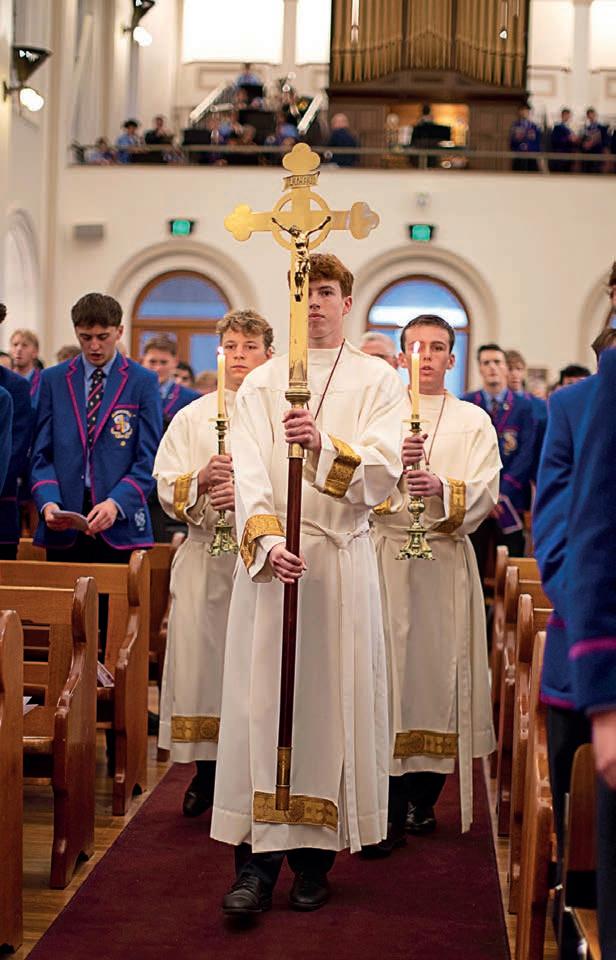
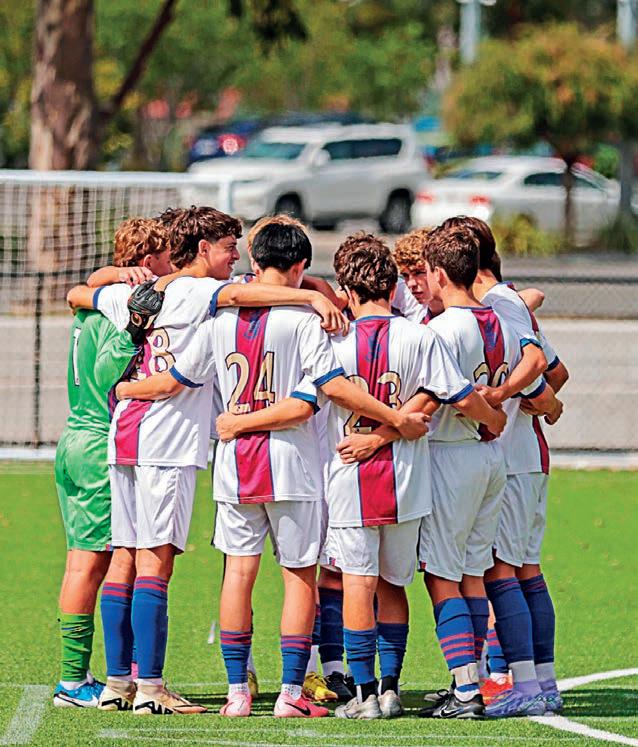
communication. Robotics, Duke of Edinburgh and a wide range of clubs ensure that every boy finds his place and purpose.
Faith, service and formation
Faith is lived at Joeys. Mission formation inspires head, hand and heart, encouraging boys to grow in faith, practice compassion and serve those in need. In the spirit of St Marcellin Champagnat, we seek to form good Christians and good citizens who contribute to a more just and equitable society. Service opportunities and immersion experiences help boys see the world clearly and respond generously.
The College environment also strengthens character through structure and routine. A typical day begins early, with training, music or debating, breakfast in community and classes from 8.35am. After school, boys move to training or co-curriculars, then supervised study into the evening. The rhythm is purposeful, teaching boys balance, accountability and presence.
Facilities and family partnership
Our Hunters Hill campus unites heritage spaces with modern facilities: a chapel, dedicated creative and performing arts spaces, an Aquatic and Fitness Centre with an Olympic-standard pool, specialist science and technology facilities, a lecture theatre and resource centre, and extensive sports grounds. The Outdoor Education Centre on the Colo River – just 90 minutes from Sydney – extends learning through challenge, teamwork and care for the environment.
Parents often describe joining Joeys as joining a family. We work closely with families through a culture of presence and support that continues long after graduation. Old Boys and their families remain deeply involved, o ering mentorship and generosity to current students. The SJC Foundation advances College priorities so that boys today and tomorrow can benefit from a highquality Marist education.
Choosing Joeys
Selecting a school is both head and heart. The best way to know us is to experience the College in action. We invite prospective families – whether local or from regional Australia – to join a Headmaster’s Assembly and a guided tour to see boarding, learning and co-curricular life alive with Joe-Boys at work and at play.
St Joseph’s College, Hunters Hill – educating boys for life, learning and leadership for the common good.

Established in 1913 with a strong Christian foundation, Trinity Grammar School seeks to ensure that every boy is individually known, cared for, and guided to grow in mind, body, and spirit. We work alongside parents to raise men of character who will care about others and our world.
Located in Sydney’s inner west, Trinity caters to boys in Pre-Kindergarten to Year 12 and provides both the Higher School Certificate qualification as well as the International Baccalaureate Diploma.
The school experience at Trinity is not just a means of gaining a mark; growth is our key focus. Trinity supports students in realising their personal and academic goals. As they grow from early childhood to adulthood, they take on increasing responsibility for their education and Trinity provides greater choice as they get older in both subject and co-curricular options.
The Trinity experience is challenging and stimulating, it broadens a boy’s horizons, and it takes place in a safe and supportive environment. What he experiences at Trinity prepares him for life outside of school.
Parenting isn’t straightforward or easy. Parents are the primary educators of a child. For our parents, Trinity is their chosen partner in this endeavour. There is a mutual recognition of the school’s expertise and professionalism, and of the parents’ responsibility. It’s a team e ort. Our parents choose Trinity because the investment we make in the education, character and development of their boys is akin to their own.
At Trinity, we value, welcome, and foster meaningful learning experiences for every student. Trinity boys have agency in their education. It is not done for them, or to them, but with them.
Wherever students begin – from Pre-K at the Preparatory School to the Senior School years – we create learning environments that allow each student to thrive as they take ownership of their own learning journey.
Across our Junior School in Summer Hill (Kindergarten to Year 6) and our Preparatory School in Strathfield (Pre-K to Year 6), students are guided to nurture a love of learning that will last a lifetime. At both campuses, the International Baccalaureate Primary Years Programme (PYP) is implemented to develop the learning attributes that prepare students for Middle and Senior School.
Learning experiences evolve as students grow. The teenage years are full of boldness, creativity, and fun; they are also as fragile as they are pivotal. In the Middle and Senior School, Trinity provides high quality teaching, strong relationships, and purpose-built environments to create a safe environment for this new energy to flourish.
Students in Years 7 to 10 engage with flexible learning models, new subject choices, and broader Co-curricular pursuits that build on their classroom experiences. Even greater choice and opportunity is unlocked through the Year 9 Field Studies Program – a long-term outdoor education residential program at Woollamia, situated on the Shoalhaven River.
For those in Years 11 and 12, the future is in clear focus. Various patterns of study are available depending on their post-school goals, including the Higher School Certificate, International Baccalaureate Diploma or Vocational Education Training courses.
Woollamia: Trinity’s Field Studies Centre on the NSW South Coast Home to the Year 9 Field Studies Program (FSP), a term-long, mandatory, immersive educational residential that equips boys by providing opportunities for self-discovery, building relationships, exploring new ways of being in community together, and providing time for self-reflection and spiritual growth in a unique environment.
For many students, the program is unlike anything they’ve ever experienced before but their growth in confidence and changes in attitude are clear to anyone. Students return from Woollamia with stories to tell, new friendships, and new skills, but they also bring back less quantifiable benefits in the way of confidence, empathy, resilience, maturity, and independence.
Co-curricular at Trinity
Forming an essential aspect of Trinity’s well-rounded approach to developing students in mind, body, and spirit, co-curricular pursuits are available to all students across the areas of music, creative arts, sports, cadets and clubs and associations.
Outside of the regular classroom setting, our co-curricular program allows students to develop their skills in an area of interest, engage with other students who share their interests in their own Year and beyond, and challenge themselves to get out of their comfort zone.
Academic Care
A Trinity education is designed to challenge students – without challenge, growth can’t take place. However, this challenge is never without support.
At Trinity, our academic program is designed to engage students deeply in their learning process. We focus on three key questions to help students reflect on their learning journey:
• How do you feel about your learning? (A ective motivation)
• What do you think about your learning? (Cognitive motivation)
• What are you doing about your learning? (Behavioural engagement)
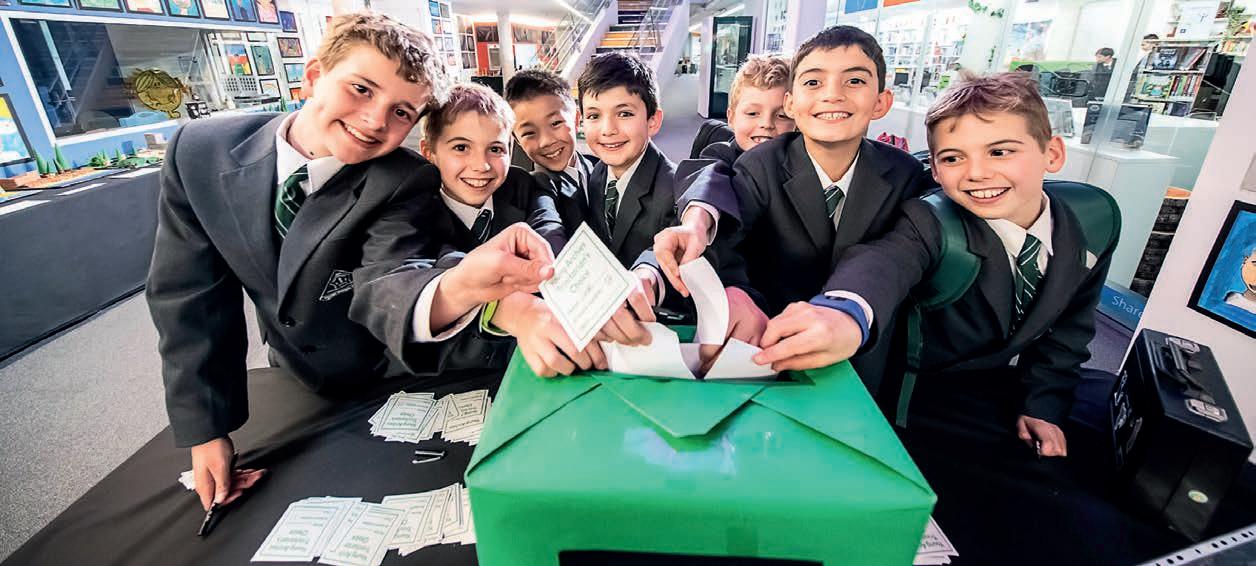

By focusing on productive habits and behaviours, we help students change their mindset and build confidence. Our teachers guide students to reflect on how their actions influence their thinking and feelings, ultimately helping them develop the belief that they can meet academic challenges head-on. We believe this sense of self-confidence is a key factor in academic success.
Throughout every stage of a student’s journey at Trinity, they are supported by the school’s range of e ective pastoral care. In the early years of Primary School, the class teacher provides pastoral care. Class teachers work to gain as much knowledge as they can about each student in their charge including about their family life, their cognitive abilities and attitudes, their ability at games, their
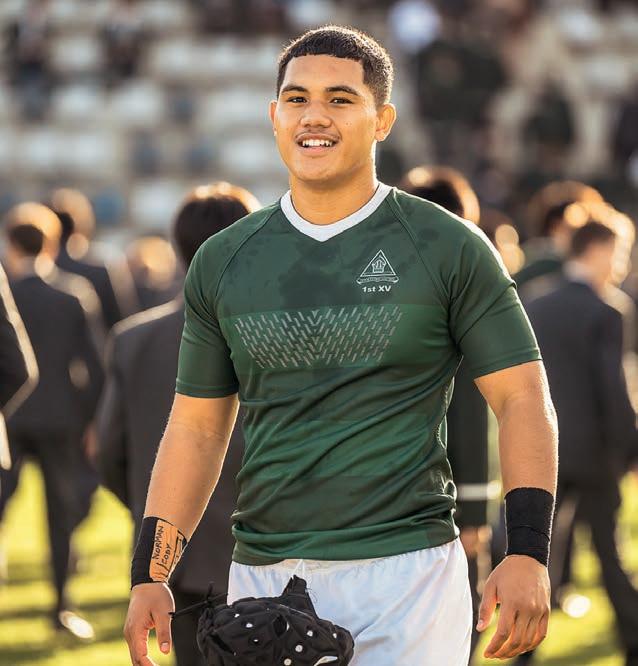
hobbies, interests, hopes, fears, and more.
In Middle and Senior School, the Trinity House System is the key link between home and the school. When students enter Year 7, they are placed into one of 16 Houses, led by 32 Housemasters. The House System is central to fostering an environment where boys feel safe, valued, engaged, and purposeful. This system continues throughout a student’s time in the Middle and Senior school, giving them guidance, mentorship, and strong relationships built on loyalty that last to graduation and beyond.
Join us at Trinity Grammar School: Take a virtual tour, attend an Open Day or watch a video of our Headmaster, Tim Bowden, explaining the Trinity ethos. Discover how we partner with parents to grow good men who make a di erence in the world.



Every week you will receive...
• The latest news in education
• Discussion of key issues
• Innovative products and resources
• Rich content that is highly valuable to education professionals

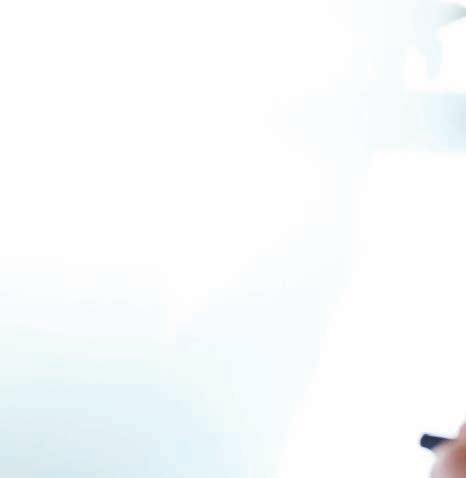
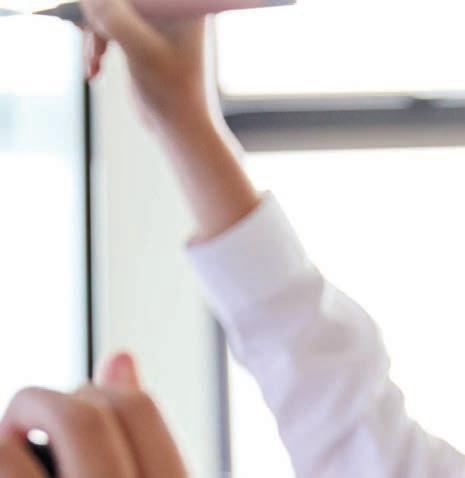





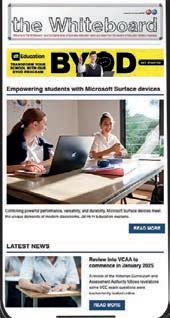






Contact: Holly Larkspur
holly.larkspur@primecreative.com.au












New South Wales Directory Listing
Non-Government Schools
•Abbotsleigh
1666 Pacific Highway (Corner Ada Avenue), WAHROONGA NSW 2076
T: +61 2 9473 7744
www.abbotsleigh.nsw.edu.au
registrar@abbotsleigh.nsw.edu.au
•All Saints Catholic College
53 Bigge Street, LIVERPOOL NSW 2170
T: +61 2 9602 4555
www.ascc.syd.catholic.edu.au
info@ascc.catholic.edu.au
•All Saints College St Mary’s Campus
16 Grant Street, MAITLAND NSW 2320
T: +61 2 4933 6177
www.maitlandasc.catholic.edu.au
admin@mn.catholic.edu.au
•All Saints College St Peter’s Campus
9 Free Church Street, MAITLAND NSW 2320
T: +61 2 4933 6933
www.maitlandasc.catholic.edu.au
admin@maitsp.mn.catholic.edu.au
•All Saints Grammar Senior Campus
31 Forsyth Street, BELMORE NSW 2192
T: +61 2 9718 7715
www.allsaints.nsw.edu.au
admin@allsaints.nsw.edu.au
•All Saints Catholic Senior College
Leacocks Lane, CASULA NSW 2170
T: +61 2 9821 1822
www.allsaints.casula.syd.catholic.edu.au
info@allsaintscasula.catholic.edu.au
•Aquinas College
10 Anzac Road, MENAI NSW 2234
T: +61 2 9543 0188
www.aquinasmenai.syd.catholic.edu.au
info@aquinasmenai.catholic.edu.au
•Arden Anglican School
Primary School Campus
39-43 Wongala Crescent, BEECROFT NSW 2119
T: +61 2 9484 1146 / F: +61 2 9980 6449
Secondary School Campus
6B Essex Street, EPPING NSW 2121
T: +61 2 9869 2644 / F: +61 2 9869 2655
www.arden.nsw.edu.au
enrolments@arden.nsw.edu.au
•Arndell Anglican College
118-124 Wolseley Road, OAKVILLE NSW 2765
T: +61 2 4572 3633
www.arndell.nsw.edu.au
•Avondale School
119 Avondale Road, COORANBONG NSW 2265
T: +61 2 4977 0200
www.avondaleschool.adventistconnect.org
admin@avondaleschool.nsw.edu.au
•Barker College
91 Pacific Highway, HORNSBY NSW 2077
T: +61 2 9847 8399
www.barker.nsw.edu.au
enrolments@barker.nsw.edu.au
•Bede Polding College
Rifle Range Road, WINDSOR SOUTH NSW 2756
T: +61 2 4577 6455
www.bedepoldingwindsor.catholic.edu.au
bedepolding@parra.catholic.edu.au
•Belmont Christian College
John Fisher Road, BELMONT NSW 2280
T: +61 2 4945 8844
www.bcc.nsw.edu.au
college@bcc.nsw.edu.au
•Berowra Christian Community School
Cnr King & Berowra Waters Rds, BEROWRA NSW 2081
T: +61 2 9456 2444
www.bccs.nsw.edu.au
•Bethel Christian School
106-114 Mount Druitt Road, MOUNT DRUITT
NSW 2770
T: +61 2 9625 4949
www.bethel.nsw.edu.au
enquiries@bethel.nsw.edu.au
•Bethlehem College
18 Bland Street, ASHFIELD NSW 2131
T: +61 2 9798 9099
www.bethlehemcollege.nsw.edu.au
info@bcashfield.catholic.edu.au
•Bishop Druitt College
111 North Boambee Road, COFFS HARBOUR
NSW 2450
T: +61 2 6651 5644
www.bdc.nsw.edu.au
secretary@bdc.nsw.edu.au
•Blue Hills College
17 Blue Hills Avenue, GOONELLABAH NSW 2480
T: +61 2 6624 1193
www.bluehills.nsw.edu.au
•Blue Mountains Grammar School
Via Matcham Avenue, WENTWORTH FALLS
NSW 2782
T: +61 2 4757 9000
www.bmgs.nsw.edu.au
registrar@bmgs.nsw.edu.au
•Border Christian College
429 Elizabeth Mitchell Drive, THURGOONA
NSW 2640
T: +61 2 6043 1577
www.alburybcc.nsw.edu.au
•Brigidine College
325 Mona Vale Road, ST IVES NSW 2075
T: +61 2 9988 6200
www.brigidine.nsw.edu.au
registrar@brigidine.nsw.edu.au
•Broughton Anglican College
81-83 Menangle Road, MENANGLE PARK NSW 2560
T: +61 2 4633 8365
www.broughton.nsw.edu.au
reception@broughton.nsw.edu.au
•Calrossy Anglican School
140 Brisbane Street, TAMWORTH NSW 2340
T: +61 2 5776 5100
www.calrossy.nsw.edu.au
admin@calrossy.nsw.edu.au
•Carinya Christian School
25 Boronia Drive, TAMWORTH NSW 2340
T: +61 2 6762 0970
www.carinya.nsw.edu.au
admin@carinya.nsw.edu.au
•Carroll College
2494 George Bass Drive, BROULEE NSW 2537
T: +61 2 4471 5600
www.ccb.nsw.edu.au
office.ccb@cg.catholic.edu.au
•Casimir Catholic College
200 Livingstone Road, MARRICKVILLE NSW 2204
T: +61 2 9558 2888
www.casimirmarrickville.catholic.edu.au
info@casimirmarrickville.catholic.edu.au
•Casino Christian Community School
93 Manifold Road North, CASINO NSW 2470
T: +61 2 6662 5599
www.ccs.nsw.edu.au
admin@ccs.nsw.edu.au
•Catherine McAuley Westmead
2 Darcy Road, WESTMEAD NSW 2145
T: +61 2 9849 9100
www.mcauley.nsw.edu.au
school@mcauley.nsw.edu.au
•Cedars Christian College
Waples Road, FARMBOROUGH HEIGHTS
NSW 2526
T: +61 2 4271 8124
www.cedars.nsw.edu.au
secretary@cedars.nsw.edu.au
•Central Coast Adventist School
12 Penrose Crescent, ERINA NSW 2250
T: +61 2 4367 7239
www.ccas.nsw.edu.au
admin@ccas.nsw.edu.au
•Central Coast Grammar School
Arundel Road, ERINA HEIGHTS NSW 2260
T: +61 2 4367 6766
www.ccgs.nsw.edu.au
enrol@ccgs.nsw.edu.au
•Cerdon College
Sherwood Road, MERRYLANDS NSW 2160
T: +61 2 9632 8759
www.cerdon.nsw.edu.au
cerdon@parra.catholic.edu.au
•Clarence Valley Anglican School
74 Centenary Drive, GRAFTON NSW 2460
T: +61 2 6642 8205
www.cvas.nsw.edu.au
enquiries@cvas.nsw.edu.au
•Charlton Christian College
43 Fassifern Road, FASSIFERN NSW 2283
T: +61 2 4959 9111
www.charlton.nsw.edu.au
•Chevalier College
566 Moss Vale Road, BURRADOO NSW 2576
T: +61 2 4861 1488
www.chevalier.nsw.edu.au
office@chevalier.nsw.edu.au
•St Clare’s Catholic High School
175 Buckwell Drive, HASSALL GROVE NSW 2761
T: +61 2 9835 2466
www.clarehassallgrove.catholic.edu.au
clare@parra.catholic.edu.au
•Christadelphian Heritage Coll Sydney
110 Cross Street, KEMPS CREEK NSW 2178
T: +61 2 9826 2116
www.hcs.nsw.edu.au
office@hcs.nsw.edu.au
•Christian Brothers High School
68-84 The Boulevarde, LEWISHAM NSW 2049
T: +61 2 8585 1744
www.cbhslewisham.nsw.edu.au
office@cbhslewisham.nsw.edu.au
•Condell Park Christian School
29 Lancelot Street, CONDELL PARK NSW 2200
T: +61 2 9708 4530
www.condellpark.nsw.edu.au
christianschool@condellpark.nsw.edu.au
•Covenant Christian School
212 Forest Way, BELROSE NSW 2086
T: +61 2 9450 2688
www.covenant.nsw.edu.au
admin@covenant.nsw.edu.au
•Cranbrook School
5 Victoria Road, BELLEVUE HILL NSW 2024
T: +61 2 9327 9000
www.cranbrook.nsw.edu.au
enrol@cranbrook.nsw.edu.au
•Danebank Anglican School for Girls
80-98 Park Road, HURSTVILLE NSW 2220
T: +61 2 9580 1415
www.danebank.nsw.edu.au
•De La Salle College
24 Bland Street, ASHFIELD NSW 2131
T: +61 2 9797 3200
www.dlsashfield.com.au
info@dlsashfield.catholic.edu.au
•De La Salle College
9 Ferndale Road, REVESBY HEIGHTS NSW 2212
T: +61 2 9773 6232
www.dlsrevesby.catholic.edu.au
info@dlsrevesby.catholic.edu.au
•De La Salle College
2 Cross Road, CRONULLA NSW 2230
T: +61 2 9527 1700
www.dlsc.nsw.edu.au
info@dlscronulla.catholic.edu.au
•Delany College
Grimwood Street, GRANVILLE NSW 2142
T: +61 2 9637 7406
www.delanygranville.catholic.edu.au
delany@parra.catholic.edu.au
•Dubbo Christian School
141 Sheraton Road, DUBBO NSW 2830
T: +61 2 6882 0044
www.dubbocs.com.au
info@dubbocs.com.au
•Edmund Rice College
112 Mt Keira Road, WEST WOLLONGONG
NSW 2500
T: +61 2 4228 4344
www.edmundricecollege.nsw.edu.au
office@edmundricecollege.nsw.edu.au
•Emanuel School
20 Stanley Street, RANDWICK NSW 2031
T: +61 2 9398 8388
www.emanuelschool.nsw.edu.au
reception@emanuelschool.nsw.edu.au
•Emmanuel Anglican College
62 Horizon Drive, BALLINA NSW 2478
T: +61 2 6681 5054
www.emmanuelcollege.nsw.edu.au
enquiries@eac.nsw.edu.au
•Emmaus Catholic College
87-109 Bakers Lane, KEMPS CREEK NSW 2171
T: +61 2 9670 4588
www.emmauskempscreek.catholic.edu.au
emmaus@parra.catholic.edu.au
•Freeman Catholic College
Mount Street, BONNYRIGG HEIGHTS NSW 2177
T: +61 2 9823 2073
www.freemanbonnyrigg.catholic.edu.au
info@freemanbonnyrigg.catholic.edu.au
•Frensham
Range Road, MITTAGONG NSW 2575
T: +61 2 4860 2000
www.frensham.nsw.edu.au
frensham@frensham.nsw.edu.au
•Georges River Grammar
53 Georges Crescent, GEORGES HALL NSW 2198
T: +61 2 9725 7566
www.grg.nsw.edu.au
enquiries@grg.nsw.edu.au
•German International School Sydney
33 Myoora Road, TERREY HILLS NSW 2084
T: +61 2 9485 1900
www.germanschoolsydney.com
info@germanschoolsydney.com
•Gilroy College
Marie Street, CASTLE HILL NSW 2154
T: +61 2 8853 8200
www.gilroy.catholic.edu.au
gilroy@parra.catholic.edu.au
•Glenaeon Steiner School
5a Glenroy Avenue, MIDDLE COVE NSW 2068
T: +61 2 9417 3193
www.glenaeon.nsw.edu.au
info@glenaeon.nsw.edu.au
•Green Point Christian College
Avoca Drive, GREEN POINT NSW 2251
T: +61 2 4363 1266
www.gpcc.nsw.edu.au
office@gpcc.nsw.edu.au
•Greenacre Baptist Community School
38-40 Shellcote Road, GREENACRE NSW 2190
T: +61 2 9642 3512
www.gbccs.nsw.edu.au
office@gbccs.nsw.edu.au
•Hennessy Catholic College
Ripon Street, YOUNG NSW 2594
T: +61 2 6382 1486
www.hccy.nsw.edu.au
•Heritage Christian School
33 Mumford Street, PORT MACQUARIE NSW 2444
T: +61 2 6583 8277
www.heritage.nsw.edu.au
admin@heritage.nsw.edu.au
•Heritage College
45 Kings Road, COORANBONG NSW 2265
T: +61 2 4977 3456
cooranbong.heritage.edu.au
•Hills Adventist College
84-88 Cecil Avenue, CASTLE HILL NSW 2154
T: +61 2 9634 2199
www.hills.adventist.edu.au
info@hills.adventist.edu.au
•Holy Cross College
517 Victoria Road, RYDE NSW 2112
T: +61 2 9808 1033
www.holycrosscollege.org
info@hccryde.catholic.edu.au
•Holy Spirit College
39 Croydon Street, LAKEMBA NSW 2195
T: +61 2 9740 8099 / F: +61 2 9740 5559
www.holyspirit.nsw.edu.au
info@holyspirit.nsw.edu.au
•Holy Spirit College
Cawley Road, BELLAMBI NSW 2518
T: +61 2 4285 2877 / F: +61 2 4285 2914
www.web.hscdow.catholic.edu.au/
info.hsc@dow.catholic.edu.au
•Holy Trinity School
Moore Street, INVERELL NSW 2360
T: +61 2 6722 4066
www.holytrinity.nsw.edu.au
info@holytrinity.nsw.edu.au
•Hunter Christian School
Corner Bull and Kerr Streets, MAYFIELD NSW 2304
T: +61 2 4967 2111
www.hunterchristian.nsw.edu.au
admin@hunterchristian.nsw.edu.au
•Hunter Valley Grammar School
Norfolk Street, ASHTONFIELD NSW 2323
T: +61 2 4934 2444
www.hvgs.nsw.edu.au
registrar@hvgs.nsw.edu.au
•Hurstville Adventist School
30 Wright Street, HURSTVILLE NSW 2220
T: +61 2 9580 5794
www.hurstville.adventist.edu.au
info@hurstville.adventist.edu.au
•Illawarra Christian School
Calderwood Road, ALBION PARK NSW 2527
T: +61 2 4230 3777
www.ics.nsw.edu.au
•Illawarra Grammar School
10-12 Western Avenue, MANGERTON NSW 2500
T: +61 2 4220 0200
www.tigs.nsw.edu.au
info@tigs.nsw.edu.au
•Inaburra School
Billa Road, BANGOR NSW 2234
T: +61 2 9543 2533
www.inaburra.nsw.edu.au
school@inaburra.nsw.edu.au
•International Grammar School
Gadigal Land, 4-8 Kelly St Ultimo NSW 2007
T: +61 2 9219 6700
www.igssyd.nsw.edu.au/
admissions@igssyd.nsw.edu.au
•James Sheahan Catholic High School
46-49 Anson Street, ORANGE NSW 2800
T: +61 2 6362 1422
www.jschs.nsw.edu.au
jschs@bth.catholic.edu.au
•Jervis Bay Christian Community Sch
Corner The Wool Road & St George Avenue, VINCENTIA NSW 2540
T: +61 2 4441 7983
www.jbccs.nsw.edu.au
office@jbccs.nsw.edu.au
•John Colet School
6 Wyatt Avenue, BELROSE NSW 2085
T: +61 2 9451 8395 / F: +61 2 9975 2071
www.johncolet.nsw.edu.au
werner@johncolet.nsw.edu.au
•John Paul College
Hogbin Drive, COFFS HARBOUR NSW 2450
T: +61 2 6653 3155
www.cofhslism.catholic.edu.au
jpccoffs@lism.catholic.edu.au
•John Therry Catholic High School
Demetrius Road, ROSEMEADOW NSW 2560
T: +61 2 4626 3322
www.jtchsdow.catholic.edu.au
info@jtchsdow.catholic.edu.au
•Kambala
794 New South Head Road, ROSE BAY NSW 2029
T: +61 2 9388 6777
www.kambala.nsw.edu.au
enrolments@kambala.nsw.edu.au
•Kincoppal - Rose Bay
New South Head Road, ROSE BAY NSW 2029
T: +61 2 9388 6000
www.krb.nsw.edu.au
admissions@krb.nsw.edu.au
•Kinross Wolaroi School
59-67 Bathurst Road, ORANGE NSW 2800
T: +61 2 6392 0300
www.kws.nsw.edu.au
admissions@kws.nsw.edu.au
•Knox Grammar School
Pacific Highway, WAHROONGA NSW 2076
T: +61 2 9487 0122
www.knox.nsw.edu.au
enrol@knox.nsw.edu.au
•Korowal School
54 Hall Parade, HAZELBROOK NSW 2779
T: +61 2 4758 7466
www.korowal.nsw.edu.au
info@korowal.nsw.edu.au
•Kuyper Christian School
294 Redbank Road, NORTH RICHMOND
NSW 2754
T: +61 2 4573 2999
www.kuyper.nsw.edu.au
admin@kuyper.nsw.edu.au
•La Salle Academy
Rabaul Street, LITHGOW NSW 2790
T: +61 2 6351 2928
www.lasalleacademy.com.au
•Lakes Anglican Grammar School
Corner Sparks Road & Albert Warner Drive, WARNERVALE NSW 2259
T: +61 2 4393 4111
www.lakes.nsw.edu.au
enrolments@lakes.nsw.edu.au
•Lindisfarne Anglican School
Mahers Lane, TERRANORA NSW 2486
T: +61 2 5590 5099
www.lindisfarnegrammar.nsw.edu.au
•Loreto Kirribilli
85 Carabella Street, KIRRIBILLI NSW 2061
T: +61 2 9957 4722
www.loreto.nsw.edu.au
loreto@loreto.nsw.edu.au
•Loreto Normanhurst
91-93 Pennant Hills Road, NORMANHURST
NSW 2076
T: +61 2 9487 3488
www.loretonh.nsw.edu.au
enquiries@loretonh.nsw.edu.au
•Loyola Senior High School
North Parade, MOUNT DRUITT NSW 2770
T: +61 2 9832 4455
www.loyolamtdruitt.catholic.edu.au
•Macarthur Adventist School
12 Victoria Road, MACQUARIE FIELDS NSW 2564
T: +61 2 9605 3200
www.macarthur.adventist.edu.au
principal@macarthur.adventist.edu.au
•Macarthur Anglican School
Cobbitty Road, COBBITTY NSW 2570
T: +61 2 4647 5333
www.macarthur.nsw.edu.au
registrar@macarthur.nsw.edu.au
•Mackillop College
Gormans Hill Road, BATHURST NSW 2795
T: +61 2 6338 2200
www.mkc.nsw.edu.au
•Maitland Christian School
75-81 Chelmsford Drive, METFORD NSW 2323
T: +61 2 4933 7633
www.maitlandcs.nsw.edu.au
office@maitlandcs.nsw.edu.au
•Malek Fahd Islamic School
405 Waterloo Road, GREENACRE NSW 2190
T: +61 2 9742 1022
www.mfis.com.au
admin@mfis.nsw.edu.au
•Mamre Anglican School
45 Bakers Lane, ERSKINE PARK NSW 2759
T: +61 2 9834 1881
www.mamre.nsw.edu.au
office@mamre.nsw.edu.au
•Marcellin College
195 Alison Road, RANDWICK NSW 2031
T: +61 2 9398 6355
www.marcellin.nsw.edu.au
secretary@marcellin.nsw.edu.au
•Marian Catholic College
185 Wakaden Street, GRIFFITH NSW 2680
T: +61 2 6962 4655
www.web.mccww.catholic.edu.au
•Marist College Pagewood
35 Donovan Avenue, MAROUBRA NSW 2035
T: +61 2 9349 7333
www.maristpagewood.catholic.edu.au
•Marist College Eastwood
44 Hillview Road, EASTWOOD NSW 2122
T: +61 2 9858 1644
www.mce.nsw.edu.au
info@mce.nsw.edu.au
•Marist College Kogarah
52 Wolseley Street, BEXLEY NSW 2207
T: +61 2 9587 3211
www.mck.nsw.edu.au
admin@mckogarah.catholic.edu.au
•Marist College North Shore
270 Miller Street, NORTH SYDNEY NSW 2060
T: +61 2 9957 5000
www.maristcollege.com
northshore@maristcollege.com
•Marist College Penshurst
65 Victoria Avenue, MORTDALE NSW 2223
T: +61 2 9579 6188
www.maristpenshurst.catholic.edu.au
info@maristpenshurst.catholic.edu.au
•Marist Sisters’ College Woolwich
66A Woolwich Road, WOOLWICH NSW 2110
T: +61 2 9816 2041
www.mscw.nsw.edu.au
info@mscw.catholic.edu.au
•Mary Mackillop College
91 Sparks Road, WARNERVALE NSW 2259
T: +61 2 4392 9399
www.mccwdbb.catholic.edu.au
smccw@dbb.catholic.edu.au
•Masada College
9-15 Link Road, ST IVES NSW 2075
T: +61 2 9449 3744
www.masada.nsw.edu.au
masada@staff.masada.nsw.edu.au
•Mater Maria College
5 Forest Road, WARRIEWOOD NSW 2102
T: +61 2 9997 7044
www.matermaria.nsw.edu.au
mmw@dbb.catholic.edu.au
•McAuley Catholic College
Lot 21 Pacific Highway, CLARENZA NSW 2460
T: +61 2 6643 1434
www.grafslism.catholic.edu.au
grafs@lism.catholic.edu.au
•McAuley Catholic Central School
Capper Street, TUMUT NSW 2720
T: +61 2 6947 2000
www.mcauleytumut.nsw.edu.au
•McCarthy Catholic College
Tribe Street, TAMWORTH NSW 2340
T: +61 2 6761 0800
www.mccarthy.nsw.edu.au
admin@mccarthy.nsw.edu.au
•Mercy College
99-101 Archer Streets, CHATSWOOD NSW 2067
T: +61 2 9419 2890
www.mercychatswood.nsw.edu.au
mercy@dbb.catholic.edu.au
•Meriden Anglican School for Girls
10-12 Redmyre Road, STRATHFIELD NSW 2135
T: +61 2 9752 9444
www.meriden.nsw.edu.au
enquiries@meriden.nsw.edu.au
•MLC School
Rowley Street, BURWOOD NSW 2134
T: +61 2 9747 1266
www.mlcsyd.nsw.edu.au
enquiries@mlcsyd.nsw.edu.au
•Moree Christian Community School
409 Chester Street, MOREE NSW 2400
T: +61 2 6752 3746
www.moreecs.nsw.edu.au
office@moreecs.nsw.edu.au
•Moriah College
Queens Park Road, BONDI JUNCTION NSW 2022
T: +61 2 9375 1600
www.moriah.nsw.edu.au
info@moriah.nsw.edu.au
•Mosman Prep School
75 Shadforth Street, MOSMAN NSW 2088
T: +61 2 9968 4044
www.mosmanprep.nsw.edu.au
school@mosmanprep.sw.edu.au
•Mountain View Adventist College
41 Doonside Road, DOONSIDE NSW 2767
T: +61 2 9622 2424
www.mvac.nsw.edu.au
info@mvac.nsw.edu.au
•Mt Annan Christian College
347 Narellan Road, MOUNT ANNAN NSW 2567
T: +61 2 4634 7474
www.macc.nsw.edu.au
college@macc.nsw.edu.au
•Mt Sinai College
6 Runic Lane, MAROUBRA NSW 2035
T: +61 2 9349 4877
www.mountsinai.nsw.edu.au
admin@mountsinai.nsw.edu.au
•Mount St Benedict College
449C Pennant Hills Road, PENNANT HILLS NSW 2120
T: +61 2 9980 0444
www.msb.nsw.edu.au
admin@msben.nsw.edu.au
•Mountains Christian College
60 Thirroul Avenue, BLACKHEATH NSW 2785
T: +61 2 4787 8645
www.mountainscc.nsw.edu.au
bluemountainscs@gmail.com
•Mt St Joseph’s School
273 Horsley Road, MILPERRA NSW 2214
T: +61 2 9773 6068
www.msj.nsw.edu.au
office@msj.nsw.edu.au
•Mt St Patrick College
Main Street, MURWILLUMBAH NSW 2484
T: +61 2 6672 2340
www.mursclism.catholic.edu.au
mspcmbah@lism.catholic.edu.au
•Nagle College
58A Orwall Road, BLACKTOWN SOUTH NSW 2148
T: +61 2 8887 4501
www.nagleblacktown.catholic.edu.au
nagle@parra.catholic.edu.au
•Nambucca Valley Christian School
Centenary Parade, NAMBUCCA HEADS NSW 2448
T: +61 2 6568 9311
www.nvccs.nsw.edu.au
•Nepean Christian School
836 Mulgoa Road, MULGOA NSW 2745
T: +61 2 4773 9055
www.nepean.nsw.edu.au
secretary@nepean.nsw.edu.au
•New England Girls’ School
Uralla Road, ARMIDALE NSW 2350
T: +61 2 6774 8700
www.negs.nsw.edu.au
info@negs.nsw.edu.au
•Newcastle Grammar School
Corner Church & Newcomen Streets, NEWCASTLE NSW 2300
T: +61 2 4929 5811
www.ngs.nsw.edu.au
office@ngs.nsw.edu.au
•Newington College
200 Stanmore Road, STANMORE NSW 2048
T: +61 2 9568 9333
www.newington.nsw.edu.au
contact@newington.nsw.edu.au
•Noor al Houda Islamic College
420 Liverpool Road, STRATHFIELD NSW 2135
T: +61 2 9642 0104
www.nahic.nsw.edu.au
nahic@ihug.com.au
•North Cross Christian School
61-65 Lane Cove Road and Dobson Cresent, RYDE NSW 2112
T: +61 2 9809 5252
www.northcross.nsw.edu.au
admin@northcross.nsw.edu.au
•Northern Beaches Christian School
1 Echunga Road, TERRY HILLS NSW 2084
T: +61 2 9450 1311
www.nbcs.nsw.edu.au
enrol@nbcs.nsw.edu.au
•Northholm Grammar School
79 Cobah Road, ARCADIA NSW 2159
T: +61 2 9656 2000
www.northholm.nsw.edu.au
admin@northholm.nsw.edu.au
•Northside Montessori School
42-46 Bobbin Head Road, PYMBLE NSW 2073
T: +61 2 9144 2835
www.northsidemontessori.org.au
admin@northsidemontessori.org.au
•Norwest Christian College
Corner Regent & McCulloch Streets, RIVERSTONE
NSW 2765
T: +61 2 9627 4144
www.norwest.nsw.edu.au
norwest@nwcc.nsw.edu.au
•Nowra Christian School
194 Old Southern Road, SOUTH NOWRA NSW 2541
T: +61 2 4422 1199
www.ncs.nsw.edu.au
office@ncs.nsw.edu.au
•Oakhill College
423-513 Old Northern Road, CASTLE HILL
NSW 2154
T: +61 2 9899 2288
www.oakhill.nsw.edu.au
registrar@oakhill.nsw.edu.au
•O’Connor Catholic College
35 Kirkwood Street, ARMIDALE NSW 2350
T: +61 2 6772 1666
www.oconnor.nsw.edu.au
admin@oconnor.nsw.edu.au
•Orange Christian School
500 Cecil Road, ORANGE NSW 2800
T: +61 2 6362 7258
www.ocs.nsw.edu.au
•Our Lady of Lebanon
23-25 Alice Street, HARRIS PARK NSW 2150
T: +61 2 9635 6600
www.olol-college.nsw.edu.au
admin@olol-college.nsw.edu.au
•Our Lady of Mercy College Victoria Road, PARRAMATTA NSW 2150
T: +61 2 9683 3300
www.olmc.nsw.edu.au
olmc@olmc.nsw.edu.au
•Our Lady of Mercy College
62-66 Dominic Street, CRONULLA NSW 2230
T: +61 2 9544 1966
www.olmcburraneer.catholic.edu.au
info@olmcburraneer.catholic.edu.au
•Our Lady of the Assumption
1A Hamilton Street East, NORTH STRATHFIELD NSW 2137
T: +61 2 9764 1842
W: www.olanorthstrathfield.catholic.edu.au
E: info@olanorthstrathfield.catholic.edu.au
•Our Lady of the Sacred Heart College
36 Addison Street, KENSINGTON NSW 2033
T: +61 2 9662 4088
www.olshkensington.catholic.edu.au
info@olshkensington.catholic.edu.au
•Oxford Falls Grammar School
1078 Oxford Falls Road, OXFORD FALLS NSW 2100
T: +61 2 8978 0500
www.ofgs.nsw.edu.au
enrolment@ofgs.nsw.edu.au
•Oxley College
Railway Road, BOWRAL NSW 2576
T: +61 2 4861 1366
www.oxley.nsw.edu.au
office@oxley.nsw.edu.au
•Pacific Hills Christian School
9-15 Quarry Road, DURAL NSW 2158
T: +61 2 9651 2733
www.phcs.nsw.edu.au
registrar@pacifichills.net
•Parkes Christian School
Back Trundle Road, PARKES NSW 2870
T: +61 2 6862 4164
www.parkeschristianschool.com.au
administration@parkescs.nsw.edu.au
•Patrician Brothers College
100 Flushcombe Road, BLACKTOWN NSW 2148
T: +61 2 8811 0300
www.patsblacktown.nsw.edu.au
patricianbros@parra.catholic.edu.au
•Patrician Brothers High School
268 The Horsley Drive, FAIRFIELD NSW 2165
T: +61 2 9728 4488
www.pbcfairfield.catholic.edu.au
•Penrith Anglican College
338-356 Wentworth Road, ORCHARD HILLS NSW 2748
T: +61 2 4736 8100
www.pac.nsw.edu.au
•Penrith Christian School
Simeon Road, ORCHARD HILLS NSW 2748
T: +61 2 4736 4044
www.pcs.nsw.edu.au
admin@pcs.nsw.edu.au
•Pittwater House School
70 South Creek Road, COLLAROY NSW 2097
T: +61 2 9972 5789
www.pittwaterhouse.com.au
enrolments@tphs.nsw.edu.au
•PLC Armidale
Crest Road, ARMIDALE NSW 2350
T: +61 2 6770 1700
www.plcarmidale.nsw.edu.au
enrolments@plcarmidale.nsw.edu.au
•Port Macquarie Adventist School
500 Ocean Drive, PORT MACQUARIE NSW 2444
T: +61 2 6582 2271
www.portmacquarie.adventist.edu.au
principal@portmacquarie.adventist.edu.au
•Presbyterian Ladies College
Boundary Street, CROYDON NSW 2132
T: +61 2 9704 5666
www.plc.nsw.edu.au
registrar@plc.vic.edu.au
•Pymble Ladies’ College
Avon Road, PYMBLE NSW 2073
T: +61 2 9855 7799
www.pymblelc.nsw.edu.au
enrol@pymblelc.nsw.edu.au
•Queenwood School For Girls
47 Mandolong Road, MOSMAN NSW 2088
T: +61 2 8968 7777
www.queenwood.nsw.edu.au
q@queenwood.nsw.edu.au
•Ravenswood
Henry Street, Gordon NSW 2072
T: +61 2 9498 9898
www.ravenswood.nsw.edu.au
enrol@ravenswood.nsw.edu.au
•Red Bend Catholic College
College Road, FORBES NSW 2871
T: +61 2 6852 2000
www.redbendcc.nsw.edu.au
rbcc@redbendcc.nsw.edu.au
•Redfield College
855 Old Northern Road, DURAL NSW 2158
T: +61 2 9651 4066
www.redfield.nsw.edu.au
info@redfield.nsw.edu.au
•Redlands
272 Military Road, CREMORNE NSW 2090
T: +61 2 9909 3133
www.redlands.nsw.edu.au
registrar@redlands.nsw.edu.au
•Regents Park Christian School
59 Regent Street, REGENTS PARK NSW 2143
T: +61 2 9644 5144
www.rpcs.nsw.edu.au
principal@rpcs.nsw.edu.au
•Richard Johnson Anglican College
93 Hyatts Road, OAKHURST NSW 2761
T: +61 2 9677 2455
www.rjas.nsw.edu.au
•Richmond Christian College
7 Gallans Road, BALLINA NSW 2478
T: +61 2 6686 7847
www.richmond.nsw.edu.au
admin@richmond.nsw.edu.au
•Rosebank College
1A Harris Road, FIVE DOCK NSW 2046
T: +61 2 9713 3100
www.rosebank.nsw.edu.au
enquiries@rosebank.nsw.edu.au
•Roseville College
27 Bancroft Avenue, ROSEVILLE NSW 2069
T: +61 2 9884 1100
www.roseville.nsw.edu.au
enquiries@roseville.nsw.edu.au
•Sacred Heart Central School
Morris Street, COOTAMUNDRA NSW 2590
T: +61 2 6942 2612
www.shcoota.nsw.edu.au
office@shcoota.nsw.edu.au
•San Clemente High School
78 Havelock Street, MAYFIELD NSW 2304
T: +61 2 4014 7300
www.mayfieldsanc.catholic.edu.au
sanclemente@mn.catholic.edu.au
•Santa Sabina College
90 The Boulevarde, STRATHFIELD NSW 2135
T: +61 2 9745 7000
www.ssc.nsw.edu.au
enrolment@ssc.nsw.edu.au
•Sapphire Coast Anglican College
2 Max Slater Drive, BEGA NSW 2550
T: +61 2 6494 7777
www.scac.nsw.edu.au
admin@scac.nsw.edu.au
•SCEGGS Darlinghurst
215 Forbes Street, DARLINGHURST NSW 2010
T: +61 2 9332 1133
www.sceggs.nsw.edu.au
enrolments@sceggs.nsw.edu.au
•Scone Grammar School
60 Kingdon Street, SCONE NSW 2337
T: +61 2 6545 3131
www.sgs.nsw.edu.au
registrar@sgs.nsw.edu.au
•Sherwood Hills Christian School
61-65 Jacaranda Avenue, BRADBURY NSW 2560
T: +61 2 4625 6448
www.sherwoodhills.nsw.edu.au
office@sherwoodhills.nsw.edu.au
•Shoalhaven Anglican School
17 Croobyar Road, MILTON NSW 2538
T: +61 2 4454 0688
www.sas.nsw.edu.au
office@sas.nsw.edu.au
•Shore
Blue Street, NORTH SYDNEY NSW 2060
T: +61 2 9923 2277
www.shore.nsw.edu.au
enquiries@shore.nsw.edu.au
•Singleton Christian School
PO Box 64, SINGLETON NSW 2330
T: +61 2 6572 1011
www.singletoncc.nsw.edu.au
•Snowy Mountains Christian School
Corner Baroona Avenue & Boona Street, COOMA NORTH NSW 2630
T: +61 2 6452 4333
www.smcs.nsw.edu.au
enquiries@smcs.nsw.edu.au
•Southern Cross Baptist School
104 Anzac Avenue, ENGADINE NSW 2233
T: +61 2 9520 3911
www.scbc.org.au
principal@scbc.org.au
•Southern Highlands Christian School Corner Kangaloon & Boardman Roads, BOWRAL NSW 2576
T: +61 2 4861 1781
www.shcs.nsw.edu.au
office@shcs.nsw.edu.au
•St Aloysius College
47 Upper Pitt Street, MILSONS POINT NSW 2061
T: +61 2 9922 1177
www.staloysius.nsw.edu.au
•St Andrew’s Cathedral School
Sydney Square, SYDNEY NSW 2000
T: +61 2 9286 9500
www.sacs.nsw.edu.au
enrolments@sacs.nsw.edu.au
•St Anne’s Central School
De Boos Street, TEMORA NSW 2666
T: +61 2 6977 1011
www.stannestemora.nsw.edu.au
principal@stannestemora.nsw.edu.au
•St Augustine’s College
Federal Parade, BROOKVALE NSW 2100
T: +61 2 9938 8200
www.saintaug.nsw.edu.au
enquiries@saintaug.nsw.edu.au
•St Catherine’s School
26 Albion Street, WAVERLEY NSW 2024
T: +61 2 8305 6200 / F: +61 2 8369 2470
www.stcatherines.nsw.edu.au
enrol@stcaths.nsw.edu.au
•St Charbel’s College
142 Highclere Avenue, PUNCHBOWL NSW 2196
T: +61 2 9750 8455
www.stcharbel.nsw.edu.au
info@stcharbel.nsw.edu.au
•St Clare’s College
41-51 Carrington Road, WAVERLEY NSW 2024
T: +61 2 8305 7100
www.stclares.nsw.edu.au
admin@stclares.nsw.edu.au
•St Dominic Savio School
280 West Botany Street, ROCKDALE NSW 2216
T: +61 2 9597 6956
www.stdominicsavio.nsw.edu.au
•St Edward’s College
13 Frederick Street, GOSFORD NSW 2250
T: +61 2 4321 6400
www.stedwards.nsw.edu.au
info@stedwards.nsw.edu.au
•St Euphemia College
202 Stacey Street, BANKSTOWN NSW 2200
T: +61 2 9796 8240
www.steuphemia.nsw.edu.au
office@steuphemia.nsw.edu.au
•St Francis de Sales Regional College
182 Yanco Avenue, LEETON NSW 2705
T: +61 2 6953 3622
www.web.sfcww.catholic.edu.au
•St Francis Xavier’s College
286 Parkway Avenue, HAMILTON NSW 2303
T: +61 2 4961 2863
www.hamilton.catholic.edu.au
•St George Christian School
70 Bellevue Parade, HURSTVILLE NSW 2220
T: +61 2 9547 2311
www.sgcs.com.au
registrar@sgcs.com.au
•St Gregory’s Armenian School
20 Mungerie Road, BEAUMONT HILLS NSW 2155
T: +61 2 9629 3133
www.nareg.com.au/nas/
stgschool@nareg.com.au
•St Gregory’s College
100 Badgally Road, GREGORY HILLS NSW 2557
T: +61 2 4629 4222
www.stgregs.nsw.edu.au
•St Ignatius College Riverview
Tambourine Bay Road, LANE COVE NSW 2066
T: +61 2 9882 8306
www.riverview.nsw.edu.au
•St James Catholic Primary School
2 Woolley Street, GLEBE NSW 2037
T: +61 2 9692 0870
www.stjglebe.catholic.edu.au
info@stjglebe.catholic.edu.au
•St Johns College
203 Woodlawn Road, WOODLAWN NSW 2480
T: +61 2 6626 2600
www.lisjclism.catholic.edu.au
sjcwdln@lism.catholic.edu.au
•St John’s College
Sheraton Road, DUBBO EAST NSW 2830
T: +61 2 6884 3766
www.stjohnsdubbo.nsw.edu.au
stjohnscollegedubbo@bth.catholic.edu.au
•St Joseph’s Regional College
College Drive, PORT MACQUARIE NSW 2444
T: +61 2 6582 8000
www.pmreglism.catholic.edu.au
sjrhport@lism.catholic.edu.au
•St Joseph’s Catholic College
Russell Drysdale Street, GOSFORD EAST NSW 2250
T: +61 2 4324 4022
www.sjcc.nsw.edu.au
sjcc@dbb.catholic.edu.au
•St Joseph’s Catholic High School
16 Macquarie Street, ALBION PARK NSW 2527
T: +61 2 4256 4388
www.sjchsdow.catholic.edu.au
info@sjchsdow.catholic.edu.au
•St Joseph’s College
Mark Street, HUNTERS HILL NSW 2110
T: +61 2 9816 0900
www.joeys.org
admissions@joeys.org
•St Joseph’s High School
Aberdeen Segenhoe Street, ABERDEEN NSW 2336
T: +61 2 6543 7444
www.aberdeen.catholic.edu.au
admin@abrdn.mn.catholic.edu.au
•St Joseph’s Catholic School
Adelaide Street, BLAYNEY NSW 2799
T: +61 2 6368 2243
www.stjosephsblayney.nsw.edu.au
sjblay@netconnect.com.au
•St Leo’s College
16 Woolcott Avenue, WAHROONGA NSW 2076
T: +61 2 9487 3555
www.stleos.nsw.edu.au
stleos@dbb.catholic.edu.au
•St Luke’s Grammar School
210 Headland Road, DEE WHY NSW 2099
T: +61 2 9438 6200
www.stlukes.nsw.edu.au
enrol@stlukes.nsw.edu.au
•St Mary Star of the Sea
Locked Bag 42, WOLLONGONG NSW 2500
T: +61 2 4228 6011
www.stmarys.nsw.edu.au
•St Mary’s Central School
PO Box 363, WELLINGTON NSW 2820
T: +61 2 6845 1822
www.stmaryswell.org.au
smadmin@smcs.org.au
•St Mary’s College
151 Bloomfield Street, GUNNEDAH NSW 2380
T: +61 2 6742 2124
www.stmarysgunnedah.catholic.edu.au
•St Matthew’s Central School
Lewis Street, MUDGEE NSW 2850
T: +61 2 6372 1742
www.stmattsmudgee.nsw.edu.au
stmattsmudgee@bth.catholic.edu.au
•St Patrick’s College
Francis Street, STRATHFIELD NSW 2135
T: +61 2 9763 1000
www.spc.nsw.edu.au
enrolment.secretary@spc.nsw.edu.au
•St Patrick’s Marist College
151 Kirby Street, DUNDAS NSW 2117
T: +61 2 9638 5644
www.stpatricks.nsw.edu.au
stpatsdundas@parra.catholic.edu.au
•St Patrick’s College
4 St Johns Road, CAMPBELLTOWN NSW 2560
T: +61 2 4629 2999
www.saintpatricks.nsw.edu.au
info@saintpatricks.nsw.edu.au
•St Paul’s Catholic College
198 Old Prospect Road, GREYSTANES NSW 2145
T: +61 2 88683700
www.stpaulsgreystanes.catholic.edu.au
stpaulscollege@parra.catholic.edu.au
•St Paul’s Catholic College
Darley Road, MANLY NSW 2095
T: +61 2 9977 5111
www.stpaulsmanly.nsw.edu.au
stpauls@dbb.catholic.edu.au
•St Paul’s College
115-145 Sea Street, WEST KEMPSEY NSW 2440
T: +61 2 6562 7200
www.kmpslism.catholic.edu.au
spckemp@lism.catholic.edu.au
•St Paul’s Grammar School
52 Taylor Road, CRANEBROOK NSW 2749
T: +61 2 4777 4888
www.stpauls.nsw.edu.au
info@stpauls.nsw.edu.au
•St Paul’s High School
Primrose Street, BOORAGUL NSW 2284
T: +61 2 4958 6711
www.booragul.catholic.edu.au
•St Paul’s International College
463 Argyle Street, MOSS VALE NSW 2577
T: +61 2 4868 2211
www.spic.nsw.edu.au
info@spic.nsw.edu.au
•St Philip’s Christian College
20 Narara Creek Road, NARARA NSW 2250
T: +61 2 4324 4744
www.spcc.nsw.edu.au
gosford@spcc.nsw.edu.au
•St Peter’s Catholic College
84 Gavenlock Road, TUGGERAH NSW 2259
T: +61 2 4351 2344
www.dbb.org.au/schools/stpeterstuggerah
stpeters@dbb.catholic.edu.au
•St Philip’s Christian College
57 High Street, WARATAH NSW 2298
T: +61 2 4960 6600
www.spcc.nsw.edu.au
admin@spcc.nsw.edu.au
•St Phillip’s Christian College
182 Salamander Way, SALAMANDER BAY NSW 2317
T: +61 2 4984 3882
www.spcc.nsw.edu.au
portstephens@spcc.nsw.edu.au
•St Pius X College
35 Anderson Street, CHATSWOOD NSW 2067
T: +61 2 9411 4733
www.spx.nsw.edu.au
admin@stpiusx.nsw.edu.au
•St Scholastica’s College
4 Avenue Road, GLEBE NSW 2037
T: +61 2 9660 2622
www.scholastica.nsw.edu.au
office@scholastica.nsw.edu.au
•St Stanislaus College
220 Bentinck Street, BATHURST NSW 2795
T: +61 2 6331 4177
www.stannies.com
hmsec@stannies.com
•St Ursula’s College
69 Caroline Street, KINGSGROVE NSW 2208
T: +61 2 9502 3300
www.stursulakingsgrove.org
info@stursulakingsgrove.catholic.edu.au
•St Vincent’s College
Rockwall Crescent, POTTS POINT NSW 2011
T: +61 2 9368 1611
www.stvincents.nsw.edu.au
collegesecretary@stvincents.nsw.edu.au
•Sutherland Shire Christian School
Allies Road, BARDEN RIDGE NSW 2234
T: +61 2 8525 5111
www.sscs.nsw.edu.au
sscs@sscs.nsw.edu.au
•Sydney Grammar School
College Street, DARLINGHURST NSW 2010
T: +61 2 9332 5800
www.sydgram.nsw.edu.au
webmail@sydgram.nsw.edu.au
•Sydney Japanese School
112 Booralie Road, TERREY HILLS NSW 2084
T: +61 2 9450 1833
www.sydneyjapaneseschool.nsw.edu.au
registrar@sjs.nsw.edu.au
•Tallowood School
44 Redden Drive, KELLYVILLE NSW 2155
T: +61 2 9836 3810
www.tallowood-s.schools.nsw.gov.au
tallowood-s.school@det.nsw.edu.au
•Tangara School for Girls
89-97 Franklin Road, CHERRYBROOK NSW 2126
T: +61 2 9680 4844
www.tangara.nsw.edu.au
admin@tangara.nsw.edu.au
•Tara Anglican School for Girls
Masons Drive, NORTH PARRAMATTA NSW 2151
T: +61 2 9630 6655
www.tara.nsw.edu.au
enrol@tara.nsw.edu.au
•Taree Christian College
423 Kolodong Road, TAREE NSW 2430
T: +61 2 6552 3177
www.tareeccs.nsw.edu.au
admin@tareeccs.nsw.edu.au
•Taylor’s College
965 Bourke Street, WATERLOO NSW 2017
T: 1300 762 143
www.taylorscollege.edu.au
•The Armidale School
87 Douglas Street, ARMIDALE NSW 2350
T: +61 2 6776 5800
www.as.edu.au
info@as.edu.au
•The Hills Grammar School
43 Kenthurst Road, KENTHURST NSW 2156
T: +61 2 9654 2111
www.hillsgrammar.nsw.edu.au
enquiries@hillsgrammar.nsw.edu.au
•The Lakes Christian College
206 East Wilchard Road, CASTLEREAGH NSW 2751
T: +61 2 4777 4057
www.thelakescc.nsw.edu.au
office@thelakescc.nsw.edu.au
•The French School of Sydney
758 Anzac Parade, MAROUBRA NSW 2035
T: +61 2 9344 8692
www.condorcet.com.au
principal@condorcet.com.au
•The International Grammar School
4-8 Kelly Street, ULTIMO NSW 2007
T: +61 2 9219 6700
www.igssyd.nsw.edu.au
admin@igssyd.nsw.edu.au
•The King’s School Pennant Hills Road, NORTH PARRAMATTA NSW 2151
T: +61 2 9683 8555
www.kings.edu.au
enrol@kings.edu.au
•The McDonald College 17 George Street, NORTH STRATHFIELD NSW 2137
T: +61 2 9752 0500
www.mcdonald.nsw.edu.au
registrar@mcdonald.nsw.edu.au
•The Scots College
Locked Bag 5001, BELLEVUE HILL 2024
T: +61 2 9391 7600
www.tsc.nsw.edu.au
admissions@tsc.nsw.edu.au
•The Scots School Albury Perry Street, ALBURY NSW 2640
T: +61 2 6021 3233
www.scotsalbury.nsw.edu.au
enrolments@scotsalbury.nsw.edu.au
•The Scots School Bathurst
Oberon Road, BATHURST NSW 2795
T: +61 2 6331 2766
www.scots.nsw.edu.au
scots@scots.nsw.edu.au
•Toongabbie Christian School
30-40 Metella Road, TOONGABBIE NSW 2146
T: +61 2 9688 2952
www.tcs.nsw.edu.au
enquiries@ tcs.nsw.edu.au
•Tranby Aboriginal College
13 Mansfield Street, GLEBE NSW 2037
T: +61 2 9660 3444
www.tranby.edu.au
admin@tranby.edu.au
•Trinity Catholic College
Corner Clinton and College Streets, GOULBURN
NSW 2580
T: +61 2 4821 3600
www.trinitycollege.nsw.edu.au
info@trinitycollege.nsw.edu.au
•Trinity Catholic College
13 Park Road, AUURN NSW 2144
37 Regent Street, REGENTS PARK NSW 2143
T: +61 2 9749 1919
www.tcc.nsw.edu.au
info@trinity.catholic.edu.au
•Trinity Grammar School
119 Prospect Road, SUMMER HILL NSW 2130
T: +61 2 9581 6000
www.trinity.nsw.edu.au
info@trinity.nsw.edu.au
•Tudor House
Illawarra Highway, MOSS VALE NSW 2577
T: +61 2 4868 0000
www.tudorhouse.nsw.edu.au
registrar@tudorhouse.nsw.edu.au
•Tyndale Christian School
58 Douglas Road, BLACKTOWN NSW 2148
T: +61 2 8811 7800
www.tyndale.edu.au
office@tyndale.edu.au
•Wagga Wagga Christian College
401 Kooringal Road, WAGGA WAGGA NSW 2650
T: +61 2 6923 8888
www.waggachristian.nsw.edu.au
wwcc@waggachristian.nsw.edu.au
•Wahroonga Preparatory School
61 Coonanbarra Road, WAHROONGA NSW 2076
T: +61 2 9489 3921
www.wahroongaprep.nsw.edu.au
admin@wahroongaprep.nsw.edu.au
•Warrah School
PO Box 357, ROUND CORNER NSW 2158
T: +61 2 9651 2411
www.www.warrah.org/school.htm
warrah@warrah.org
•Waverley College
131 Birrell Street, WAVERLEY NSW 2024
T: +61 2 9369 0600
www.waverley.nsw.edu.au
enrolmentofficer@waverley.nsw.edu.au
•Wenona School
176 Walker Street, NORTH SYDNEY NSW 2060
T: +61 2 9955 3000
www.wenona.nsw.edu.au
registrar@wenona.nsw.edu.au
•Westmead Christian Grammar School
2-8 Bridge Road, WESTMEAD NSW 2145
T: +61 2 9689 1138
www.wcgs.com.au
admin@wcgs.com.au
•William Carey Christian School
Bumbera Street, PRESTONS NSW 2170
T: +61 2 9608 2198
www.wccs.nsw.edu.au
info@wccs.nsw.edu.au
•William Clarke College
1 Morris Grove, KELLYVILLE NSW 2155
T: +61 2 8882 2100
www.wcc.nsw.edu.au
info@wcc.nsw.edu.au
•Wycliffe Christian School
133 Rickard Road, WARRIMOO NSW 2774
T: +61 2 4753 6422
www.wycliffe.nsw.edu.au
alumni@wycliffe.nsw.edu.au
•Wyong Christian Community School
100 Alison Road, WYONG NSW 2259
T: +61 2 4351 2020
www.wyongccs.nsw.edu.au
office@wyongccs.nsw.edu.au
•Yanginanook Christian School
Bundaleer Street, BELROSE NSW 2085
T: +61 2 9450 1027
www.yanginanook.nsw.edu.au
yanginanook@idx.com.au







